
2021 Congo River disaster
On 15 February 2021, a ship sank in the Congo River in Mai-Ndombe province, near Kinshasa in the Democratic Republic of the Congo killing at least 60 people.
Sixty people drown and hundreds are missing after a boat sinks on the Congo River near the village of Longola Ekoti, Mai-Ndombe Province, Democratic Republic of the Congo.

On 15 February 2021, a ship sank in the Congo River in Mai-Ndombe province, near Kinshasa in the Democratic Republic of the Congo killing at least 60 people.

Mai-Ndombe is one of the 21 new provinces of the Democratic Republic of the Congo created in the 2015 repartitioning. Mai-Ndombe, Kwango, and Kwilu provinces are the result of the dismemberment of the former Bandundu province. Mai-Ndombe was formed from the Plateaux and Mai-Ndombe districts. The town of Inongo was elevated to capital city of the new province.
A previously undetected meteor exploded over Chelyabinsk Oblast, Russia; the resulting shock wave injured about 1,500 people.

The Chelyabinsk meteor was a superbolide that entered Earth's atmosphere over the southern Ural region in Russia on 15 February 2013 at about 09:20 YEKT. It was caused by an approximately 20 m (66 ft) near-Earth asteroid that entered the atmosphere at a shallow 18.3 ± 0.4 degree angle with a speed relative to Earth of 19.16 ± 0.15 kilometres per second. The light from the meteor was briefly brighter than the Sun, visible up to 100 km (62 mi) away. It was observed over a wide area of the region and in neighbouring republics. Some eyewitnesses also felt intense heat from the fireball.

Chelyabinsk Oblast is a federal subject of Russia in the Ural Mountains region, on the border of Europe and Asia. Its administrative center is the city of Chelyabinsk. Its population is 3,476,217..
A meteor explodes over Russia, injuring 1,500 people as a shock wave blows out windows and rocks buildings. This happens unexpectedly only hours before the expected closest ever approach of the larger and unrelated asteroid 2012 DA14.

The Chelyabinsk meteor was a superbolide that entered Earth's atmosphere over the southern Ural region in Russia on 15 February 2013 at about 09:20 YEKT. It was caused by an approximately 20 m (66 ft) near-Earth asteroid that entered the atmosphere at a shallow 18.3 ± 0.4 degree angle with a speed relative to Earth of 19.16 ± 0.15 kilometres per second. The light from the meteor was briefly brighter than the Sun, visible up to 100 km (62 mi) away. It was observed over a wide area of the region and in neighbouring republics. Some eyewitnesses also felt intense heat from the fireball.

367943 Duende (provisional designation 2012 DA14) is a micro-asteroid and a near-Earth object of the Aten and Atira group, approximately 30 meters (98 ft) in diameter. It was discovered by astronomers of the Astronomical Observatory of Mallorca at its robotic La Sagra Observatory in 2012, and named for the duende, a goblin-like creature from Iberian and Filipino mythology and folklore. Duende is likely an uncommon L-type asteroid and significantly elongated. For an asteroid of its size, it has a relatively long rotation period of 9.485 hours.
The world's deadliest prison fire took place at the National Penitentiary at Comayagua, Honduras, killing 361 people.
The Comayagua prison fire, or known locally in Comayagua as the Prison of Hell, was a deadly fire that occurred 14–15 February 2012 at the National Penitentiary in Comayagua, Honduras, killing 361 people. Prisoners trapped in their cells died by burning or suffocation; dozens were burned beyond recognition. The fire started late in the evening of 14 February. According to one prisoner, calls for help went out almost immediately and "for a while, nobody listened. But after a few minutes, which seemed like an eternity, a guard appeared with keys and let us out." Rescue forces did not arrive until about 40 minutes later.

Comayagua is a city, municipality and old capital of Honduras, located 80 km (50 mi) northwest of Tegucigalpa on the highway to San Pedro Sula and 594 m (1,949 ft) above sea level.
Three hundred and sixty people die in a fire at a Honduran prison in the city of Comayagua.
The Comayagua prison fire, or known locally in Comayagua as the Prison of Hell, was a deadly fire that occurred 14–15 February 2012 at the National Penitentiary in Comayagua, Honduras, killing 361 people. Prisoners trapped in their cells died by burning or suffocation; dozens were burned beyond recognition. The fire started late in the evening of 14 February. According to one prisoner, calls for help went out almost immediately and "for a while, nobody listened. But after a few minutes, which seemed like an eternity, a guard appeared with keys and let us out." Rescue forces did not arrive until about 40 minutes later.

Honduras, officially the Republic of Honduras, is a country in Central America. The republic of Honduras is bordered to the west by Guatemala, to the southwest by El Salvador, to the southeast by Nicaragua, to the south by the Pacific Ocean at the Gulf of Fonseca, and to the north by the Gulf of Honduras, a large inlet of the Caribbean Sea. Its capital and largest city is Tegucigalpa.

Comayagua is a city, municipality and old capital of Honduras, located 80 km (50 mi) northwest of Tegucigalpa on the highway to San Pedro Sula and 594 m (1,949 ft) above sea level.
Two passenger trains collided in Halle, Belgium, when one driver failed to stop at a red signal, resulting in 19 deaths and 171 injuries.
The Halle train collision was a collision between two NMBS/SNCB passenger trains carrying a combined 250 to 300 people in Buizingen, in the municipality of Halle, Flemish Brabant, Belgium, on 15 February 2010. The accident occurred in snowy conditions at 08:28 CET (07:28 UTC), during rush hour, on railway line 96 (Brussels–Quévy) about 12 kilometres (7.5 mi) from Brussels between P-train E3678 from Leuven to Braine-le-Comte and IC-train E1707 from Quiévrain to Liège. A third train was able to come to a stop just in time. The collision killed 19 people and injured 171, making it the deadliest rail accident in Belgium in over fifty years.

Halle is a city and municipality of Belgium, in the district (arrondissement) Halle-Vilvoorde of the province Flemish Brabant. It is located on the Brussels-Charleroi Canal and on the Flemish side of the language border that separates Flanders and Wallonia. Halle lies on the border between the Flemish plains to the North and the undulating Brabant lands to the South. The city also borders on the Pajottenland to the west. The official language of Halle is Dutch.

A signal passed at danger (SPAD), known in the United States as a stop signal overrun and in Canada as passing a stop signal, is an event on a railway where a train passes a stop signal without authority. In the United States and Canada, this may be known colloquially as running a red, though this idiom principally refers to automobiles passing red traffic signals.
Two trains collide in the Halle train collision in Halle, Belgium, killing 19 and injuring 171 people.
The Halle train collision was a collision between two NMBS/SNCB passenger trains carrying a combined 250 to 300 people in Buizingen, in the municipality of Halle, Flemish Brabant, Belgium, on 15 February 2010. The accident occurred in snowy conditions at 08:28 CET (07:28 UTC), during rush hour, on railway line 96 (Brussels–Quévy) about 12 kilometres (7.5 mi) from Brussels between P-train E3678 from Leuven to Braine-le-Comte and IC-train E1707 from Quiévrain to Liège. A third train was able to come to a stop just in time. The collision killed 19 people and injured 171, making it the deadliest rail accident in Belgium in over fifty years.

Halle is a city and municipality of Belgium, in the district (arrondissement) Halle-Vilvoorde of the province Flemish Brabant. It is located on the Brussels-Charleroi Canal and on the Flemish side of the language border that separates Flanders and Wallonia. Halle lies on the border between the Flemish plains to the North and the undulating Brabant lands to the South. The city also borders on the Pajottenland to the west. The official language of Halle is Dutch.

Belgium, officially the Kingdom of Belgium, is a country in Northwestern Europe. The country is bordered by the Netherlands to the north, Germany to the east, Luxembourg to the southeast, France to the southwest, and the North Sea to the northwest. It covers an area of 30,528 km2 (11,787 sq mi) and has a population of more than 11.5 million, making it the 22nd most densely populated country in the world and the 6th most densely populated country in Europe, with a density of 376 per square kilometre (970/sq mi). The capital and largest city is Brussels; other major cities are Antwerp, Ghent, Charleroi, Liège, Bruges, Namur, and Leuven.
In one of the largest anti-war rallies in history, millions around the world in approximately 800 cities took part in protests against the impending invasion of Iraq.

An anti-war movement is a social movement, usually in opposition to a particular nation's decision to start or carry on an armed conflict, unconditional of a maybe-existing just cause. The term anti-war can also refer to pacifism, which is the opposition to all use of military force during conflicts, or to anti-war books, paintings, and other works of art. Some activists distinguish between anti-war movements and peace movements. Anti-war activists work through protest and other grassroots means to attempt to pressure a government to put an end to a particular war or conflict or to prevent it in advance.

On 15 February 2003, a coordinated day of protests was held across the world in which people in more than 600 cities expressed opposition to the imminent Iraq War. It was part of a series of protests and political events that had begun in 2002 and continued as the invasion, war, and occupation took place. The day was described by social movement researchers as "the largest protest event in human history".

The 2003 invasion of Iraq was a United States-led invasion of the Republic of Iraq and the first stage of the Iraq War. The invasion phase began on 19 March 2003 (air) and 20 March 2003 (ground) and lasted just over one month, including 26 days of major combat operations, in which a combined force of troops from the United States, the United Kingdom, Australia, and Poland invaded Iraq. Twenty-two days after the first day of the invasion, the capital city of Baghdad was captured by Coalition forces on 9 April 2003 after the six-day-long Battle of Baghdad. This early stage of the war formally ended on 1 May 2003 when U.S. President George W. Bush declared the "end of major combat operations" in his Mission Accomplished speech, after which the Coalition Provisional Authority (CPA) was established as the first of several successive transitional governments leading up to the first Iraqi parliamentary election in January 2005. U.S. military forces later remained in Iraq until the withdrawal in 2011.
Protests against the Iraq war take place in over 600 cities worldwide. It is estimated that between eight million and 30 million people participate, making this the largest peace demonstration in history.

On 15 February 2003, a coordinated day of protests was held across the world in which people in more than 600 cities expressed opposition to the imminent Iraq War. It was part of a series of protests and political events that had begun in 2002 and continued as the invasion, war, and occupation took place. The day was described by social movement researchers as "the largest protest event in human history".
The first draft of the complete human genome is published in Nature.

The human genome is a complete set of nucleic acid sequences for humans, encoded as DNA within the 23 chromosome pairs in cell nuclei and in a small DNA molecule found within individual mitochondria. These are usually treated separately as the nuclear genome and the mitochondrial genome. Human genomes include both protein-coding DNA sequences and various types of DNA that does not encode proteins. The latter is a diverse category that includes DNA coding for non-translated RNA, such as that for ribosomal RNA, transfer RNA, ribozymes, small nuclear RNAs, and several types of regulatory RNAs. It also includes promoters and their associated gene-regulatory elements, DNA playing structural and replicatory roles, such as scaffolding regions, telomeres, centromeres, and origins of replication, plus large numbers of transposable elements, inserted viral DNA, non-functional pseudogenes and simple, highly-repetitive sequences. Introns make up a large percentage of non-coding DNA. Some of this non-coding DNA is non-functional junk DNA, such as pseudogenes, but there is no firm consensus on the total amount of junk DNA.
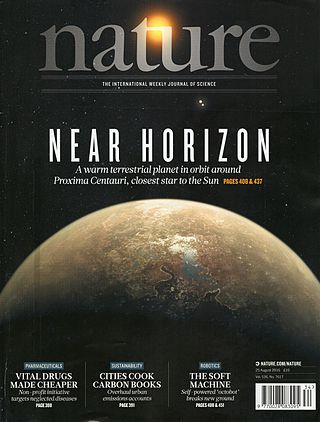
Nature is a British weekly scientific journal founded and based in London, England. As a multidisciplinary publication, Nature features peer-reviewed research from a variety of academic disciplines, mainly in science and technology. It has core editorial offices across the United States, continental Europe, and Asia under the international scientific publishing company Springer Nature. Nature was one of the world's most cited scientific journals by the Science Edition of the 2019 Journal Citation Reports, making it one of the world's most-read and most prestigious academic journals. As of 2012, it claimed an online readership of about three million unique readers per month.
Abdullah Öcalan, one of the founding members of the militant organization the Kurdistan Workers' Party, was arrested by Turkish security forces in Nairobi, Kenya.

Abdullah Öcalan, also known as Apo, is a political prisoner and founding member of the militant Kurdistan Workers' Party (PKK).
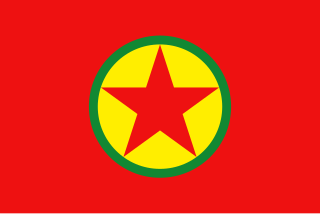
The Kurdistan Workers' Party or PKK is a Kurdish militant political organization and armed guerrilla movement, which historically operated throughout Kurdistan, but is now primarily based in the mountainous Kurdish-majority regions of southeastern Turkey and northern Iraq. Since 1984, the PKK has utilized asymmetric warfare in the Kurdish–Turkish conflict. Although the PKK once sought an independent Kurdish state, in the 1990s its aims shifted toward autonomy and increased rights for Kurds within Turkey.
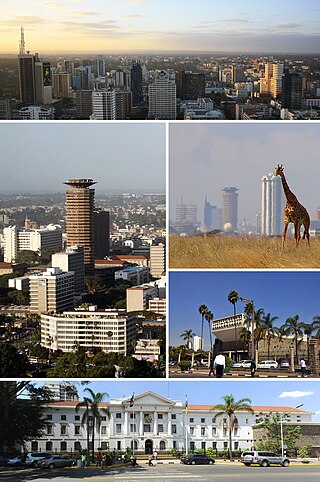
Nairobi is the capital and largest city of Kenya. The name is derived from the Maasai phrase Enkare Nairobi, which translates to "place of cool waters", a reference to the Nairobi River which flows through the city. The city proper had a population of 4,397,073 in the 2019 census, while the metropolitan area has a projected population in 2022 of 10.8 million. The city is commonly referred to as the Green City in the Sun.
A Long March 3B rocket carrying the communications satellite Intelsat 708 crashed immediately after launch from the Xichang Satellite Launch Center, China, destroying a nearby town and killing an unknown number of inhabitants.
The Long March 3B, also known as the CZ-3B and LM-3B, is a Chinese orbital launch vehicle. Introduced in 1996, it is launched from Launch Area 2 and 3 at the Xichang Satellite Launch Center in Sichuan. A three-stage rocket with four strap-on liquid rocket boosters, it is currently the second most powerful member of the Long March rocket family after the Long March 5 and the heaviest of the Long March 3 rocket family, and is mainly used to place communications satellites into geosynchronous orbits.

Intelsat 708 was a telecommunications satellite built by the American company Space Systems/Loral for Intelsat. It was destroyed on February 15, 1996 when the Long March 3B launch vehicle failed while being launched from the Xichang Satellite Launch Center in China. The launch vehicle veered off course immediately after liftoff and struck a nearby village, officially killing at least six people.

The Xichang Satellite Launch Center (XSLC), also known as the Xichang Space Center, is a spaceport of China. It is located in Zeyuan Town (泽远镇), approximately 64 kilometers (40 mi) northwest of Xichang, Liangshan Yi Autonomous Prefecture in Sichuan.
At the Xichang Satellite Launch Center in China, a Long March 3B rocket, carrying an Intelsat 708, veers off course and crashes into a rural village after liftoff, killing somewhere between 6 and 100 people.

The Xichang Satellite Launch Center (XSLC), also known as the Xichang Space Center, is a spaceport of China. It is located in Zeyuan Town (泽远镇), approximately 64 kilometers (40 mi) northwest of Xichang, Liangshan Yi Autonomous Prefecture in Sichuan.
The Long March 3B, also known as the CZ-3B and LM-3B, is a Chinese orbital launch vehicle. Introduced in 1996, it is launched from Launch Area 2 and 3 at the Xichang Satellite Launch Center in Sichuan. A three-stage rocket with four strap-on liquid rocket boosters, it is currently the second most powerful member of the Long March rocket family after the Long March 5 and the heaviest of the Long March 3 rocket family, and is mainly used to place communications satellites into geosynchronous orbits.

Intelsat 708 was a telecommunications satellite built by the American company Space Systems/Loral for Intelsat. It was destroyed on February 15, 1996 when the Long March 3B launch vehicle failed while being launched from the Xichang Satellite Launch Center in China. The launch vehicle veered off course immediately after liftoff and struck a nearby village, officially killing at least six people.
The Embassy of the United States, Athens, is attacked by an antitank rocket, launched by the Revolutionary Organization 17 November.
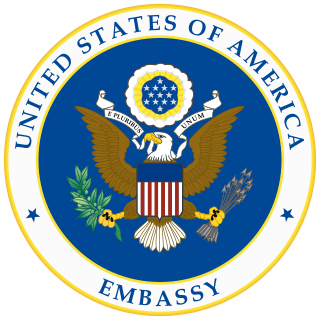
The Embassy of the United States in Athens is the embassy of the United States in Greece, in the capital city of Athens. The embassy is charged with diplomacy and Greece–United States relations. The United States Ambassador to Greece is the head of mission of the United States to Greece.

Revolutionary Organization 17 November, also known as 17N or the 17 November Group, was a Greek far-left Marxist–Leninist urban guerrilla organization. formed in 1975 and led by Alexandros Giotopoulos. 17N conducted an extensive urban guerrilla campaign against the Greek state, banks, and businesses. The organization committed 103 known armed robberies, assassinations, and bombing attacks, during which 23 people were killed.
Kevin Mitnick, the most wanted computer hacker at the time in the U.S., was arrested and charged with computer fraud and wire fraud.

Kevin David Mitnick is an American computer security consultant, author, and convicted hacker. He is best known for his high-profile 1995 arrest and five years in prison for various computer and communications-related crimes.
A security hacker is someone who explores methods for breaching defenses and exploiting weaknesses in a computer system or network. Hackers may be motivated by a multitude of reasons, such as profit, protest, information gathering, challenge, recreation, or evaluation of a system weaknesses to assist in formulating defenses against potential hackers. The subculture that has evolved around hackers is often referred to as the "computer underground".
Computer fraud is a cybercrime and the act of using a computer to take or alter electronic data, or to gain unlawful use of a computer or system. In the United States, computer fraud is specifically proscribed by the Computer Fraud and Abuse Act, which criminalizes computer-related acts under federal jurisdiction.
Mail fraud and wire fraud are terms used to describe the use of a physical or electronic mail system to defraud another. It is a federal crime in the United States. Jurisdiction is claimed by the federal government if the illegal activity crosses interstate or international borders.
Serial killer Jeffrey Dahmer is sentenced in Milwaukee to 15 terms of life in prison.

Jeffrey Lionel Dahmer, also known as the Milwaukee Cannibal or the Milwaukee Monster, was an American serial killer and sex offender who committed the murder and dismemberment of seventeen men and boys between 1978 and 1991. Many of his later murders involved necrophilia, cannibalism, and the permanent preservation of body parts—typically all or part of the skeleton.
Air Transport International Flight 805 crashes in Swanton, Ohio, near Toledo Express Airport, killing all four people on board.

Air Transport International Flight 805 was a regularly scheduled domestic cargo flight from Seattle to Toledo operated by Burlington Air Express. On February 15, 1992 the Douglas DC-8 operating the flight crashed during a second go-around attempt at Toledo Express Airport, killing all four people on board. The National Transportation Safety Board (NTSB) determined that the accident was caused by pilot error due to the aircraft's control not being maintained.

Swanton is a village located in Fulton and Lucas counties in the U.S. state of Ohio. The population was 3,897 at the 2020 census.

Toledo Express Airport, officially Eugene F. Kranz Toledo Express Airport, is a civil-military airport in Swanton and Monclova townships 10 mi (16 km) west of Toledo in western Lucas County, Ohio, United States. It opened in 1954-55 as a replacement to then Toledo Municipal Airport southeast of Toledo. TOL is near the crossing of State Route 2 and the Ohio Turnpike.
The Visegrád Group, establishing cooperation to move toward free-market systems, is signed by the leaders of Czechoslovakia, Hungary and Poland.
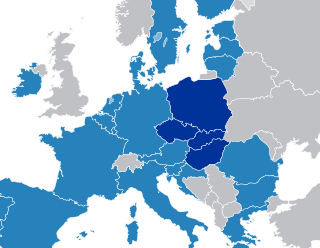
The Visegrád Group is a cultural and political alliance of four Central European countries: the Czech Republic, Hungary, Poland, and Slovakia. The alliance aims to advance co-operation in military, economic, cultural and energy affairs, and to further their integration with the EU. All four states are also members of the European Union (EU) and the North Atlantic Treaty Organization (NATO).

A market economy is an economic system in which the decisions regarding investment, production and distribution to the consumers are guided by the price signals created by the forces of supply and demand, where all suppliers and consumers are unimpeded by price controls or restrictions on contract freedom. The major characteristic of a market economy is the existence of factor markets that play a dominant role in the allocation of capital and the factors of production.

Czechoslovakia was a sovereign state in Central Europe, created in 1918, when it declared its independence from Austria-Hungary. In 1938, after the Munich Agreement, the Sudetenland became part of Germany, while the country lost further territories to Hungary and Poland. Between 1939 and 1945 the state ceased to exist, as Slovakia proclaimed its independence and the remaining territories in the east became part of Hungary, while in the remainder of the Czech Lands the German Protectorate of Bohemia and Moravia was proclaimed. In 1939, after the outbreak of World War II, former Czechoslovak President Edvard Beneš formed a government-in-exile and sought recognition from the Allies.
The Soviet Union officially announced that all of its troops had withdrawn from Afghanistan after a nine-year conflict.

The Soviet–Afghan War (1979–1989) was a nine-year guerrilla war fought by insurgent groups known collectively as the Mujahideen, as well as smaller Maoist groups, against the military occupation of Afghanistan by the Soviet Union and their satellite state, the Democratic Republic of Afghanistan (DRA). The conflict lasted throughout the 1980s and fighting took place mostly in the Afghan countryside.
Soviet–Afghan War: The Soviet Union officially announces that all of its troops have left Afghanistan.

The Soviet–Afghan War (1979–1989) was a nine-year guerrilla war fought by insurgent groups known collectively as the Mujahideen, as well as smaller Maoist groups, against the military occupation of Afghanistan by the Soviet Union and their satellite state, the Democratic Republic of Afghanistan (DRA). The conflict lasted throughout the 1980s and fighting took place mostly in the Afghan countryside.

The Soviet Union, officially the Union of Soviet Socialist Republics (USSR), was a transcontinental country that spanned much of Eurasia from 1922 to 1991. A flagship communist state, it was nominally a federal union of fifteen national republics; in practice, both its government and its economy were highly centralized until its final years. It was a one-party state governed by the Communist Party of the Soviet Union, with the city of Moscow serving as its capital as well as that of its largest and most populous republic: the Russian SFSR. Other major cities included Leningrad, Kiev, Minsk, Tashkent, Alma-Ata, and Novosibirsk. It was the largest country in the world, covering over 22,402,200 square kilometres (8,649,500 sq mi) and spanning eleven time zones.
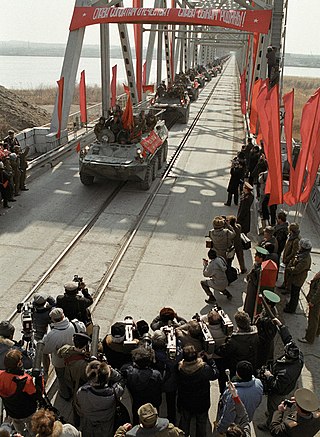
The final and complete withdrawal of Soviet combatant forces from Afghanistan began on 15 May 1988 and ended on 15 February 1989 under the leadership of Colonel-General Boris Gromov.

Afghanistan, officially the Islamic Emirate of Afghanistan, is a landlocked country located at the crossroads of Central Asia and South Asia. Referred to as the Heart of Asia, it is bordered by Pakistan to the east and south, Iran to the west, Turkmenistan to the northwest, Uzbekistan to the north, Tajikistan to the northeast, and China to the northeast and east. Occupying 652,864 square kilometers (252,072 sq mi) of land, the country is predominantly mountainous with plains in the north and the southwest, which are separated by the Hindu Kush mountain range. As of 2021, its population is 40.2 million, composed mostly of ethnic Pashtuns, Tajiks, Hazaras, and Uzbeks. Kabul is the country's largest city and serves as its capital.
The drilling rig Ocean Ranger sinks during a storm off the coast of Newfoundland, killing 84 workers.

A drilling rig is an integrated system that drills wells, such as oil or water wells, or holes for piling and other construction purposes, into the earth's subsurface. Drilling rigs can be massive structures housing equipment used to drill water wells, oil wells, or natural gas extraction wells, or they can be small enough to be moved manually by one person and such are called augers. Drilling rigs can sample subsurface mineral deposits, test rock, soil and groundwater physical properties, and also can be used to install sub-surface fabrications, such as underground utilities, instrumentation, tunnels or wells. Drilling rigs can be mobile equipment mounted on trucks, tracks or trailers, or more permanent land or marine-based structures. The term "rig" therefore generally refers to the complex equipment that is used to penetrate the surface of the Earth's crust.

Ocean Ranger was a semi-submersible mobile offshore drilling unit that sank in Canadian waters on 15 February 1982. It was drilling an exploration well on the Grand Banks of Newfoundland, 267 kilometres (166 mi) east of St. John's, Newfoundland, for Mobil Oil of Canada, Ltd. (MOCAN) with 84 crew members on board when it sank. There were no survivors.

Newfoundland is a large island off the east coast of the North American mainland and the most populous part of the Canadian province of Newfoundland and Labrador. It has 29 percent of the province's land area. The island is separated from the Labrador Peninsula by the Strait of Belle Isle and from Cape Breton Island by the Cabot Strait. It blocks the mouth of the Saint Lawrence River, creating the Gulf of Saint Lawrence, the world's largest estuary. Newfoundland's nearest neighbour is the French overseas collectivity of Saint Pierre and Miquelon.
Don Dunstan resigned as Premier of South Australia, ending a decade of sweeping social liberalisation.

Donald Allan Dunstan was an Australian politician. He entered politics as the Member for Norwood in 1953 at age 26, became leader of the South Australian Branch of the Australian Labor Party in 1967, and was Premier of South Australia between June 1967 and April 1968, and again between June 1970 and February 1979.

The premier of South Australia is the head of government in the state of South Australia, Australia. The Government of South Australia follows the Westminster system, with a Parliament of South Australia acting as the legislature. The premier is appointed by the governor of South Australia, and by modern convention holds office by virtue of his or her ability to command the support of a majority of members of the lower house of Parliament, the House of Assembly.
Progressivism is a way of thinking that it is possible through political action for human societies to improve over time. As a political movement, progressivism purports to advance the human condition through social reform based on advancements in science, technology, economic development, and social organization. Adherents to this way of thinking hold that progressivism has universal application and endeavor to spread this idea to human societies everywhere. Progressivism arose during the Age of Enlightenment out of the belief that civility in Europe was improving due to the application of new empirical knowledge to the governance of society.
The current Constitution of Cuba, providing for a system of government and law based on those of the Soviet Union and Eastern Bloc countries, was adopted by a national referendum.

Even before attaining its independence from Spain, Cuba had several constitutions either proposed or adopted by insurgents as governing documents for territory they controlled during their war against Spain. Cuba has had several constitutions since winning its independence. The first constitution since the Cuban Revolution was drafted in 1976 and has since been amended. In 2018, Cuba became engaged in a major revision of its constitution, which was widely discussed by the people and by academics. The current constitution was then enacted in 2019.

The Soviet Union, officially the Union of Soviet Socialist Republics (USSR), was a transcontinental country that spanned much of Eurasia from 1922 to 1991. A flagship communist state, it was nominally a federal union of fifteen national republics; in practice, both its government and its economy were highly centralized until its final years. It was a one-party state governed by the Communist Party of the Soviet Union, with the city of Moscow serving as its capital as well as that of its largest and most populous republic: the Russian SFSR. Other major cities included Leningrad, Kiev, Minsk, Tashkent, Alma-Ata, and Novosibirsk. It was the largest country in the world, covering over 22,402,200 square kilometres (8,649,500 sq mi) and spanning eleven time zones.

The Eastern Bloc, also known as the Communist Bloc and the Soviet Bloc, was the group of socialist states of Central and Eastern Europe, East Asia, Southeast Asia, Africa, and Latin America under the influence of the Soviet Union that existed during the Cold War (1947–1991). These states followed the ideology of Marxism–Leninism, in opposition to the capitalist Western Bloc. The Eastern Bloc was often called the Second World, whereas the term "First World" referred to the Western Bloc and "Third World" referred to the non-aligned countries that were mainly in Africa, Asia, and Latin America but notably also included former pre-1948 Soviet ally SFR Yugoslavia, which was located in Europe.
Sound recordings are granted U.S. federal copyright protection for the first time.

Sound recording and reproduction is the electrical, mechanical, electronic, or digital inscription and re-creation of sound waves, such as spoken voice, singing, instrumental music, or sound effects. The two main classes of sound recording technology are analog recording and digital recording.
A copyright is a type of intellectual property that gives its owner the exclusive right to copy, distribute, adapt, display, and perform a creative work, usually for a limited time. The creative work may be in a literary, artistic, educational, or musical form. Copyright is intended to protect the original expression of an idea in the form of a creative work, but not the idea itself. A copyright is subject to limitations based on public interest considerations, such as the fair use doctrine in the United States.

The Convention for the Protection of Producers of Phonograms Against Unauthorized Duplication of Their Phonograms, also known as the Geneva Phonograms Convention, is a 1971 international agreement relating to copyright protection for sound recordings.
The copyright law of the United States grants monopoly protection for "original works of authorship". With the stated purpose to promote art and culture, copyright law assigns a set of exclusive rights to authors: to make and sell copies of their works, to create derivative works, and to perform or display their works publicly. These exclusive rights are subject to a time limit, and generally expire 70 years after the author's death or 95 years after publication. In the United States, works published before January 1, 1927, are in the public domain.
José María Velasco Ibarra, serving as President of Ecuador for the fifth time, is overthrown by the military for the fourth time.

José María Velasco Ibarra was an Ecuadorian politician. He became president of Ecuador five times, in 1934–1935, 1944–1947, 1952–1956, 1960–1961, and 1968–1972, and only in 1952–1956 he completed a full term. In his four other terms, he was removed by military force, and several times he was installed as president through a military coup.

The president of Ecuador, officially called the Constitutional President of the Republic of Ecuador, serves as both the head of state and head of government of Ecuador. It is the highest political office in the country as the head of the executive branch of government. Per the current constitution, the President can serve two four-year terms. Prior to that, the president could only serve one four-year term.
The decimalisation of the currencies of the United Kingdom and Ireland is completed on Decimal Day.
Decimalisation or decimalization is the conversion of a system of currency or of weights and measures to units related by powers of 10.

Sterling is the currency of the United Kingdom and nine of its associated territories. The pound is the main unit of sterling, and the word "pound" is also used to refer to the British currency generally, often qualified in international contexts as the British pound or the pound sterling.
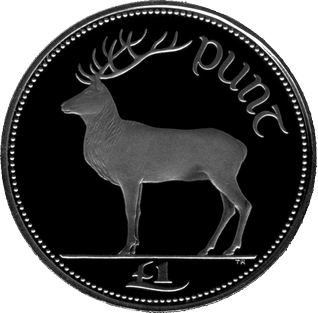
The pound was the currency of the Republic of Ireland until 2002. Its ISO 4217 code was IEP, and the symbol was £. The Irish pound was replaced by the euro on 1 January 1999. Euro currency did not begin circulation until the beginning of 2002.

Decimal Day in the United Kingdom and in Ireland was Monday 15 February 1971, the day on which each country decimalised its respective £sd currency of pounds, shillings, and pence.
Canada adopted the Maple Leaf flag, replacing the Canadian Red Ensign.

The national flag of Canada, often simply referred to as the Canadian flag or, unofficially, as the Maple Leaf or l'Unifolié, consists of a red field with a white square at its centre in the ratio of 1∶2∶1, in which is featured a stylized, red, 11-pointed maple leaf charged in the centre. It is the first flag to have been adopted by both houses of Parliament and officially proclaimed by the Canadian monarch as the country's official national flag. The flag has become the predominant and most recognizable national symbol of Canada.
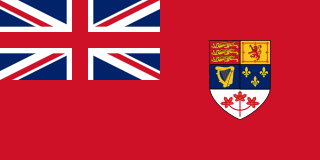
The Canadian Red Ensign served as a nautical flag and civil ensign for Canada from 1892 to 1965, and later as the de facto flag of Canada before 1965. The flag is a British red ensign, with the Royal Union Flag in the canton, adorned with the shield of the coat of arms of Canada.
A new red-and-white maple leaf design is adopted as the flag of Canada, replacing the old Canadian Red Ensign banner.

Acer is a genus of trees and shrubs commonly known as maples. The genus is placed in the family Sapindaceae. There are approximately 132 species, most of which are native to Asia, with a number also appearing in Europe, northern Africa, and North America. Only one species, Acer laurinum, extends to the Southern Hemisphere. The type species of the genus is the sycamore maple, Acer pseudoplatanus, the most common maple species in Europe. Maples usually have easily recognizable palmate leaves and distinctive winged fruits. The closest relatives of the maples are the horse chestnuts. Maple syrup is made from the sap of some maple species. It is one of the most common genera of trees in Asia.

The national flag of Canada, often simply referred to as the Canadian flag or, unofficially, as the Maple Leaf or l'Unifolié, consists of a red field with a white square at its centre in the ratio of 1∶2∶1, in which is featured a stylized, red, 11-pointed maple leaf charged in the centre. It is the first flag to have been adopted by both houses of Parliament and officially proclaimed by the Canadian monarch as the country's official national flag. The flag has become the predominant and most recognizable national symbol of Canada.

The Canadian Red Ensign served as a nautical flag and civil ensign for Canada from 1892 to 1965, and later as the de facto flag of Canada before 1965. The flag is a British red ensign, with the Royal Union Flag in the canton, adorned with the shield of the coat of arms of Canada.
All 72 people on board Sabena Flight 548, including the entire U.S. figure-skating team, and one person on the ground were killed when the aircraft crashed on approach to Brussels Airport.

Sabena Flight 548 was a Boeing 707-329 flight operated by Sabena that crashed en route from New York City to Brussels, Belgium, on February 15, 1961. The flight, which had originated at Idlewild International Airport, crashed on approach to Brussels Airport, Brussels, killing all 72 people on board and one person on the ground. The fatalities included the entire United States figure skating team, who were travelling to the World Figure Skating Championships in Prague, Czechoslovakia. The precise cause of the crash remains unknown; the most likely explanation was thought to be a failure of the mechanism that adjusted the tail stabilizer.
U.S. Figure Skating is the national governing body for the sport of figure skating in the United States. It is recognized as such by the United States Olympic & Paralympic Committee "USOPC" under the Ted Stevens Olympic and Amateur Sports Act and is the United States member of the International Skating Union ("ISU"). Although the name of the organization is “the United States Figure Skating Association” it is now known as and conducts business under the name “U.S. Figure Skating.” Founded in 1921, U.S. Figure Skating regulates and governs the sport and defines and maintains the standard of skating proficiency. It specifies the rules for testing, competitions, and all other figure skating related activities. U.S. Figure Skating promotes interest and participation in the sport by assisting member clubs, skaters, and athletes, appointing officials, organizing competitions, exhibitions, and other figure skating pursuits, and offering a wide variety of programs.

Brussels Airport is an international airport 6.5 NM northeast of Brussels, the capital of Belgium. In 2019, more than 26 million passengers arrived or departed at Brussels Airport, making it the 24th busiest airport in Europe. It is located in the municipality of Zaventem in the Province of Flemish Brabant in the Flemish Region of Belgium. It is home to around 260 companies, together directly employing 20,000 people and serves as the home base for Brussels Airlines and TUI fly Belgium.
Sabena Flight 548 crashes in Belgium, killing 73, including the entire United States figure skating team along with several of their coaches and family members.

Sabena Flight 548 was a Boeing 707-329 flight operated by Sabena that crashed en route from New York City to Brussels, Belgium, on February 15, 1961. The flight, which had originated at Idlewild International Airport, crashed on approach to Brussels Airport, Brussels, killing all 72 people on board and one person on the ground. The fatalities included the entire United States figure skating team, who were travelling to the World Figure Skating Championships in Prague, Czechoslovakia. The precise cause of the crash remains unknown; the most likely explanation was thought to be a failure of the mechanism that adjusted the tail stabilizer.

Figure skating is a sport in which individuals, pairs, or groups perform on figure skates on ice. It was the first winter sport to be included in the Olympic Games, when contested at the 1908 Olympics in London. The Olympic disciplines are men's singles, women's singles, pair skating, and ice dance; the four individual disciplines are also combined into a team event, first included in the Winter Olympics in 2014. The non-Olympic disciplines include synchronized skating, Theater on Ice, and four skating. From intermediate through senior-level competition, skaters generally perform two programs, which, depending on the discipline, may include spins, jumps, moves in the field, lifts, throw jumps, death spirals, and other elements or moves.
Canada and the United States agree to construct the Distant Early Warning Line, a system of radar stations in the far northern Arctic regions of Canada and Alaska.

The Distant Early Warning Line, also known as the DEW Line or Early Warning Line, was a system of radar stations in the northern Arctic region of Canada, with additional stations along the north coast and Aleutian Islands of Alaska, in addition to the Faroe Islands, Greenland, and Iceland. It was set up to detect incoming bombers of the Soviet Union during the Cold War, and provide early warning of any sea-and-land invasion.

Radar is a detection system that uses radio waves to determine the distance (ranging), angle, and radial velocity of objects relative to the site. It can be used to detect aircraft, ships, spacecraft, guided missiles, motor vehicles, weather formations, and terrain. A radar system consists of a transmitter producing electromagnetic waves in the radio or microwaves domain, a transmitting antenna, a receiving antenna and a receiver and processor to determine properties of the objects. Radio waves from the transmitter reflect off the objects and return to the receiver, giving information about the objects' locations and speeds.
King George VI of the United Kingdom is buried in St George's Chapel, Windsor Castle.

George VI was King of the United Kingdom and the Dominions of the British Commonwealth from 11 December 1936 until his death in 1952. He was concurrently the last Emperor of India until August 1947, when the British Raj was dissolved.

St George's Chapel at Windsor Castle in England is a castle chapel built in the late-medieval Perpendicular Gothic style. It is both a Royal Peculiar and the Chapel of the Order of the Garter. St George's Chapel was founded in the 14th century by King Edward III and extensively enlarged in the late 15th century. It is located in the Lower Ward of the castle. The castle has belonged to the monarchy for almost 1,000 years and was a principal residence of Elizabeth II before her death. The chapel has been the scene of many royal services, weddings and burials – in the 19th century, St George's Chapel and the nearby Frogmore Gardens superseded Westminster Abbey as the chosen burial place for the British royal family. The running of the chapel is the responsibility of the dean and Canons of Windsor who make up the College of Saint George. They are assisted by a clerk, verger and other staff. The Society of the Friends of St George's and Descendants of the Knights of the Garter, a registered charity, was established in 1931 to assist the college in maintaining the chapel.
Gerald Lankester Harding and Roland de Vaux began excavations at Cave 1 of the Qumran Caves in the West Bank, the location of the first seven Dead Sea Scrolls.

Gerald Lankester Harding was a British archaeologist who was the director of the Department of Antiquities of Jordan from 1936 to 1956. His tenure spanned the period in which the Dead Sea Scrolls were discovered and brought to public awareness. Without his efforts many of the scrolls might have disappeared into private collections never to be seen again.

Roland Guérin de Vaux was a French Dominican priest who led the Catholic team that initially worked on the Dead Sea Scrolls. He was the director of the Ecole Biblique, a French Catholic Theological School in East Jerusalem, and he was charged with overseeing research on the scrolls. His team excavated the ancient site of Khirbet Qumran (1951–1956) as well as several caves near Qumran northwest of the Dead Sea. The excavations were led by Ibrahim El-Assouli, caretaker of the Palestine Archaeological Museum, or what came to be known as the Rockefeller Museum in Jerusalem.

Qumran Caves are a series of caves, both natural and artificial, found around the archaeological site of Qumran in the Judaean Desert. It is in these caves that the Dead Sea Scrolls were discovered.

The West Bank is a landlocked territory near the coast of the Mediterranean in Western Asia that forms the main bulk of the Palestinian territories. It is bordered by Jordan and the Dead Sea to the east and by Israel to the south, west, and north. Under an Israeli military occupation since 1967, its area is split into 165 Palestinian "islands" that are under total or partial civil administration by the Palestinian National Authority (PNA), and 230 Israeli settlements into which Israeli law is "pipelined". The West Bank includes East Jerusalem.

The Dead Sea Scrolls are ancient Jewish and Hebrew religious manuscripts discovered in 1946/7 at the Qumran Caves in what was then Mandatory Palestine, near Ein Feshkha in the West Bank, on the northern shore of the Dead Sea. Dating from the 3rd century BCE to the 1st century CE, the Dead Sea Scrolls are considered to be a keystone in the history of archaeology with great historical, religious, and linguistic significance because they include the oldest surviving manuscripts of entire books later included in the biblical canons, along with deuterocanonical and extra-biblical manuscripts which preserve evidence of the diversity of religious thought in late Second Temple Judaism. At the same time they cast new light on the emergence of Christianity and of Rabbinic Judaism. Most of the scrolls are held by Israel in the Shrine of the Book at the Israel Museum, but their ownership is disputed by Jordan due to the Qumran Caves' history: following the End of the British Mandate for Palestine in 1947, Jordan occupied the area in the 1948 Arab-Israeli War, and Israel captured both it and several Scrolls claimed by Jordan in the 1967 Six Day War. As a result, some of the scrolls are still in Jordan and are now displayed at The Jordan Museum in Amman. Ownership of the scrolls is also contested by the State of Palestine.
Gerald Lankester Harding and Roland de Vaux begin excavations at Cave 1 of the Qumran Caves, where they will eventually discover the first seven Dead Sea Scrolls.

Gerald Lankester Harding was a British archaeologist who was the director of the Department of Antiquities of Jordan from 1936 to 1956. His tenure spanned the period in which the Dead Sea Scrolls were discovered and brought to public awareness. Without his efforts many of the scrolls might have disappeared into private collections never to be seen again.

Roland Guérin de Vaux was a French Dominican priest who led the Catholic team that initially worked on the Dead Sea Scrolls. He was the director of the Ecole Biblique, a French Catholic Theological School in East Jerusalem, and he was charged with overseeing research on the scrolls. His team excavated the ancient site of Khirbet Qumran (1951–1956) as well as several caves near Qumran northwest of the Dead Sea. The excavations were led by Ibrahim El-Assouli, caretaker of the Palestine Archaeological Museum, or what came to be known as the Rockefeller Museum in Jerusalem.

Qumran Caves are a series of caves, both natural and artificial, found around the archaeological site of Qumran in the Judaean Desert. It is in these caves that the Dead Sea Scrolls were discovered.

The Dead Sea Scrolls are ancient Jewish and Hebrew religious manuscripts discovered in 1946/7 at the Qumran Caves in what was then Mandatory Palestine, near Ein Feshkha in the West Bank, on the northern shore of the Dead Sea. Dating from the 3rd century BCE to the 1st century CE, the Dead Sea Scrolls are considered to be a keystone in the history of archaeology with great historical, religious, and linguistic significance because they include the oldest surviving manuscripts of entire books later included in the biblical canons, along with deuterocanonical and extra-biblical manuscripts which preserve evidence of the diversity of religious thought in late Second Temple Judaism. At the same time they cast new light on the emergence of Christianity and of Rabbinic Judaism. Most of the scrolls are held by Israel in the Shrine of the Book at the Israel Museum, but their ownership is disputed by Jordan due to the Qumran Caves' history: following the End of the British Mandate for Palestine in 1947, Jordan occupied the area in the 1948 Arab-Israeli War, and Israel captured both it and several Scrolls claimed by Jordan in the 1967 Six Day War. As a result, some of the scrolls are still in Jordan and are now displayed at The Jordan Museum in Amman. Ownership of the scrolls is also contested by the State of Palestine.
ENIAC, the first electronic general-purpose computer, is formally dedicated at the University of Pennsylvania in Philadelphia.

ENIAC was the first programmable, electronic, general-purpose digital computer, completed in 1945. There were other computers that had these features, but the ENIAC had all of them in one package. It was Turing-complete and able to solve "a large class of numerical problems" through reprogramming.

The University of Pennsylvania is a private Ivy League research university in Philadelphia. It is the fourth-oldest institution of higher education in the United States and is ranked among the highest-regarded universities by numerous organizations and scholars. While the university dates its founding to 1740, it was created by Benjamin Franklin and leading Philadelphia citizens in 1749.
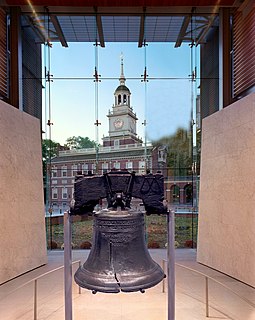
Philadelphia, often called Philly, is the largest city in the Commonwealth of Pennsylvania, the sixth-largest city in the U.S., the second-largest city in both the Northeast megalopolis and Mid-Atlantic regions after New York City. Since 1854, the city has been coextensive with Philadelphia County, the most populous county in Pennsylvania and the urban core of the Delaware Valley, the nation's seventh-largest and one of world's largest metropolitan regions, with 6.245 million residents as of 2020. The city's population as of the 2020 census was 1,603,797, and over 56 million people live within 250 mi (400 km) of Philadelphia.
World War II: Third day of bombing in Dresden.

The bombing of Dresden was a joint British and American aerial bombing attack on the city of Dresden, the capital of the German state of Saxony, during World War II. In four raids between 13 and 15 February 1945, 772 heavy bombers of the Royal Air Force (RAF) and 527 of the United States Army Air Forces (USAAF) dropped more than 3,900 tons of high-explosive bombs and incendiary devices on the city. The bombing and the resulting firestorm destroyed more than 1,600 acres (6.5 km2) of the city centre. An estimated 22,700 to 25,000 people were killed. Three more USAAF air raids followed, two occurring on 2 March aimed at the city's railway marshalling yard and one smaller raid on 17 April aimed at industrial areas.
World War II: The assault on Monte Cassino, Italy begins.

The Battle of Monte Cassino, also known as the Battle for Rome and the Battle for Cassino, was a series of four assaults made by the Allies against German forces in Italy during the Italian Campaign during World War II. The ultimate objective was to break through the Winter Line, and facilitate an advance towards Rome.

Monte Cassino is a rocky hill about 130 kilometres (80 mi) southeast of Rome, in the Latin Valley, Italy, 2 kilometres west of Cassino and at an elevation of 520 m (1,710 ft). Site of the Roman town of Casinum, it is widely known for its abbey, the first house of the Benedictine Order, having been established by Benedict of Nursia himself around 529. It was for the community of Monte Cassino that the Rule of Saint Benedict was composed.

Italy, officially the Italian Republic, is a country located in the middle of the Mediterranean Sea, in Southern Europe; its territory largely coincides with the homonymous geographical region. Italy is also considered part of Western Europe. A unitary parliamentary republic with Rome as its capital and largest city, the country covers a total area of 301,230 km2 (116,310 sq mi) and shares land borders with France, Switzerland, Austria, Slovenia and the enclaved microstates of Vatican City and San Marino. Italy has a territorial exclave in Switzerland, Campione. With over 60 million inhabitants, Italy is the third-most populous member state of the European Union.
World War II: The Narva Offensive begins.

This is a sub-article to Battle of Narva (1944).
Second World War: Japanese forces led by General Tomoyuki Yamashita captured Singapore, with the largest surrender of British-led military personnel in history (pictured).

World War II or the Second World War, often abbreviated as WWII or WW2, was a world war that lasted from 1939 to 1945. It involved the vast majority of the world's countries—including all of the great powers—forming two opposing military alliances: the Allies and the Axis powers. World War II was a total war that directly involved more than 100 million personnel from more than 30 countries.

Tomoyuki Yamashita was a Japanese officer and convicted war criminal, who was a general in the Imperial Japanese Army during World War II. Yamashita led Japanese forces during the invasion of Malaya and Battle of Singapore, with his accomplishment of conquering Malaya and Singapore in 70 days earning him the sobriquet "The Tiger of Malaya" and led to the British Prime Minister Winston Churchill calling the ignominious fall of Singapore to Japan the "worst disaster" and "largest capitulation" in British military history. Yamashita was assigned to defend the Philippines from the advancing Allied forces later in the war, and while unable to prevent the Allied advance, he was able to hold on to part of Luzon until after the formal Surrender of Japan in August 1945.

The Fall of Singapore, also known as the Battle of Singapore, took place in the South–East Asian theatre of the Pacific War. The Empire of Japan captured the British stronghold of Singapore, with fighting lasting from 8 to 15 February 1942. Singapore was the foremost British military base and economic port in South–East Asia and had been of great importance to British interwar defence strategy. The capture of Singapore resulted in the largest British surrender in its history.
World War II: Fall of Singapore. Following an assault by Japanese forces, the British General Arthur Percival surrenders. About 80,000 Indian, United Kingdom and Australian soldiers become prisoners of war, the largest surrender of British-led military personnel in history.

World War II or the Second World War, often abbreviated as WWII or WW2, was a world war that lasted from 1939 to 1945. It involved the vast majority of the world's countries—including all of the great powers—forming two opposing military alliances: the Allies and the Axis powers. World War II was a total war that directly involved more than 100 million personnel from more than 30 countries.

The Fall of Singapore, also known as the Battle of Singapore, took place in the South–East Asian theatre of the Pacific War. The Empire of Japan captured the British stronghold of Singapore, with fighting lasting from 8 to 15 February 1942. Singapore was the foremost British military base and economic port in South–East Asia and had been of great importance to British interwar defence strategy. The capture of Singapore resulted in the largest British surrender in its history.

The Empire of Japan, also known as the Japanese Empire or Imperial Japan, was a historical nation-state and great power that existed from the Meiji Restoration in 1868 until the enactment of the post-World War II 1947 constitution and subsequent formation of modern Japan. It encompassed the Japanese archipelago and several colonies, protectorates, mandates, and other territories.

Lieutenant-General Arthur Ernest Percival, was a senior British Army officer. He saw service in the First World War and built a successful military career during the interwar period but is most noted for his defeat in the Second World War, when he commanded British Empire forces during the Japanese Malayan Campaign and the subsequent Battle of Singapore.

The British Indian Army, commonly referred to as the Indian Army, was the main military of the British Raj before its dissolution in 1947. It was responsible for the defence of the British Indian Empire, including the princely states, which could also have their own armies. As quoted in the Imperial Gazetteer of India, "The British Government has undertaken to protect the dominions of the Native princes from invasion and even from rebellion within: its army is organized for the defence not merely of British India, but of all possessions under the suzerainty of the King-Emperor." The Indian Army was an important part of the British Empire's forces, both in India and abroad, particularly during the First World War and the Second World War.

A prisoner of war (POW) is a person who is held captive by a belligerent power during or immediately after an armed conflict. The earliest recorded usage of the phrase "prisoner of war" dates back to 1610.
In Miami, Giuseppe Zangara attempts to assassinate US President-elect Franklin D. Roosevelt, but instead shoots Chicago mayor Anton J. Cermak, who dies of his wounds on March 6.

Miami, officially the City of Miami, known as "the 305", "The Magic City", and "Gateway to the Americas", is a coastal metropolis and the county seat of Miami-Dade County in South Florida, United States. With a population of 442,241 as of the 2020 census, it is the second-most populous city in Florida and the eleventh-most populous city in the Southeastern United States. The Miami metropolitan area is the ninth largest in the U.S. with a population of 6.138 million people as of 2020. The city has the third-largest skyline in the U.S. with over 300 high-rises, 58 of which exceed 491 ft (150 m).
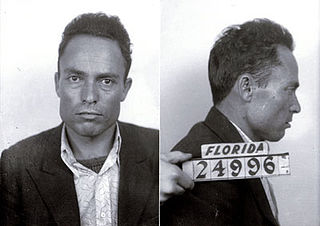
Giuseppe Zangara was an Italian immigrant and naturalized United States citizen who attempted to assassinate the President-elect of the United States, Franklin D. Roosevelt, on February 15, 1933, 17 days before Roosevelt's inauguration. During a night speech by Roosevelt in Miami, Florida, Zangara fired five shots with a handgun he had purchased a couple of days before. He missed his target and instead injured five bystanders and killed Anton Cermak, the Mayor of Chicago.
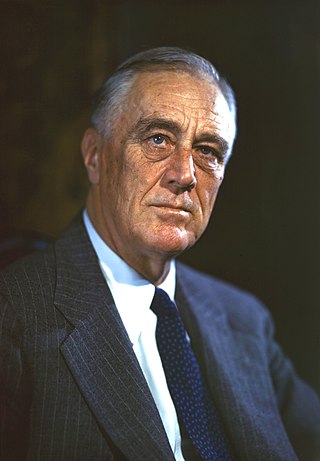
Franklin Delano Roosevelt, often referred to by his initials FDR, was an American politician and attorney who served as the 32nd president of the United States from 1933 until his death in 1945. As the leader of the Democratic Party, he won a record four presidential elections and became a central figure in world events during the first half of the 20th century. Roosevelt directed the federal government during most of the Great Depression, implementing his New Deal domestic agenda in response to the worst economic crisis in U.S. history. He built the New Deal Coalition, which defined modern liberalism in the United States throughout the middle third of the 20th century. His third and fourth terms were dominated by World War II, which ended in victory shortly after he died in office.

The mayor of Chicago is the chief executive of city government in Chicago, Illinois, the third-largest city in the United States. The mayor is responsible for the administration and management of various city departments, submits proposals and recommendations to the Chicago City Council, is active in the enforcement of the city's ordinances, submits the city's annual budget and appoints city officers, department commissioners or directors, and members of city boards and commissions.

Anton Joseph Cermak was an American politician who served as the 44th mayor of Chicago, Illinois from April 7, 1931 until his death on March 6, 1933. He was killed by an assassin, whose likely target was President Franklin D. Roosevelt, but the assassin shot Cermak instead after a bystander hit the assassin with a purse.
The 1925 serum run to Nome: The second delivery of serum arrives in Nome, Alaska.
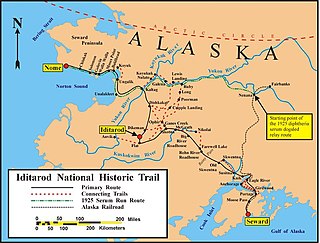
The 1925 serum run to Nome, also known as the Great Race of Mercy and The Serum Run, was a transport of diphtheria antitoxin by dog sled relay across the U.S. territory of Alaska by 20 mushers and about 150 sled dogs across 674 miles (1,085 km) in 5+1⁄2 days, saving the small town of Nome and the surrounding communities from a developing epidemic of diphtheria.

Nome is a city in the Nome Census Area in the Unorganized Borough of Alaska, United States. The city is located on the southern Seward Peninsula coast on Norton Sound of the Bering Sea. It had a population of 3,699 recorded in the 2020 census, up from 3,598 in 2010. Nome was incorporated on April 9, 1901, and was once the most-populous city in Alaska. Nome lies within the region of the Bering Straits Native Corporation, which is headquartered in Nome.
Greece becomes the last European country to adopt the Gregorian calendar.

Greece, officially the Hellenic Republic, is a country in Southeast Europe. It is situated on the southern tip of the Balkans, and is located at the crossroads of Europe, Asia, and Africa. Greece shares land borders with Albania to the northwest, North Macedonia and Bulgaria to the north, and Turkey to the northeast. The Aegean Sea lies to the east of the mainland, the Ionian Sea to the west, and the Sea of Crete and the Mediterranean Sea to the south. Greece has the longest coastline on the Mediterranean Basin, featuring thousands of islands. The country consists of nine traditional geographic regions, and has a population of approximately 10.4 million. Athens is the nation's capital and largest city, followed by Thessaloniki and Patras.
The Gregorian calendar is the calendar used in most parts of the world. It was introduced in October 1582 by Pope Gregory XIII as a modification of, and replacement for, the Julian calendar. The principal change was to space leap years differently so as to make the average calendar year 365.2425 days long, more closely approximating the 365.2422-day 'tropical' or 'solar' year that is determined by the Earth's revolution around the Sun.
Sepoys of Indian Muslim background mutinied against their British officers in Singapore.
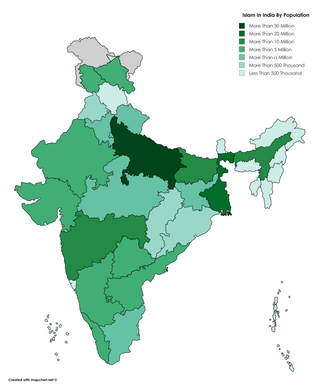
Islam is India's second-largest religion, with 14.2% of the country's population, approximately 172.2 million people identifying as adherents of Islam in 2011 Census. India is also the country with the second or third largest number of Muslims in the world. The majority of India's Muslims are Sunni, with Shia making up 13% of the Muslim population.

The 1915 Singapore Mutiny, also known as the 1915 Sepoy Mutiny or the Mutiny of the 5th Light Infantry, was a mutiny involving up to half of a regiment of 850 Indian Muslim sepoys against the British in Singapore during the First World War. The mutiny, on 15 February 1915, lasted nearly seven days. It resulted in the deaths of eight British officers and soldiers, two Malay officers and one soldier, 14 British civilians, five Chinese and Malay civilians and one German internee before it was finally quelled by British forces and Allied naval detachments.
The Flores Theater fire in Acapulco, Mexico kills 250.
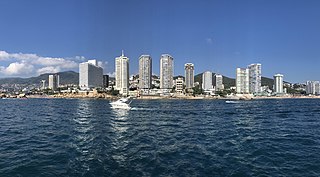
Acapulco de Juárez, commonly called Acapulco, is a city and major seaport in the state of Guerrero on the Pacific Coast of Mexico, 380 kilometres (240 mi) south of Mexico City. Acapulco is located on a deep, semicircular bay and has been a port since the early colonial period of Mexico's history. It is a port of call for shipping and cruise lines running between Panama and San Francisco, California, United States. The city of Acapulco is the largest in the state, far larger than the state capital Chilpancingo. Acapulco is also Mexico's largest beach and balneario resort city. Acapulco de Juárez is the municipal seat of the municipality of Acapulco.

Mexico, officially the United Mexican States, is a country in the southern portion of North America. It is bordered to the north by the United States; to the south and west by the Pacific Ocean; to the southeast by Guatemala, Belize, and the Caribbean Sea; and to the east by the Gulf of Mexico. Mexico covers 1,972,550 square kilometers (761,610 sq mi), making it the world's 13th-largest country by area; with approximately 126,014,024 inhabitants, it is the 10th-most-populous country and has the most Spanish-speakers. Mexico is organized as a federal republic comprising 31 states and Mexico City, its capital. Other major urban areas include Monterrey, Guadalajara, Puebla, Toluca, Tijuana, Ciudad Juárez, and León.
Japan and the United States signed a gentleman's agreement whereby the former would not permit further emigration to the U.S., while the latter would not limit Japanese immigration.
The Gentlemen's Agreement of 1907 was an informal agreement between the United States of America and the Empire of Japan whereby Japan would not allow further emigration to the United States and the United States would not impose restrictions on Japanese immigrants already present in the country. The goal was to reduce tensions between the two Pacific nations such as those that followed the Pacific Coast race riots of 1907 and the segregation of Japanese students in public schools. The agreement was not a treaty and so was not voted on by the United States Congress. It was superseded by the Immigration Act of 1924.
Second Boer War: British cavalry led by John French defeated Boer forces to end a 124-day siege of Kimberley in present-day South Africa.

The Second Boer War, also known as the Boer War, the Anglo–Boer War, or the South African War, was a conflict fought between the British Empire and the two Boer Republics over the Empire's influence in Southern Africa from 1899 to 1902. Following the discovery of gold deposits in the Boer republics, there was a large influx of "foreigners", mostly British from the Cape Colony. They were not permitted to have a vote, and were regarded as "unwelcome visitors", invaders, and they protested to the British authorities in the Cape. Negotiations failed and, in the opening stages of the war, the Boers launched successful attacks against British outposts before being pushed back by imperial reinforcements. Though the British swiftly occupied the Boer republics, numerous Boers refused to accept defeat and engaged in guerrilla warfare. Eventually, British scorched earth policies, and the poor conditions suffered in concentration camps by Boer women and children who had been displaced by these policies, brought the remaining Boer guerillas to the negotiating table, ending the war.

Field Marshal John Denton Pinkstone French, 1st Earl of Ypres,, known as Sir John French from 1901 to 1916, and as The Viscount French between 1916 and 1922, was a senior British Army officer. Born in Kent to an Anglo-Irish family, he saw brief service as a midshipman in the Royal Navy, before becoming a cavalry officer. He achieved rapid promotion and distinguished himself on the Gordon Relief Expedition. French had a considerable reputation as a womaniser throughout his life, and his career nearly ended when he was cited in the divorce of a brother officer while in India in the early 1890s.
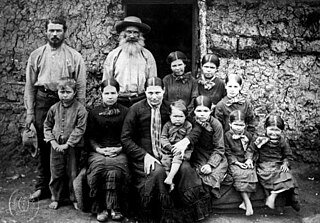
Boers are the descendants of the Dutch-speaking Free Burghers of the eastern Cape frontier in Southern Africa during the 17th, 18th, and 19th centuries. From 1652 to 1795, the Dutch East India Company controlled this area, but the United Kingdom incorporated it into the British Empire in 1806. The name of the group is derived from "boer", which means "farmer" in Dutch and Afrikaans.

The siege of Kimberley took place during the Second Boer War at Kimberley, Cape Colony, when Boer forces from the Orange Free State and the Transvaal besieged the diamond mining town. The Boers moved quickly to try to capture the area when war broke out between the British and the two Boer republics in October 1899. The town was ill-prepared, but the defenders organised an energetic and effective improvised defence that was able to prevent it from being taken.

Kimberley is the capital and largest city of the Northern Cape province of South Africa. It is located approximately 110 km east of the confluence of the Vaal and Orange Rivers. The city has considerable historical significance due to its diamond mining past and the siege during the Second Anglo-Boer war. British businessmen Cecil Rhodes and Barney Barnato made their fortunes in Kimberley, and Rhodes established the De Beers diamond company in the early days of the mining town.
Tsar Nicholas II of Russia issues a declaration known as the February Manifesto, which reduces the autonomy of the Grand Duchy of Finland, thus beginning the first period of oppression.

Nicholas II or Nikolai II Alexandrovich Romanov, known in the Russian Orthodox Church as Saint Nicholas the Passion-Bearer, was the last Emperor of Russia, King of Congress Poland and Grand Duke of Finland, ruling from 1 November 1894 until his abdication on 15 March 1917. During his reign, Nicholas gave support to the economic and political reforms promoted by his prime ministers, Sergei Witte and Pyotr Stolypin. He advocated modernization based on foreign loans and close ties with France, but resisted giving the new parliament major roles. Ultimately, progress was undermined by Nicholas's commitment to autocratic rule, strong aristocratic opposition and defeats sustained by the Russian military in the Russo-Japanese War and World War I. By March 1917, public support for Nicholas had collapsed and he was forced to abdicate the throne, thereby ending the Romanov dynasty's 304-year rule of Russia (1613–1917).
The February Manifesto, also known as His Imperial Majesty's Graceful Announcement was a legislative act given by Emperor of Russia Nicholas II on 15 February 1899, defining the legislation order of laws concerning the Grand Duchy of Finland. This included all laws which also concerned the interest of the Empire of Russia. The manifesto left the Diet of Finland only an advisory role in passing these laws. The February Manifesto was seen as the beginning of the first period of Russian oppression and generally the start of Russification of Finland.

The Grand Duchy of Finland was the predecessor state of modern Finland. It existed between 1809 and 1917 as an autonomous part of the Russian Empire.

The policy of Russification of Finland was a governmental policy of the Russian Empire aimed at limiting the special status of the Grand Duchy of Finland and possibly the termination of its political autonomy and cultural uniqueness in 1899–1905 and in 1908–1917. It was a part of a larger policy of Russification pursued by late 19th–early 20th century Russian governments which tried to abolish cultural and administrative autonomy of non-Russian minorities within the empire.
The United States Navy battleship USS Maine exploded and sank in Havana, Cuba, killing more than 260 people and precipitating the Spanish–American War.

The United States Navy (USN) is the maritime service branch of the United States Armed Forces and one of the eight uniformed services of the United States. It is the largest and most powerful navy in the world, with the estimated tonnage of its active battle fleet alone exceeding the next 13 navies combined, including 11 allies or partner nations of the United States as of 2015. It has the highest combined battle fleet tonnage and the world's largest aircraft carrier fleet, with eleven in service, two new carriers under construction, and five other carriers planned. With 336,978 personnel on active duty and 101,583 in the Ready Reserve, the United States Navy is the third largest of the United States military service branches in terms of personnel. It has 290 deployable combat vessels and more than 2,623 operational aircraft as of June 2019.

Maine was a United States Navy ship that sank in Havana Harbor on February 15, 1898, contributing to the outbreak of the Spanish–American War in April. U.S. newspapers, engaging in yellow journalism to boost circulation, claimed that the Spanish were responsible for the ship's destruction. The phrase, "Remember the Maine! To hell with Spain!" became a rallying cry for action. Although the Maine explosion was not a direct cause, it served as a catalyst that accelerated the events leading up to the war.

Havana is the capital and largest city of Cuba. The heart of the La Habana Province, Havana is the country's main port and commercial center. The city has a population of 2.3 million inhabitants, and it spans a total of 728.26 km2 (281.18 sq mi) – making it the largest city by area, the most populous city, and the fourth largest metropolitan area in the Caribbean region.
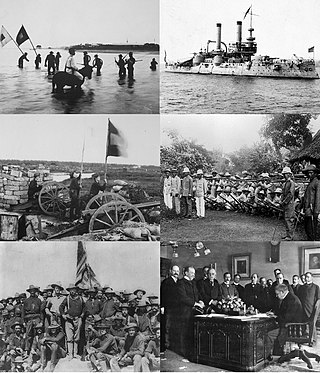
The Spanish–American War was a period of armed conflict between Spain and the United States. Hostilities began in the aftermath of the internal explosion of USS Maine in Havana Harbor in Cuba, leading to United States intervention in the Cuban War of Independence. The war led to the United States emerging predominant in the Caribbean region, and resulted in U.S. acquisition of Spain's Pacific possessions. It led to United States involvement in the Philippine Revolution and later to the Philippine–American War.
The battleship USS Maine explodes and sinks in Havana harbor in Cuba, killing about 274 of the ship's roughly 354 crew. The disaster pushes the United States to declare war on Spain.

Maine was a United States Navy ship that sank in Havana Harbor on February 15, 1898, contributing to the outbreak of the Spanish–American War in April. U.S. newspapers, engaging in yellow journalism to boost circulation, claimed that the Spanish were responsible for the ship's destruction. The phrase, "Remember the Maine! To hell with Spain!" became a rallying cry for action. Although the Maine explosion was not a direct cause, it served as a catalyst that accelerated the events leading up to the war.

Havana is the capital and largest city of Cuba. The heart of the La Habana Province, Havana is the country's main port and commercial center. The city has a population of 2.3 million inhabitants, and it spans a total of 728.26 km2 (281.18 sq mi) – making it the largest city by area, the most populous city, and the fourth largest metropolitan area in the Caribbean region.

Cuba, officially the Republic of Cuba, is an island country comprising the island of Cuba, as well as Isla de la Juventud and several minor archipelagos. Cuba is located where the northern Caribbean Sea, Gulf of Mexico, and Atlantic Ocean meet. Cuba is located east of the Yucatán Peninsula (Mexico), south of both the American state of Florida and the Bahamas, west of Hispaniola, and north of both Jamaica and the Cayman Islands. Havana is the largest city and capital; other major cities include Santiago de Cuba and Camagüey. The official area of the Republic of Cuba is 109,884 km2 (42,426 sq mi) but a total of 350,730 km² including the exclusive economic zone. Cuba is the second-most populous country in the Caribbean after Haiti, with over 11 million inhabitants.

The United States of America, commonly known as the United States or informally America, is a country in North America. It consists of 50 states, a federal district, five major unincorporated territories, nine Minor Outlying Islands, and 326 Indian reservations. It is the third-largest country by both land and total area. The United States shares land borders with Canada to its north and with Mexico to its south. It has maritime borders with the Bahamas, Cuba, Russia, and other nations. With a population of over 331 million, it is the third most populous country in the world. The national capital is Washington, D.C., and the most populous city and financial center is New York City.

The Spanish–American War was a period of armed conflict between Spain and the United States. Hostilities began in the aftermath of the internal explosion of USS Maine in Havana Harbor in Cuba, leading to United States intervention in the Cuban War of Independence. The war led to the United States emerging predominant in the Caribbean region, and resulted in U.S. acquisition of Spain's Pacific possessions. It led to United States involvement in the Philippine Revolution and later to the Philippine–American War.

Spain, or the Kingdom of Spain, is a country primarily located in southwestern Europe with parts of territory in the Atlantic Ocean and across the Mediterranean Sea. The largest part of Spain is situated on the Iberian Peninsula; its territory also includes the Canary Islands in the Atlantic Ocean, the Balearic Islands in the Mediterranean Sea, and the autonomous cities of Ceuta and Melilla in Africa. The country's mainland is bordered to the south by Gibraltar; to the south and east by the Mediterranean Sea; to the north by France, Andorra and the Bay of Biscay; and to the west by Portugal and the Atlantic Ocean. With an area of 505,990 km2 (195,360 sq mi), Spain is the second-largest country in the European Union (EU) and, with a population exceeding 47.4 million, the fourth-most populous EU member state. Spain's capital and largest city is Madrid; other major urban areas include Barcelona, Valencia, Seville, Zaragoza, Málaga, Murcia, Palma de Mallorca, Las Palmas de Gran Canaria and Bilbao.
Women's rights: US President Rutherford B. Hayes signs a bill allowing female attorneys to argue cases before the Supreme Court of the United States.

Women's rights are the rights and entitlements claimed for women and girls worldwide. They formed the basis for the women's rights movement in the 19th century and the feminist movements during the 20th and 21st centuries. In some countries, these rights are institutionalized or supported by law, local custom, and behavior, whereas in others, they are ignored and suppressed. They differ from broader notions of human rights through claims of an inherent historical and traditional bias against the exercise of rights by women and girls, in favor of men and boys.
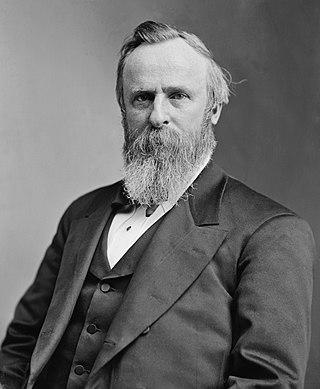
Rutherford Birchard Hayes was an American lawyer and politician who served as the 19th president of the United States from 1877 to 1881, after serving in the U.S. House of Representatives and as governor of Ohio. Before the American Civil War, Hayes was a lawyer and staunch abolitionist who defended refugee slaves in court proceedings. He served in the Union Army and the House of Representatives before assuming the presidency. His presidency represents a turning point in U.S. history, as historians consider it the formal end of Reconstruction. Hayes, a prominent member of the Republican "Half-Breed" faction, placated both Southern Democrats and Whiggish Republican businessmen by ending the federal government's involvement in attempting to bring racial equality in the South.

A lawyer is a person who practices law. The role of a lawyer varies greatly across different legal jurisdictions. A lawyer can be classified as an advocate, attorney, barrister, canon lawyer, civil law notary, counsel, counselor, solicitor, legal executive, or public servant — with each role having different functions and privileges. Working as a lawyer generally involves the practical application of abstract legal theories and knowledge to solve specific problems. Some lawyers also work primarily in advancing the interests of the law and legal profession.

The Supreme Court of the United States (SCOTUS) is the highest court in the federal judiciary of the United States. It has ultimate appellate jurisdiction over all U.S. federal court cases, and over state court cases that involve a point of federal law. It also has original jurisdiction over a narrow range of cases, specifically "all Cases affecting Ambassadors, other public Ministers and Consuls, and those in which a State shall be Party." The court holds the power of judicial review, the ability to invalidate a statute for violating a provision of the Constitution. It is also able to strike down presidential directives for violating either the Constitution or statutory law. However, it may act only within the context of a case in an area of law over which it has jurisdiction. The court may decide cases having political overtones, but has ruled that it does not have power to decide non-justiciable political questions.
Stevens Institute of Technology is founded in New Jersey, US, and offers the first Bachelor of Engineering degree in mechanical engineering.

Stevens Institute of Technology is a private research university in Hoboken, New Jersey. Founded in 1870, it is one of the oldest technological universities in the United States and was the first college in America solely dedicated to mechanical engineering. The 55-acre campus encompasses Castle Point, the highest point in Hoboken, a campus green and 43 academic, student and administrative buildings.
A Bachelor of Engineering (BEng) or a Bachelor of Science in Engineering (BSE) is an academic undergraduate degree awarded to a student after three to five years of studying engineering at an accredited college or university.
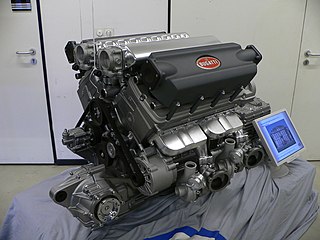
Mechanical engineering is an engineering branch that combines engineering physics and mathematics principles with materials science, to design, analyze, manufacture, and maintain mechanical systems. It is one of the oldest and broadest of the engineering branches.
American Civil War: Confederates commanded by Brig. Gen. John B. Floyd attack General Ulysses S. Grant's Union forces besieging Fort Donelson in Tennessee. Unable to break the fort's encirclement, the Confederates surrender the following day.

The American Civil War was a civil war in the United States. It was fought between the Union and the Confederacy, the latter formed by states that had seceded. The central cause of the war was the dispute over whether slavery would be permitted to expand into the western territories, leading to more slave states, or be prevented from doing so, which was widely believed would place slavery on a course of ultimate extinction.

John Buchanan Floyd was the 31st Governor of Virginia, U.S. Secretary of War, and the Confederate general in the American Civil War who lost the crucial Battle of Fort Donelson.

Ulysses S. Grant was an American military officer and politician who served as the 18th president of the United States from 1869 to 1877. As Commanding General, he led the Union Army to victory in the American Civil War in 1865 and thereafter briefly served as Secretary of War. Later, as president, Grant was an effective civil rights executive who signed the bill that created the Justice Department and worked with Radical Republicans to protect African Americans during Reconstruction.

The Battle of Fort Donelson was fought from February 11–16, 1862, in the Western Theater of the American Civil War. The Union capture of the Confederate fort near the Tennessee–Kentucky border opened the Cumberland River, an important avenue for the invasion of the South. The Union's success also elevated Brig. Gen. Ulysses S. Grant from an obscure and largely unproven leader to the rank of major general, and earned him the nickname of "Unconditional Surrender" Grant.

Tennessee, officially the State of Tennessee, is a landlocked state in the Southeastern region of the United States. Tennessee is the 36th-largest by area and the 16th-most populous of the 50 states. It is bordered by Kentucky to the north, Virginia to the northeast, North Carolina to the east, Georgia, Alabama, and Mississippi to the south, Arkansas to the southwest, and Missouri to the northwest. Tennessee is geographically, culturally, and legally divided into three Grand Divisions of East, Middle, and West Tennessee. Nashville is the state's capital and largest city, and anchors its largest metropolitan area. Other major cities include Memphis, Knoxville, Chattanooga, and Clarksville. Tennessee's population as of the 2020 United States census is approximately 6.9 million.
Serbia's Sretenje Constitution briefly comes into effect.

The Constitution of the Principality of Serbia known as the Sretenje Constitution, was the first constitution of the Principality of Serbia, adopted in Kragujevac in 1835. The Constitution was written by Dimitrije Davidović. The Constitution divided the power into legislative, executive and judicial branches, which is still considered the standard of democracy and constitutionality today.
James McBrien made the first official discovery of gold in Australia at Fish River in New South Wales.

During the Australian gold rushes, starting in 1851, significant numbers of workers moved from elsewhere in Australia and overseas to where gold had been discovered. Gold had been found several times before, but the colonial government of New South Wales had suppressed the news out of the fear that it would reduce the workforce and so destabilise the economy.

Fish River, a perennial stream that is part of the Macquarie catchment within the Murray–Darling basin, is located in the central western district of New South Wales, Australia.

New South Wales is a state on the east coast of Australia. It borders Queensland to the north, Victoria to the south, and South Australia to the west. Its coast borders the Coral and Tasman Seas to the east. The Australian Capital Territory and Jervis Bay Territory are enclaves within the state. New South Wales' state capital is Sydney, which is also Australia's most populous city. In December 2021, the population of New South Wales was over 8 million, making it Australia's most populous state. Just under two-thirds of the state's population, 5.3 million, live in the Greater Sydney area.
The Roman Republic is proclaimed after Louis-Alexandre Berthier, a general of Napoleon, had invaded the city of Rome five days earlier.

The Roman Republic was a sister republic of the First French Republic. It was proclaimed on 15 February 1798 after Louis-Alexandre Berthier, a general of Napoleon, had occupied the city of Rome on 10 February. It was led by a Directory of five men and comprised territory conquered from the Papal States. Pope Pius VI was exiled to France and died there in August 1799. The republic immediately took control of the other two former-papal revolutionary administrations, the Tiberina Republic and the Anconine Republic. The Roman Republic proved short-lived, as Neapolitan troops restored the Papal States in October 1799.

Louis-Alexandre Berthier, Prince of Neuchâtel and Valangin, Prince of Wagram, was a French Marshal of the Empire who served during the French Revolutionary Wars and the Napoleonic Wars. He was twice Minister of War of France and served as chief of staff to Napoleon Bonaparte.

Napoleon Bonaparte, later known by his regnal name Napoleon I, was a French military commander and political leader who rose to prominence during the French Revolution and led successful campaigns during the Revolutionary Wars. He was the de facto leader of the French Republic as First Consul from 1799 to 1804, then Emperor of the French from 1804 until 1814 and again in 1815. Napoleon's political and cultural legacy endures to this day, as a highly celebrated and controversial leader. He initiated many liberal reforms that have persisted in society, and is considered one of the greatest military commanders in history, but between three and six million civilians and soldiers perished in what became known as the Napoleonic Wars.

Rome is the capital city of Italy. It is also the capital of the Lazio region, the centre of the Metropolitan City of Rome, and a special comune named Comune di Roma Capitale. With 2,860,009 residents in 1,285 km2 (496.1 sq mi), Rome is the country's most populated comune and the third most populous city in the European Union by population within city limits. The Metropolitan City of Rome, with a population of 4,355,725 residents, is the most populous metropolitan city in Italy. Its metropolitan area is the third-most populous within Italy. Rome is located in the central-western portion of the Italian Peninsula, within Lazio (Latium), along the shores of the Tiber. Vatican City is an independent country inside the city boundaries of Rome, the only existing example of a country within a city. Rome is often referred to as the City of Seven Hills due to its geographic location, and also as the "Eternal City". Rome is generally considered to be the "cradle of Western civilization and Christian culture", and the centre of the Catholic Church.
French Revolutionary Wars: The invasion of Ceylon ended with Johan van Angelbeek, the Batavian governor of the island, surrendering Colombo to British forces.

The French Revolutionary Wars were a series of sweeping military conflicts lasting from 1792 until 1802 and resulting from the French Revolution. They pitted France against Britain, Austria, Prussia, Russia, and several other monarchies. They are divided in two periods: the War of the First Coalition (1792–97) and the War of the Second Coalition (1798–1802). Initially confined to Europe, the fighting gradually assumed a global dimension. After a decade of constant warfare and aggressive diplomacy, France had conquered territories in the Italian Peninsula, the Low Countries and the Rhineland in Europe and abandoned Louisiana in North America. French success in these conflicts ensured the spread of revolutionary principles over much of Europe.
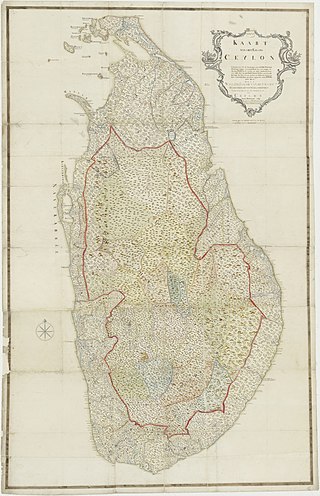
The Invasion of Ceylon was a military campaign fought as a series of amphibious operations between the summer of 1795 and spring of 1796 between the garrison of the Batavian colonies on the Indian Ocean island of Ceylon and a British invasion force sent from British India. The Dutch Republic had been a British ally during the French Revolutionary Wars, but was overrun by the French Republic in the winter of 1794 and reformed into the client state of the Batavian Republic. The British government, working with the exiled Stadtholder William of Orange, ordered the seizure of Batavian assets including colonies of the former Dutch Empire. Among the first territories to be attacked were those on the coast of the island of Ceylon, with operations initially focused on the trading port at Trincomalee.

Johan Gerard van Angelbeek was a Dutch colonial officer who commanded Dutch forces on the island of Ceylon during the colony's final year in the Dutch Empire before its seizure by a British expeditionary force.

The Batavian Republic was the successor state to the Republic of the Seven United Netherlands. It was proclaimed on 19 January 1795 and ended on 5 June 1806, with the accession of Louis Bonaparte to the Dutch throne. From October 1801 onward, it was known as the Batavian Commonwealth. Both names refer to the Germanic tribe of the Batavi, representing both the Dutch ancestry and their ancient quest for liberty in their nationalistic lore.
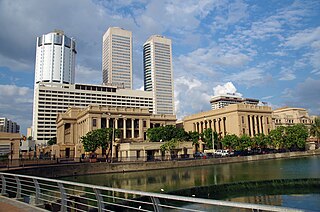
Colombo is the executive and judicial capital and largest city of Sri Lanka by population. According to the Brookings Institution, Colombo metropolitan area has a population of 5.6 million, and 752,993 in the Municipality. It is the financial centre of the island and a tourist destination. It is located on the west coast of the island and adjacent to the Greater Colombo area which includes Sri Jayawardenepura Kotte, the legislative capital of Sri Lanka, and Dehiwala-Mount Lavinia. Colombo is often referred to as the capital since Sri Jayawardenepura Kotte is itself within the urban/suburban area of Colombo. It is also the administrative capital of the Western Province and the district capital of Colombo District. Colombo is a busy and vibrant city with a mixture of modern life, colonial buildings and monuments.
The city of St. Louis is established in Spanish Louisiana (now in Missouri, USA).

St. Louis is the second-largest city in Missouri. It sits near the confluence of the Mississippi and the Missouri Rivers. In 2020, the city proper had a population of 301,578, while the bi-state metropolitan area, which extends into Illinois, had an estimated population of over 2.8 million, making it the largest metropolitan area in Missouri, the second-largest in Illinois.

Spanish Louisiana was a governorate and administrative district of the Viceroyalty of New Spain from 1762 to 1801 that consisted of a vast territory in the center of North America encompassing the western basin of the Mississippi River plus New Orleans. The area had originally been claimed and controlled by France, which had named it La Louisiane in honor of King Louis XIV in 1682. Spain secretly acquired the territory from France near the end of the Seven Years' War by the terms of the Treaty of Fontainebleau (1762). The actual transfer of authority was a slow process, and after Spain finally attempted to fully replace French authorities in New Orleans in 1767, French residents staged an uprising which the new Spanish colonial governor did not suppress until 1769. Spain also took possession of the trading post of St. Louis and all of Upper Louisiana in the late 1760s, though there was little Spanish presence in the wide expanses of the "Illinois Country".

Missouri is a state in the Midwestern region of the United States. Ranking 21st in land area, it is bordered by eight states : Iowa to the north, Illinois, Kentucky and Tennessee to the east, Arkansas to the south and Oklahoma, Kansas and Nebraska to the west. In the south are the Ozarks, a forested highland, providing timber, minerals, and recreation. The Missouri River, after which the state is named, flows through the center into the Mississippi River, which makes up the eastern border. With more than six million residents, it is the 19th-most populous state of the country. The largest urban areas are St. Louis, Kansas City, Springfield and Columbia; the capital is Jefferson City.
Constantin Cantemir, Prince of Moldavia, and the Holy Roman Empire sign a secret treaty in Sibiu, stipulating that Moldavia would support the actions led by the House of Habsburg against the Ottoman Empire.

Constantin or Constantine Cantemir (1612–1693) was a Moldavian nobleman, soldier, and statesman who served as voivode between 25 June 1685 and 27 March 1693. He established the Cantemir dynasty which—with interruptions—ruled Moldavia prior to the imposition of phanariot rule.

Moldavia is a historical region and former principality in Central and Eastern Europe, corresponding to the territory between the Eastern Carpathians and the Dniester River. An initially independent and later autonomous state, it existed from the 14th century to 1859, when it united with Wallachia as the basis of the modern Romanian state; at various times, Moldavia included the regions of Bessarabia, all of Bukovina and Hertsa. The region of Pokuttya was also part of it for a period of time.

The Holy Roman Empire, also known after 1512 as the Holy Roman Empire of the German Nation, was a political entity in Western, Central and Southern Europe that developed during the Early Middle Ages and continued until its dissolution in 1806 during the Napoleonic Wars.
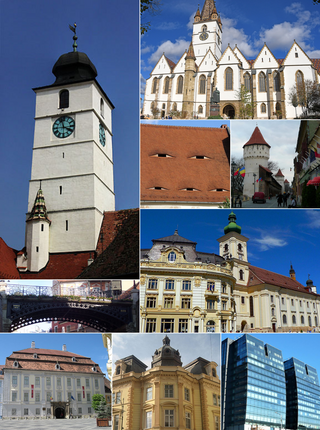
Sibiu is a city in Romania, in the historical region of Transylvania. Located some 275 km (171 mi) north-west of Bucharest, the city straddles the Cibin River, a tributary of the river Olt. Now the capital of the Sibiu County, between 1692 and 1791 and 1849–65 Sibiu was also the capital of the Principality of Transylvania.

The House of Habsburg, alternatively spelled Hapsburg in English and also known as the House of Austria is one of the most prominent and important dynasties in European history.
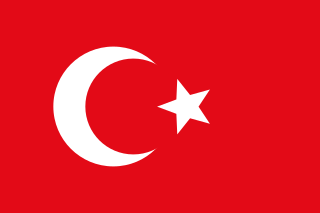
The Ottoman Empire, also known as the Turkish Empire, was an empire that controlled much of Southeast Europe, Western Asia, and Northern Africa between the 14th and early 20th centuries. It was founded at the end of the 13th century in northwestern Anatolia in the town of Söğüt by the Turkoman tribal leader Osman I. After 1354, the Ottomans crossed into Europe and, with the conquest of the Balkans, the Ottoman beylik was transformed into a transcontinental empire. The Ottomans ended the Byzantine Empire with the conquest of Constantinople in 1453 by Mehmed the Conqueror.
Ferdinand III becomes Holy Roman Emperor.

Ferdinand III was from 1621 Archduke of Austria, King of Hungary from 1625, King of Croatia and Bohemia from 1627 and Holy Roman Emperor from 1637 until his death in 1657.
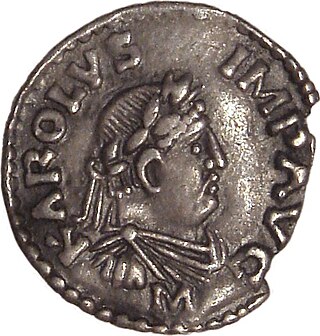
The Holy Roman Emperor, originally and officially the Emperor of the Romans during the Middle Ages, and also known as the German-Roman Emperor since the early modern period, was the ruler and head of state of the Holy Roman Empire. The title was held in conjunction with the title of king of Italy from the 8th to the 16th century, and, almost without interruption, with the title of king of Germany throughout the 12th to 18th centuries.
Christopher Columbus wrote a letter, which was widely distributed upon his return to Portugal, announcing the results of his first voyage to the Americas.

Christopher Columbus was an Italian explorer and navigator who completed four voyages across the Atlantic Ocean sponsored by the Catholic Monarchs of Spain, opening the way for the widespread European exploration and colonization of the Americas. His expeditions were the first known European contact with the Caribbean, Central America, and South America.

A letter written by Christopher Columbus on February 15, 1493 is the first known document announcing the results of his first voyage that set out in 1492 and reached the Americas. The letter was ostensibly written by Columbus himself, aboard the caravel Niña, on the return leg of his voyage. A postscript was added upon his arrival in Lisbon on March 4, 1493, and it was probably from there that Columbus dispatched two copies of his letter to the Spanish court.

Between 1492 and 1504, Italian explorer Christopher Columbus led four Spanish transatlantic maritime expeditions of discovery to the Americas. These voyages led to the widespread knowledge of the New World. This breakthrough inaugurated the period known as the Age of Discovery, which saw the colonization of the Americas, a related biological exchange, and trans-Atlantic trade. These events, the effects and consequences of which persist to the present, are often cited as the beginning of the modern era.
While on board the Niña, Christopher Columbus writes an open letter (widely distributed upon his return to Portugal) describing his discoveries and the unexpected items he came across in the New World.

La Niña was one of the three Spanish ships used by Italian explorer Christopher Columbus in his first voyage to the West Indies in 1492. As was tradition for Spanish ships of the day, she bore a female saint's name, Santa Clara. However, she was commonly referred to by her nickname, La Niña, which was probably a pun on the name of her owner, Juan Niño of Moguer. She was a standard caravel-type vessel.

Christopher Columbus was an Italian explorer and navigator who completed four voyages across the Atlantic Ocean sponsored by the Catholic Monarchs of Spain, opening the way for the widespread European exploration and colonization of the Americas. His expeditions were the first known European contact with the Caribbean, Central America, and South America.

A letter written by Christopher Columbus on February 15, 1493 is the first known document announcing the results of his first voyage that set out in 1492 and reached the Americas. The letter was ostensibly written by Columbus himself, aboard the caravel Niña, on the return leg of his voyage. A postscript was added upon his arrival in Lisbon on March 4, 1493, and it was probably from there that Columbus dispatched two copies of his letter to the Spanish court.

Portugal, officially the Portuguese Republic, is a country whose mainland is located on the Iberian Peninsula of Southwestern Europe, and whose territory also includes the Atlantic archipelagos of the Azores and Madeira. It features the westernmost point in continental Europe, and its Iberian portion is bordered to the west and south by the Atlantic Ocean and to the north and east by Spain, the sole country to have a land border with Portugal. Its two archipelagos form two autonomous regions with their own regional governments. Lisbon is the capital and largest city by population.

The "New World" is a term often used for the majority of Earth's Western Hemisphere, specifically the Americas. The term gained prominence in the early 16th century, during Europe's Age of Discovery, shortly after the Italian explorer Amerigo Vespucci concluded that America represented a new continent, and subsequently published his findings in a pamphlet he titled Mundus Novus. This realization expanded the geographical horizon of classical European geographers, who had thought the world consisted of Africa, Europe, and Asia, collectively now referred to as the Old World, or Afro-Eurasia. The Americas were also referred to as the fourth part of the world.
During the Anglo-French War (1213–1214), an English invasion force led by John, King of England, lands at La Rochelle in France.

The Anglo-French War was a major medieval conflict which pitted the Kingdom of France against the Kingdom of England and various other states. It was fought in an attempt to curb the rising power of King Philip II of France and regain the Angevin continental possessions King John of England lost to him a decade earlier. It is widely regarded as the very first anti-French coalition war and came to an end at the decisive Battle of Bouvines, where Philip defeated England and its allies.
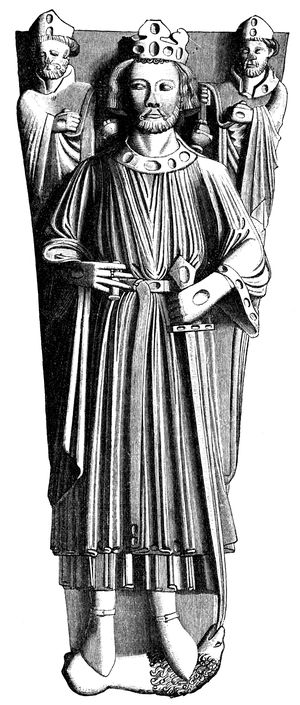
John was King of England from 1199 until his death in 1216. He lost the Duchy of Normandy and most of his other French lands to King Philip II of France, resulting in the collapse of the Angevin Empire and contributing to the subsequent growth in power of the French Capetian dynasty during the 13th century. The baronial revolt at the end of John's reign led to the sealing of Magna Carta, a document considered an early step in the evolution of the constitution of the United Kingdom.

La Rochelle is a city on the west coast of France and a seaport on the Bay of Biscay, a part of the Atlantic Ocean. It is the capital of the Charente-Maritime department. With 75,735 inhabitants in 2017, La Rochelle is the most populated commune in the department and ranks fifth in the New Aquitaine region after Bordeaux, the regional capital, Limoges, Poitiers and Pau. Its inhabitants are called "les Rochelaises" and "les Rochelais".

France, officially the French Republic, is a transcontinental country predominantly located in Western Europe and spanning overseas regions and territories in the Americas and the Atlantic, Pacific and Indian Oceans. Its metropolitan area extends from the Rhine to the Atlantic Ocean and from the Mediterranean Sea to the English Channel and the North Sea; overseas territories include French Guiana in South America, Saint Pierre and Miquelon in the North Atlantic, the French West Indies, and many islands in Oceania and the Indian Ocean. Due to its several coastal territories, France has the largest exclusive economic zone in the world. France borders Belgium, Luxembourg, Germany, Switzerland, Monaco, Italy, Andorra, and Spain in continental Europe, as well as the Netherlands, Suriname, and Brazil in the Americas via its overseas territories in French Guiana and Saint Martin. Its eighteen integral regions span a combined area of 643,801 km2 (248,573 sq mi) and contain close to 68 million people. France is a unitary semi-presidential republic with its capital in Paris, the country's largest city and main cultural and commercial centre; other major urban areas include Marseille, Lyon, Toulouse, Lille, Bordeaux, and Nice.
Pope Paschal II issued the papal bull Pie postulatio voluntatis, formally recognising the establishment of the Knights Hospitaller.
Pope Paschal II, born Ranierius, was head of the Catholic Church and ruler of the Papal States from 13 August 1099 to his death in 1118. A monk of the Abbey of Cluny, he was created the cardinal-priest of San Clemente by Pope Gregory VII (1073–85) in 1073. He was consecrated as pope in succession to Pope Urban II (1088–99) on 19 August 1099. His reign of almost twenty years was exceptionally long for a medieval pope.

A papal bull is a type of public decree, letters patent, or charter issued by a pope of the Catholic Church. It is named after the leaden seal (bulla) that was traditionally appended to the end in order to authenticate it.

Pie postulatio voluntatis is a papal bull issued on 15 February 1113 by Pope Paschal II, in which the Pope formally recognized the establishment of the Knights Hospitaller and confirmed its independence and sovereignty. Today, the document is preserved at the National Library of Malta in Valletta, Malta.

The Order of Knights of the Hospital of Saint John of Jerusalem, commonly known as the Knights Hospitaller, was a medieval and early modern Catholic military order. It was headquartered in the Kingdom of Jerusalem until 1291, on the island of Rhodes from 1310 until 1522, in Malta from 1530 until 1798 and at Saint Petersburg from 1799 until 1801. Today several organizations continue the Hospitaller tradition, specifically the mutually recognized orders of St. John, which are the Sovereign Military Order of Malta, the Most Venerable Order of the Hospital of Saint John, the Bailiwick of Brandenburg of the Chivalric Order of Saint John, the Order of Saint John in the Netherlands, and the Order of Saint John in Sweden.
Pope Paschal II issues Pie Postulatio Voluntatis, recognizing the Order of Hospitallers.
Pope Paschal II, born Ranierius, was head of the Catholic Church and ruler of the Papal States from 13 August 1099 to his death in 1118. A monk of the Abbey of Cluny, he was created the cardinal-priest of San Clemente by Pope Gregory VII (1073–85) in 1073. He was consecrated as pope in succession to Pope Urban II (1088–99) on 19 August 1099. His reign of almost twenty years was exceptionally long for a medieval pope.

Pie postulatio voluntatis is a papal bull issued on 15 February 1113 by Pope Paschal II, in which the Pope formally recognized the establishment of the Knights Hospitaller and confirmed its independence and sovereignty. Today, the document is preserved at the National Library of Malta in Valletta, Malta.

The Order of Knights of the Hospital of Saint John of Jerusalem, commonly known as the Knights Hospitaller, was a medieval and early modern Catholic military order. It was headquartered in the Kingdom of Jerusalem until 1291, on the island of Rhodes from 1310 until 1522, in Malta from 1530 until 1798 and at Saint Petersburg from 1799 until 1801. Today several organizations continue the Hospitaller tradition, specifically the mutually recognized orders of St. John, which are the Sovereign Military Order of Malta, the Most Venerable Order of the Hospital of Saint John, the Bailiwick of Brandenburg of the Chivalric Order of Saint John, the Order of Saint John in the Netherlands, and the Order of Saint John in Sweden.
At an assembly at Pavia of Lombard nobles, Arduin of Ivrea is restored to his domains and crowned King of Italy.

Pavia is a town and comune of south-western Lombardy in northern Italy, 35 kilometres south of Milan on the lower Ticino river near its confluence with the Po. It has a population of c. 73,086. The city was the capital of the Ostrogothic Kingdom from 540 to 553, of the Kingdom of the Lombards from 572 to 774, of the Kingdom of Italy from 774 to 1024 and seat of the Visconti court from 1365 to 1413.

Lombardy is an administrative region of Italy that covers 23,844 km2 (9,206 sq mi); it is located in the northern-central part of the country and has a population of about 10 million people, constituting more than one-sixth of Italy's population. Over a fifth of the Italian gross domestic product (GDP) is produced in the region.
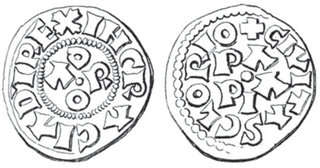
Arduin was an Italian nobleman who was King of Italy from 1002 until 1014.

King of Italy was the title given to the ruler of the Kingdom of Italy after the fall of the Western Roman Empire. The first to take the title was Odoacer, a barbarian military leader, in the late 5th century, followed by the Ostrogothic kings up to the mid-6th century. With the Frankish conquest of Italy in the 8th century, the Carolingians assumed the title, which was maintained by subsequent Holy Roman Emperors throughout the Middle Ages. The last Emperor to claim the title was Charles V in the 16th century. During this period, the holders of the title were crowned with the Iron Crown of Lombardy.
Byzantine emperor Justinian II has his predecessors Leontios and Tiberios III publicly executed in the Hippodrome of Constantinople.
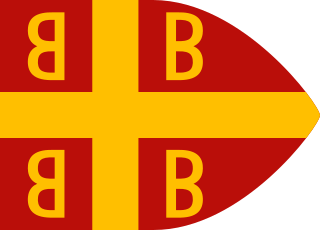
The Byzantine Empire, also referred to as the Eastern Roman Empire or Byzantium, was the continuation of the Roman Empire in its eastern provinces during Late Antiquity and the Middle Ages, when its capital city was Constantinople. It survived the fragmentation and fall of the Western Roman Empire in the 5th century AD and continued to exist for an additional thousand years until the fall of Constantinople to the Ottoman Empire in 1453. During most of its existence, the empire remained the most powerful economic, cultural, and military force in Europe. The terms "Byzantine Empire" and "Eastern Roman Empire" were coined after the end of the realm; its citizens continued to refer to their empire as the Roman Empire, and to themselves as Romans—a term which Greeks continued to use for themselves into Ottoman times. Although the Roman state continued and its traditions were maintained, modern historians distinguish Byzantium from its earlier incarnation because it was centered on Constantinople, oriented towards Greek rather than Latin culture, and characterised by Eastern Orthodox Christianity.
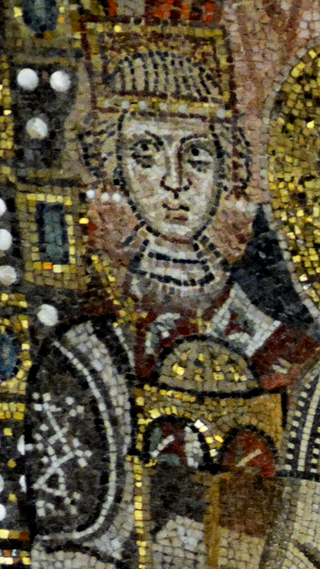
Justinian II, nicknamed "the Slit-Nosed", was the last Eastern Roman emperor of the Heraclian dynasty, reigning from 685 to 695 and again from 705 to 711. Like his namesake, Justinian I, Justinian II was an ambitious and passionate ruler who was keen to restore the Roman Empire to its former glories. However, he responded brutally to any opposition to his will and lacked the finesse of his father, Constantine IV. Consequently, he generated enormous opposition to his reign, resulting in his deposition in 695 in a popular uprising. He only returned to the throne in 705 with the help of a Bulgar and Slav army. His second reign was even more despotic than the first, and it too saw his eventual overthrow in 711. He was abandoned by his army, who turned on him before killing him.

Leontius, was Byzantine emperor from 695 to 698. Little is known of his early life, other than that he was born in Isauria in Asia Minor. He was given the title of patrikios, and made strategos of the Anatolic Theme under Emperor Constantine IV. He led forces against the Umayyads during the early years of Justinian II's reign, securing victory and forcing the Umayyad caliph, Abd al-Malik ibn Marwan, to sue for peace.

Tiberius III, born Apsimar, was Byzantine emperor from 698 to 705 AD. Little is known about his early life, other than that he was droungarios, a mid-level commander, of the Cibyrrhaeots, and that his birth name was Apsimar. In 696, Tiberius was part of an army led by John the Patrician sent by Byzantine Emperor Leontius to retake the city of Carthage in the Exarchate of Africa, which had been captured by the Arab Umayyads. After seizing the city, this army was pushed back by Umayyad reinforcements and retreated to the island of Crete; some of the officers, fearing the wrath of Leontius, killed John and declared Tiberius emperor. Tiberius swiftly gathered a fleet, sailed for Constantinople, and deposed Leontius. Tiberius did not attempt to retake Byzantine Africa from the Umayyads, but campaigned against them along the eastern border with some success. In 705 former Emperor Justinian II, who had been deposed by Leontius, led an army of Slavs and Bulgars to Constantinople, and after entering the city secretly, deposed Tiberius. Tiberius fled to Bithynia, but was captured several months later and beheaded between August 705 and February 706. His body was initially thrown into the sea, but was later recovered and buried in a church on the island of Prote.

Sultanahmet Square, or the Hippodrome of Constantinople is a square in Istanbul, Turkey. Previously, it was a circus that was the sporting and social centre of Constantinople, capital of the Byzantine Empire.
Khosrau II is crowned king of Persia.

Khosrow II, also known as Khosrow Parviz, is considered to be the last great Sasanian king (shah) of Iran, ruling from 590 to 628, with an interruption of one year.

The Sasanian dynasty was the house that founded the Sasanian Empire, ruling this empire from 224 to 651 AD in Persia. It began with Ardashir I, who named the dynasty as Sasanian in honour of his grandfather, Sasan, and after the name of his tribe.
The Codex Theodosianus, a compilation of the laws of the Roman Empire, was published.

The Codex Theodosianus was a compilation of the laws of the Roman Empire under the Christian emperors since 312. A commission was established by Emperor Theodosius II and his co-emperor Valentinian III on 26 March 429 and the compilation was published by a constitution of 15 February 438. It went into force in the eastern and western parts of the empire on 1 January 439. The original text of the codex is also found in the Breviary of Alaric, promulgated on 2 February 506.
Roman emperor Theodosius II publishes the law codex Codex Theodosianus
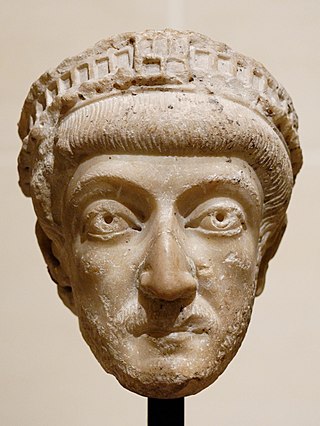
Theodosius II was Roman emperor for most of his life, proclaimed augustus as an infant in 402 and ruling as the eastern Empire's sole emperor after the death of his father Arcadius in 408. His reign was marked by the promulgation of the Theodosian law code and the construction of the Theodosian Walls of Constantinople. He also presided over the outbreak of two great Christological controversies, Nestorianism and Eutychianism.

The Codex Theodosianus was a compilation of the laws of the Roman Empire under the Christian emperors since 312. A commission was established by Emperor Theodosius II and his co-emperor Valentinian III on 26 March 429 and the compilation was published by a constitution of 15 February 438. It went into force in the eastern and western parts of the empire on 1 January 439. The original text of the codex is also found in the Breviary of Alaric, promulgated on 2 February 506.
Caroline Flack, English actress and TV presenter (b. 1979) deaths

Caroline Louise Flack was an English television and radio presenter and actress. She won the twelfth series of BBC’s Strictly Come Dancing and presented The X Factor and later Love Island.
Lee Radziwill, American socialite (b. 1933) deaths

Caroline Lee Bouvier, later Canfield, Radziwiłł, and Ross, usually known as Princess Lee Radziwill, was an American socialite, public-relations executive, and interior decorator. She was the younger sister of First Lady Jacqueline Bouvier Kennedy and sister-in-law of President John F. Kennedy. Radziwill was married three times, each marriage ending in divorce, with the marriage to third husband Herbert Ross ending in divorce shortly before his death in 2001.
Stuart McLean, Canadian radio broadcaster (b. 1948) deaths

Andrew Stuart McLean, was a Canadian radio broadcaster, humorist, monologist, and author, best known as the host of the CBC Radio program The Vinyl Cafe. Often described as a "story-telling comic" although his stories addressed both humorous and serious themes, he was known for fiction and non-fiction work which celebrated the decency and dignity of ordinary people, through stories which often highlighted the ability of their subjects, whether real or fictional, to persevere with grace and humour through embarrassing or challenging situations.
George Gaynes, Finnish-American actor (b. 1917) deaths
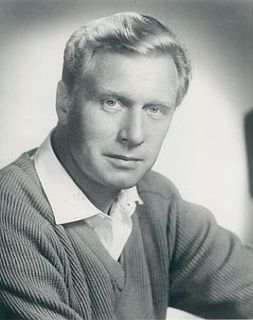
George Gaynes was a Finnish-born American singer, actor, and voice artist. Born to Dutch and Russian-Finnish parents in the Grand Duchy of Finland of the Russian Empire, he served in the Royal Netherlands Navy during World War II, and subsequently emigrated to the United States, where he became a citizen and began his acting career on Broadway.
Vanity, Canadian-American singer-songwriter, dancer, and actress (b. 1959) deaths

Denise Kathleen Matthews, known professionally as Vanity, was a Canadian singer, model, and actress. Known for her image as a sex symbol in the 1980s, she became an evangelist and renounced her career as Vanity in the 1990s.
Haron Amin, Afghan diplomat, Afghan Ambassador to Japan (b. 1969) deaths
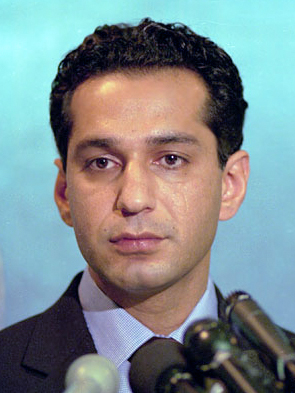
Mohammad Haron Amin was the Afghan ambassador to Japan and non-resident ambassador to Thailand, the Philippines and Singapore from 2004–2009. He is also known for his role as spokesman for the Northern Alliance during the U.S.-led invasion of his country after the events of September 11, 2001.
Within the context of diplomatic relations between Afghanistan and Japan, Afghanistan has appointed an envoy to Japan intermittently since 1933, under the title of either ambassador or chargé d'affaires.
Arnaud de Borchgrave, American journalist and author (b. 1926) deaths

Arnaud Charles Paul Marie Philippe de Borchgrave was a Belgian-American journalist who specialized in international politics. Following a long career with the news magazine Newsweek, covering 17 wars in 30 years as a foreign correspondent, he held key editorial and executive positions with The Washington Times and United Press International. Borchgrave was also a founding member of Newsmax Media.
Steve Montador, Canadian ice hockey player (b. 1979) deaths

Steven Richard "The Matador" Montador was a Canadian professional ice hockey defenceman who played 571 games in the National Hockey League (NHL) for the Calgary Flames, Florida Panthers, Anaheim Ducks, Boston Bruins, Buffalo Sabres and Chicago Blackhawks before ending his career in 2014 as a member of Medveščak Zagreb of the Kontinental Hockey League (KHL).
Thelma Estrin, American computer scientist and engineer (b. 1924) deaths
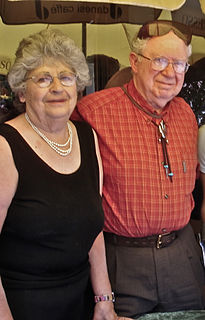
Thelma Estrin was an American computer scientist and engineer who did pioneering work in the fields of expert systems and biomedical engineering. Estrin was one of the first to apply computer technology to healthcare and medical research. In 1954, Estrin helped to design the Weizmann Automatic Computer, or WEIZAC, the first computer in Israel and the Middle East, a moment marked as an IEEE Milestone in Electrical and Computer Engineering. She was professor emerita in the Department of Computer Science, University of California at Los Angeles (UCLA).
Christopher Malcolm, Scottish-Canadian actor, director, and producer (b. 1946) deaths
Christopher Malcolm was a Scottish actor and theatrical producer. He first achieved notoriety for his role as Brad Majors in the original stage production of The Rocky Horror Show.
Sanan Kachornprasart, Thai general and politician (b. 1935) deaths

Sanan Kachornprasart was a Thai politician and military officer. He was deputy prime minister in the cabinet of Abhisit Vejjajiva, and was chief advisor of Chartthaipattana Party.
Ahmed Rajib Haider, Bangladeshi atheist blogger deaths
Ahmed Rajib Haider was a Bangladeshi atheist blogger. He used to blog in the blogging communities namely Somewhereinblog.net, Amarblog.com and Nagorikblog.com and used the pseudonym Thaba Baba.
Cyril Domb, English-Israeli physicist and academic (b. 1920) deaths
Cyril Domb FRS was a British-Israeli theoretical physicist, best known for his lecturing and writing on the theory of phase transitions and critical phenomena of fluids. He was also known in the Orthodox Jewish world for his writings on science and Judaism.
Jeanne M. Holm, American general (b. 1921) deaths

Major General Jeanne Marjorie Holm was the first female one-star general of the United States Air Force and the first female two-star general in any service branch of the United States. Holm was a driving force behind the expansion of women's roles in the Air Force.
Johnny Weaver, American wrestler and sportscaster (b. 1935) deaths
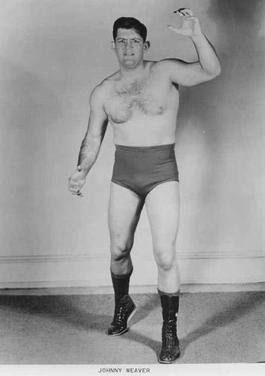
Kenneth Eugene Weaver was an American professional wrestler and wrestling commentator in the National Wrestling Alliance, better known by his ring name, Johnny Weaver.
Walker Edmiston, American actor (b. 1925) deaths

Walker Edmiston was an American radio, television and voice actor.
1925 (MCMXXV) was a common year starting on Thursday of the Gregorian calendar, the 1925th year of the Common Era (CE) and Anno Domini (AD) designations, the 925th year of the 2nd millennium, the 25th year of the 20th century, and the 6th year of the 1920s decade.
Ray Evans, American songwriter (b. 1915) deaths

Raymond Bernard Evans was an American songwriter. He was a partner in a composing and song-writing duo with Jay Livingston, known for the songs they composed for films. Evans wrote the lyrics and Livingston wrote the music.
Pierre Bachelet, French singer-songwriter (b. 1944) deaths

Pierre Bachelet was a French singer-songwriter and film score composer. He was also known as Andrew Bascon.
1944 (MCMXLIV) was a leap year starting on Saturday of the Gregorian calendar, the 1944th year of the Common Era (CE) and Anno Domini (AD) designations, the 944th year of the 2nd millennium, the 44th year of the 20th century, and the 5th year of the 1940s decade.
Sam Francis, American historian and journalist (b. 1947) deaths
Samuel Todd Francis, known as Sam Francis, was an American columnist and writer.

1947 (MCMXLVII) was a common year starting on Wednesday of the Gregorian calendar, the 1947th year of the Common Era (CE) and Anno Domini (AD) designations, the 947th year of the 2nd millennium, the 47th year of the 20th century, and the 8th year of the 1940s decade.
Jens Evensen, Norwegian lawyer, judge, and politician, Norwegian Minister of Trade (b. 1917) deaths

Jens Ingebret Evensen was a Norwegian lawyer, judge, politician, trade minister, international offshore rights expert, member of the International Law Commission and judge at the International Court of Justice in The Hague.

The Minister of Trade and Shipping was a councilor of state and chief of the Norway's Ministry of Trade and Shipping. The position was created on 6 December 1947 when the position of Minister of Trade and Industry was split into a portfolio for trade and shipping, and a Minister of Industry. As a prelude, a separate Minister of Shipping had been created between 1942 and 1945 to lead the Ministry of Shipping. The Minister of Trade and Industry had its own ministry until 1988, when the responsibility was taken over by the Ministry of Foreign Affairs. The position was abolished in 1997, when the portfolio was taken over by the Minister of Trade and Industry.
Howard K. Smith, American journalist and actor (b. 1914) deaths

Howard Kingsbury Smith was an American journalist, radio reporter, television anchorman, political commentator, and film actor. He was one of the original members of the team of war correspondents known as the Murrow Boys.
Kevin Smith, New Zealand actor (b. 1963) deaths
Kevin Tod Smith was a New Zealand actor and musician, best known for starring as the Greek god of war, Ares, in the TV series Hercules: The Legendary Journeys and in its two spin-offs – Xena: Warrior Princess and Young Hercules. He died in a fall at a film studio in China.
Angus MacLean, Canadian commander and politician, 25th Premier of Prince Edward Island (b. 1914) deaths
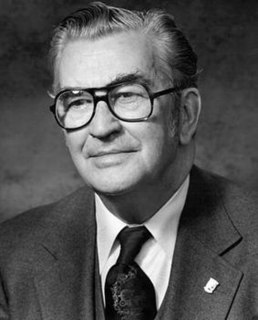
John Angus MacLean was a politician and farmer in Prince Edward Island, Canada.

The premier of Prince Edward Island is the first minister and head of government for the Canadian province of Prince Edward Island.
Henry Way Kendall, American physicist and mountaineer, Nobel Prize laureate (b. 1926) deaths

Henry Way Kendall was an American particle physicist who won the Nobel Prize in Physics in 1990 jointly with Jerome Isaac Friedman and Richard E. Taylor "for their pioneering investigations concerning deep inelastic scattering of electrons on protons and bound neutrons, which have been of essential importance for the development of the quark model in particle physics."

The Nobel Prize in Physics is a yearly award given by the Royal Swedish Academy of Sciences for those who have made the most outstanding contributions for humankind in the field of physics. It is one of the five Nobel Prizes established by the will of Alfred Nobel in 1895 and awarded since 1901, the others being the Nobel Prize in Chemistry, Nobel Prize in Literature, Nobel Peace Prize, and Nobel Prize in Physiology or Medicine. Physics is traditionally the first award presented in the Nobel Prize ceremony.
George Russell, English racing driver births

George William Russell is a British racing driver currently competing in Formula One for Mercedes.
Martha Gellhorn, American journalist and author (b. 1908) deaths
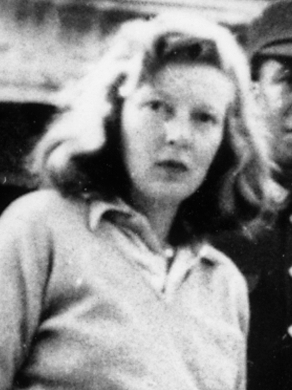
Martha Ellis Gellhorn was an American novelist, travel writer, and journalist who is considered one of the great war correspondents of the 20th century.
Derrick Jones Jr., American basketball player births

Derrick Labrent Jones Jr. is an American professional basketball player for the Chicago Bulls of the National Basketball Association (NBA). He played college basketball for the UNLV Runnin' Rebels.
McLean Stevenson, American actor (b. 1929) deaths

Edgar "Mac" McLean Stevenson Jr. was an American actor and comedian. He is best known for his role as Lieutenant Colonel Henry Blake in the television series M*A*S*H, which earned him a Golden Globe Award in 1974. Stevenson also appeared on a number of television series, notably The Tonight Show Starring Johnny Carson and The Doris Day Show.
Megan Thee Stallion, American rapper births

Megan Jovon Ruth Pete, known professionally as Megan Thee Stallion, is an American rapper. Originally from Houston, Texas, she first garnered attention when videos of her freestyling became popular on social media platforms such as Instagram. Megan Thee Stallion signed to 300 Entertainment in 2018, where she released the mixtape Fever (2019) and the extended play Suga (2020), both of which reached the top ten of the Billboard 200.
Sodapoppin, American Twitch streamer and Internet personality births

Thomas Chance Morris, better known as Sodapoppin, is an American Twitch streamer and YouTuber. He has one of the largest followings on Twitch, with over 8.7 million followers and over 398.3 million views as of August 15, 2022; he also has over 1.11 million subscribers and over 444.5 million views on YouTube. According to Social Blade, Morris sits at the number 10 spot for the most followers on Twitch; he also ranks number 15 for the largest total number of views on the platform. He is a co-owner of and content creator for gaming organization One True King.
Ravi, South Korean rapper births

Kim Won-sik, better known by his stage name Ravi (Korean: 라비), is a South Korean rapper, singer, songwriter, record producer, and founder of the record label Groovl1n and The L1VE. He is a member of the South Korean boy group VIXX and its sub-unit VIXX LR. He debuted as a solo artist on January 9, 2017, with the release of his debut mini album R.eal1ze.
María Elena Moyano, Peruvian activist (b. 1960) deaths

María Elena Moyano Delgado was an Afro-Peruvian community organizer and feminist who was assassinated by the Shining Path. She grew up in poverty in the Villa El Salvador pueblo joven, then became involved in local activism. She was twice president of FEPOMUVES and at the time of her death was deputy mayor. Her funeral was attended by 300,000 people and resulted in a downturn in support for the Shining Path. She received the Peruvian Order of Merit posthumously.
William Schuman, American composer and academic (b. 1910) deaths

William Howard Schuman was an American composer and arts administrator.
Ángel Sepúlveda, Mexican footballer births
Ángel Baltazar Sepúlveda Sánchez, also known as El Cuate, is a Mexican professional footballer who plays as a forward for Liga MX club Querétaro.
Tim Mannah, Australian-born Lebanese rugby league player births

Tim Mannah is a former Lebanon international rugby league footballer who played as a prop for the Parramatta Eels in the NRL.
Rui Patrício, Portuguese footballer births

Rui Pedro dos Santos Patrício is a Portuguese professional footballer who plays as a goalkeeper for Serie A team Roma and the Portugal national team. He is often nicknamed "São Patrício" for his saves for club and country.
Papu Gómez, Argentine footballer births

Alejandro Darío Gómez Villaverde, known as Papu Gómez, is an Argentine professional footballer who plays as a forward, winger or attacking midfielder for Spanish club Sevilla and the Argentina national team.He will continue his career at malaysia football club JDT at new season Malaysia Super League 2023.
Richard Feynman, American physicist and academic, Nobel Prize laureate (b. 1918) deaths
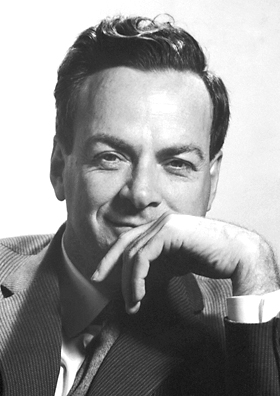
Richard Phillips Feynman was an American theoretical physicist, known for his work in the path integral formulation of quantum mechanics, the theory of quantum electrodynamics, the physics of the superfluidity of supercooled liquid helium, as well as his work in particle physics for which he proposed the parton model. For contributions to the development of quantum electrodynamics, Feynman received the Nobel Prize in Physics in 1965 jointly with Julian Schwinger and Shin'ichirō Tomonaga.

The Nobel Prize in Physics is a yearly award given by the Royal Swedish Academy of Sciences for those who have made the most outstanding contributions for humankind in the field of physics. It is one of the five Nobel Prizes established by the will of Alfred Nobel in 1895 and awarded since 1901, the others being the Nobel Prize in Chemistry, Nobel Prize in Literature, Nobel Peace Prize, and Nobel Prize in Physiology or Medicine. Physics is traditionally the first award presented in the Nobel Prize ceremony.
Jarrod Sammut, Australian rugby league player births

Jarrod Sammut is a Maltese international rugby league footballer who plays as a stand-off or scrum-half for the Barrow Raiders in the BetFred Championship.
Valeri Bojinov, Bulgarian footballer births

Valeri Emilov Bojinov is a Bulgarian professional footballer who plays as a striker.
Johnny Cueto, Dominican baseball player births

Johnny Cueto Ortiz is a Dominican professional baseball pitcher who is a free agent. He has played in Major League Baseball (MLB) for the Cincinnati Reds, Kansas City Royals, San Francisco Giants and Chicago White Sox.
Laura Sallés, Andorran judoka births
Laura Sallés López is a judoka from Andorra. She has participated in several World Championships and has won several medals at the Games of Small States. Sallés participated in the 2016 Summer Olympics, where she was the flag bearer for her country. In the Women's 63 kg she lost to Katharina Haecker in the first round.
Serkan Kırıntılı, Turkish footballer births

Serkan Kırıntılı is a Turkish professional footballer who plays as a goalkeeper for Turkish Süper Lig club Ümraniyespor.
Ethel Merman, American actress and singer (b. 1908) deaths

Ethel Merman was an American actress and singer, known for her distinctive, powerful voice, and for leading roles in musical theatre. She has been called "the undisputed First Lady of the musical comedy stage". Over her distinguished career in theater she became known for her performances in shows such as Anything Goes, Annie Get Your Gun, Gypsy, and Hello, Dolly!
Don Cowie, Scottish footballer births

Don McCulloch Cowie is a Scottish professional football coach and former player. Cowie played as a midfielder for Inverness Caledonian Thistle, Watford, Cardiff City, Wigan Athletic, Heart of Midlothian and Ross County. Cowie made ten international appearances for the Scotland national football team between 2009 and 2012.
David Degen, Swiss footballer births

David Degen is a former Swiss footballer who last played for FC Basel, mostly as a right midfielder, in the Swiss Super League. He is half Dutch as his mother is from the Netherlands. His twin brother Philipp Degen was also a professional football player.
Philipp Degen, Swiss footballer births

Philipp Degen is a retired Swiss professional footballer. Degen was usually a right back who could also play at left back or on the right wing. Degen reached the last 16 in the 2006 World Cup with Switzerland and was selected again for Euro 2008 but did not play any games.
Russell Martin, Canadian baseball player births

Russell Nathan Coltrane Jeanson Martin Jr. is a Canadian former professional baseball catcher. He has played in Major League Baseball (MLB) for the Los Angeles Dodgers, New York Yankees, Pittsburgh Pirates, and Toronto Blue Jays, and is a four-time MLB All-Star. In 2007, Martin won the Gold Glove Award and Silver Slugger Award.
Shameka Christon, American basketball player births

Shameka Delynn Christon is an American retired professional women's basketball player who most recently played with the Phoenix Mercury in the WNBA.
James Yap, Filipino basketball player births

James Carlos Agravante Yap Sr. is a Filipino professional basketball player for the Rain or Shine Elasto Painters of the Philippine Basketball Association (PBA). Known by his nickname Big Game James, he had played for the Star Hotshots for twelve seasons winning seven PBA championships before being traded on 2016. He is also a 16-time PBA All-Star through 2004 to 2019, all as Starter.
Heurelho Gomes, Brazilian international footballer births

Heurelho da Silva Gomes is a Brazilian former professional footballer who played as a goalkeeper.
Matt Hoopes, American singer-songwriter and guitarist births

Matthew "Matt" Ryan Hoopes is an American musician, guitarist, singer, and songwriter, most known as the lead guitarist of Relient K. Hoopes has played lead guitar and provided backing vocals for Relient K since 1998 and is one of two constant members of the band, the other being lead vocalist Matt Thiessen.
Rita Jeptoo, Kenyan runner births

Rita Jeptoo is a Kenyan marathon runner. Originally a winner of the Boston Marathon three times, including setting the then course record at 2:18:57 in 2014, she had also won marathons in Chicago, Stockholm, and Milan, as well as having represented Kenya in the event at the 2007 World Championships in Athletics. She was the bronze medalist at the 2006 IAAF World Road Running Championships.
Diego Martínez, Mexican footballer births
Diego Alfonso Martínez Balderas is a Mexican former professional footballer who played as a right-back.
Vivek Shraya, Canadian singer and songwriter births

Vivek Shraya is a Canadian musician, writer, and visual artist. She currently lives in Calgary, Alberta, where she is an assistant professor in the creative writing program at the University of Calgary. As a trans woman of colour, Shraya often incorporates her identity in her music, writing, visual art, theatrical work, and films. She is a seven-time Lambda Literary Award finalist, and considered a Great Canadian Filmmaker of the Future by CBC Arts.
Mike Bloomfield, American guitarist and songwriter (b. 1943) deaths

Michael Bernard Bloomfield was an American guitarist and composer, born in Chicago, Illinois, who became one of the first popular music superstars of the 1960s to earn his reputation almost entirely on his instrumental prowess, as he rarely sang before 1969. Respected for his guitar playing, Bloomfield knew and played with many of Chicago's blues musicians before achieving his own fame and was instrumental in popularizing blues music in the mid-1960s. In 1965, he played on Bob Dylan's Highway 61 Revisited, including the single "Like a Rolling Stone", and performed with Dylan at that year's Newport Folk Festival.
Karl Richter, German organist and conductor (b. 1926) deaths
Karl Richter was a German conductor, choirmaster, organist and harpsichordist.
Conor Oberst, American singer-songwriter births
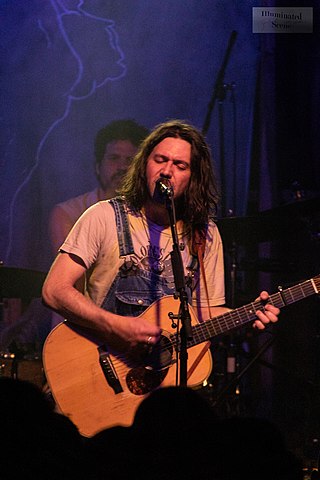
Conor Mullen Oberst is an American singer-songwriter best known for his work in Bright Eyes. He has also played in several other bands, including Desaparecidos, the Faint, Commander Venus, Park Ave., Conor Oberst and the Mystic Valley Band, Monsters of Folk, and Better Oblivion Community Center. Oberst was named the Best Songwriter of 2008 by Rolling Stone magazine.
Hamish Marshall, New Zealand cricketer births
Hamish John Hamilton Marshall is a former New Zealand cricketer, who played all formats of the game for New Zealand. He is the identical twin brother of James Marshall. Hamish and James became the second pair of twins to play Test cricket, and are the first identical pair.
James Marshall, New Zealand cricketer births
James Andrew Hamilton Marshall is a former New Zealand cricketer. He is the identical twin brother of Hamish Marshall.
Brandon Boyd, American singer-songwriter births

Brandon Charles Boyd is an American singer, songwriter, musician, author, executive producer and visual artist. He is best known as the lead vocalist of the American rock band Incubus.
Óscar Freire, Spanish cyclist births

Óscar Freire Gómez is a former Spanish professional road bicycle racer. He was one of the top sprinters in road bicycle racing, having won the world championship three times, equalling Alfredo Binda, Rik Van Steenbergen, Eddy Merckx and Peter Sagan. In the later years of his career, he became more of a classics rider. He has won the cycling monument Milan–San Remo three times, four stages in the Tour de France and seven stages of the Vuelta a España, throughout a successful career.
Serge Aubin, Canadian ice hockey player and coach births

Serge D. Aubin is a Canadian ice hockey coach and a former professional ice hockey centre who played 374 games in the National Hockey League for the Colorado Avalanche, Columbus Blue Jackets and Atlanta Thrashers. He is currently serving as head coach of Eisbären Berlin in the German DEL.
Annemarie Kramer, Dutch sprinter births

Anna Maria 'Annemarie' Kramer is a former Dutch sprinter. She started with athletics at the age of twelve and soon found out that she had a special talent for the sprinting events. She was a five-time Dutch sprinting champion.
Brendon Small, American animator, producer, screenwriter, and actor births

Brendon Small is an American actor, stand-up comedian, animator, writer, director, producer, and musician known for co-creating the animated series Home Movies and Metalocalypse. He also writes the music, and is the main performer for, the virtual melodic death metal band Dethklok, which began as the subject of Metalocalypse but has taken on a life of its own, with four albums and an occasional live touring band, headed by Small. Small has also released two albums under his own name, in a similar musical style to Dethklok.
Miranda July, American actress, director, and screenwriter births

Miranda July is an American film director, screenwriter, singer, actress and author. Her body of work includes film, fiction, monologue, digital presentations and live performance art.
Ugueth Urbina, Venezuelan baseball player births
Ugueth Urtaín Urbina Villarreal is a Venezuelan former relief pitcher in Major League Baseball. A two-time All-Star, Urbina led the National League in saves with 41 in the 1999 season and helped the Florida Marlins win the 2003 World Series. He is the only player in major league history with the initials "UU" or "UUU". His baseball career was cut short after the 2005 season, as he was arrested by Venezuelan authorities for attempted murder, for which he served seven years in prison.
Alexander Wurz, Austrian racing driver and businessman births

Alexander Georg Wurz is an Austrian former professional racing driver, driver training expert and businessman. He competed in Formula One from 1997 until 2007, and is also a two-time winner of the Le Mans 24 Hours.
Kurt Atterberg, Swedish composer and engineer (b. 1887) deaths

Kurt Magnus Atterberg was a Swedish composer and engineer. He is best known for his symphonies, operas, and ballets.
Kateřina Neumannová, Czech skier births

Kateřina Neumannová is a Czech retired cross-country skier. She won an Olympic gold medal in the 2006 Winter Olympics, in the 30 km freestyle event. She is one of five cross country skiers to have competed at six Olympics.
Amy van Dyken, American swimmer births

Amy Deloris Van Dyken-Rouen is an American former competitive swimmer, Olympic champion, former world record-holder, and national radio sports talk show co-host. She won six Olympic gold medals in her career, four of which she won at the 1996 Summer Olympics, making her the first American woman to accomplish such a feat and the most successful athlete at the 1996 Summer Olympics. She won gold in the 50-meter freestyle, 100-meter butterfly, 4×100-meter freestyle relay, and 4×100-meter medley relay.
Wally Cox, American actor (b. 1924) deaths
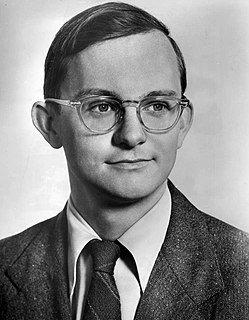
Wallace Maynard Cox was an American actor. He began his career as a standup comedian and then became the title character of the popular early U.S. television series Mister Peepers from 1952 to 1955. He also appeared as a character actor in over 20 films and dozens of television episodes. Cox was the voice of the animated canine superhero Underdog of the TV show of the same name.
Jaromír Jágr, Czech ice hockey player births

Jaromír Jágr is a Czech professional ice hockey right winger for and the owner of Rytíři Kladno of the Czech Extraliga (ELH). He previously played in the National Hockey League (NHL) for the Pittsburgh Penguins, Washington Capitals, New York Rangers, Philadelphia Flyers, Dallas Stars, Boston Bruins, New Jersey Devils, Florida Panthers and Calgary Flames, serving as captain of the Penguins and the Rangers, between 1990 and 2018. After leaving the Rangers in 2008, he played three seasons in the Kontinental Hockey League (KHL) with Avangard Omsk. He returned to the NHL in 2011 with the Flyers and remained in the league for seven more years before being assigned by the Flames in 2018 to HC Kladno. Having played in 34 professional seasons and over 2,000 professional games, Jágr has had one of the longest careers in professional ice hockey history. He is the most productive European player who has ever played in the NHL and is widely regarded as one of the greatest players of all time.
Alex Borstein, American actress, voice artist, producer, and screenwriter births

Alexandrea Borstein is an American actress, comedian, writer and producer. Borstein voices Lois Griffin on the animated comedy television series Family Guy (1999–present), and won a Primetime Emmy Award for the role. She gained acclaim for starring as Susie Myerson in the comedy-drama series The Marvelous Mrs. Maisel (2017–present), which has earned her two Primetime Emmy Awards.
Renee O'Connor, American actress, director, and producer births

Evelyn Renee O'Connor is an American actress, producer, and director, known for the role of Gabrielle on the television series Xena: Warrior Princess.
Shepard Fairey, American artist and activist births

Frank Shepard Fairey is an American contemporary artist, activist and founder of OBEY Clothing who emerged from the skateboarding scene. In 1989 he designed the "Andre the Giant Has a Posse" (...OBEY...) sticker campaign while attending the Rhode Island School of Design (RISD).
Hugh Dowding, 1st Baron Dowding, Scottish air marshal (b. 1882) deaths

Air Chief Marshal Hugh Caswall Tremenheere Dowding, 1st Baron Dowding, was an officer in the Royal Air Force. He was Air Officer Commanding RAF Fighter Command during the Battle of Britain and is generally credited with playing a crucial role in Britain's defence, and hence, the defeat of Adolf Hitler's plan to invade Britain.
Birdman, American rapper and producer births

Bryan Christopher Williams, better known by his stage name Birdman, is an American rapper and record executive. He is the co-founder and public face of Cash Money Records which he founded with his older brother Ronald "Slim" Williams in 1992. Birdman released his debut album in 2002, and has gone on to release four solo studio albums in total. Aside from his solo career, he is also a member of the hip-hop duo Big Tymers, along with producer Mannie Fresh.
Jane Child, Canadian singer-songwriter and producer births
Jane Richmond Hyslop, known professionally as Jane Child, is a Canadian singer, songwriter and record-producer best known for her hit single "Don't Wanna Fall in Love". She is also known for her unusual fashion style, which included a hairstyle made of spikes and ankle-length braids and a nose chain piercing.
Syed Kamall, English academic and politician births

Syed Salah Kamall, Baron Kamall is a British politician and academic, who from September to October 2022 served in HM Government as Parliamentary Under-Secretary of State at the Department for Digital, Culture, Media and Sport. He was previously Parliamentary Under-Secretary of State for Innovation at the Department of Health and Social Care (2021–22).
Craig Simpson, Canadian ice hockey player and sportscaster births

Craig Andrew Simpson is a Canadian former professional ice hockey winger who played 10 seasons in the National Hockey League for the Pittsburgh Penguins, Edmonton Oilers and the Buffalo Sabres. He is currently a broadcaster, involved in Sportsnet NHL game broadcasts as a colour commentator, including Hockey Night in Canada telecasts.
Antonio Moreno, Spanish-American actor and director (b. 1887) deaths

Antonio Garrido Monteagudo, better known as Antonio Moreno or Tony Moreno, was a Spanish-born American actor and film director of the silent film era and through the 1950s.
Gerard Antoni Ciołek, Polish architect and historian (b. 1909) deaths

Gerard Ciołek was a Polish architect, as well as a leading historian of parks and gardens.
Camilo Torres Restrepo, Colombian priest and theologian (b. 1929) deaths

Camilo Torres Restrepo was a Colombian Marxist–Leninist, Roman Catholic priest, a proponent of liberation theology, and a member of the National Liberation Army (ELN) guerrilla organization. During his life, he tried to reconcile revolutionary Marxism and Catholicism. His "social activism and willingness to work with Marxists troubled some.
Craig Matthews, South African cricketer births
Craig Russell Matthews (born 15 February 1965 is a former South African cricketer who played in 18 Test matches and 56 One Day Internationals between 1991 and 1997.
Nat King Cole, American singer and pianist (b. 1919) deaths
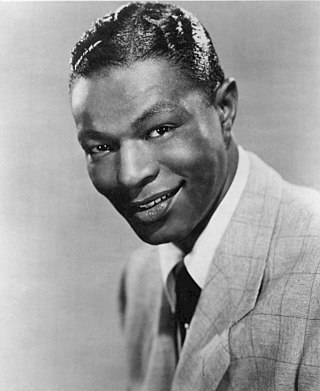
Nathaniel Adams Coles, known professionally as Nat King Cole, was an American singer, jazz pianist, and actor. Cole's music career began after he dropped out of school at the age of 15, and continued for the remainder of his life. He found great popular success and recorded over 100 songs that became hits on the pop charts. His trio was the model for small jazz ensembles that followed. Cole also acted in films and on television and performed on Broadway. He was the first African-American man to host an American television series. He is the father of singer Natalie Cole (1950–2015).
Chris Farley, American comedian and actor (d. 1997) births
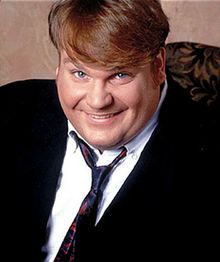
Christopher Crosby Farley was an American actor and comedian. Farley was known for his loud, energetic comedic style, and was a member of Chicago's Second City Theatre and later a cast member of the NBC sketch comedy show Saturday Night Live for five seasons from 1990 to 1995. He later went on to pursue a film career, appearing in films such as Airheads, Tommy Boy, Black Sheep, Beverly Hills Ninja, and Almost Heroes.
Leland D. Melvin, American engineer and astronaut births

Leland Devon Melvin is an American engineer and a retired NASA astronaut. He served on board the Space Shuttle Atlantis as a mission specialist on STS-122, and as mission specialist 1 on STS-129. Melvin was named the NASA Associate Administrator for Education in October 2010.
Mark Price, American basketball player and coach births

William Mark Price is an American former basketball player and coach. He was most recently the head coach of the Charlotte 49ers. As a player, he played for 12 seasons in the National Basketball Association (NBA), from 1986 to 1998. Spending the majority of his career with the Cleveland Cavaliers, his last three years consisted of one season each with the Washington Bullets, Golden State Warriors, and Orlando Magic.
Milo Đukanović, Montenegrin politician, 29th Prime Minister of Montenegro births

Milo Đukanović is a Montenegrin politician serving as the President of Montenegro since 2018, previously serving in the role from 1998 to 2003. He also served as the Prime Minister of Montenegro and is the long-term president of the Democratic Party of Socialists of Montenegro, originally the Montenegrin branch of the League of Communists of Yugoslavia, which governed Montenegro alone or in a coalition from the introduction of multi-party politics in the early 1990s until its defeat in the 2020 parliamentary election. He is one of the longest ruling politicians in Europe who holds key positions in the country for over 32 years.
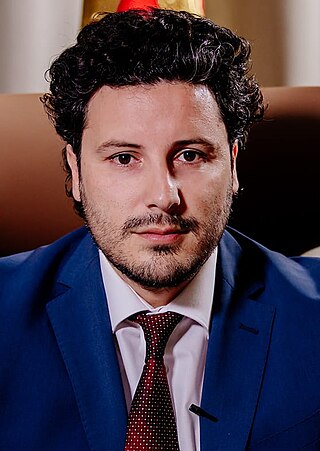
The prime minister of Montenegro, officially the president of the Government of Montenegro, is the head of the government of Montenegro. The role of the prime minister is to direct the work of the government, and to submit to the Parliament the government's program, which includes a list of proposed ministers. The resignation of the prime minister would cause the dissolution of his government.
Laurence Owen, American figure skater (b. 1944) deaths
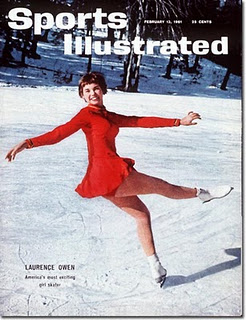
Laurence Rochon "Laurie" Owen was a Hall of Fame American figure skater. She was the 1961 U.S. National Champion and represented the United States at the 1960 Winter Olympics, where she placed 6th. She was the daughter of Maribel Vinson and Guy Owen and the sister of Maribel Owen. Owen died, along with her mother, sister and the entire United States Figure Skating team, in the crash of Sabena Flight 548 en route to the 1961 World Figure Skating Championships.
Darrell Green, American football player births

Darrell Ray Green is an American former professional football player who was a cornerback in the National Football League (NFL) for the Washington Redskins from 1983 to 2002. He is widely considered to be one of the greatest cornerbacks to have ever played in the NFL. Green was inducted into the Pro Football Hall of Fame in 2008.
Jock Hobbs, New Zealand rugby player (d. 2012) births
Michael James Bowie Hobbs, generally known as Jock Hobbs, was a New Zealand rugby union player and administrator. A flanker, he played for Canterbury and won 21 caps for the New Zealand national team, the All Blacks, between 1983 and 1986, with four tests as captain.
Ali Campbell, English singer-songwriter and guitarist births
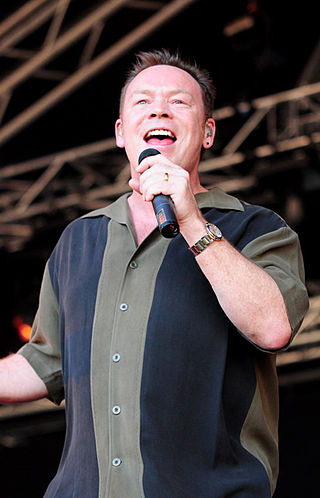
Alistair Ian Campbell is an English singer and songwriter who was lead singer of the British reggae band UB40. As part of UB40, Campbell sold over 70 million records worldwide and toured the globe for 30 years. In 2008, Campbell left UB40 due to a dispute with band management and embarked on a solo career. In 2012, Campbell was announced as one of the three judges on the panel of the TV show New Zealand's Got Talent. In August 2014, Campbell announced he had reunited with former UB40 band mates Astro and Mickey to record a new album, Silhouette, released on 6 October 2014.
Brian Propp, Canadian ice hockey player and sportscaster births
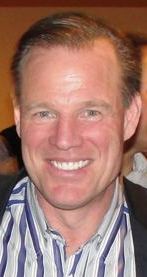
Brian Phillip Propp is a Canadian former professional Ice hockey left winger who played 15 seasons in the National Hockey League (NHL) from 1979 until 1994.
Hugo Savinovich, Ecuadorian wrestler and sportscaster births

Hugo Savinovich is an Ecuadorian sports commentator and retired professional wrestler and professional wrestling manager. He is currently signed to Lucha Libre AAA as a Spanish commentator. He is best known as part of the Spanish language commentary team for the professional wrestling promotion WWE from 1994 to 2011.
Owen Willans Richardson, English physicist and academic, Nobel Prize laureate (b. 1879) deaths

Sir Owen Willans Richardson, FRS was a British physicist who won the Nobel Prize in Physics in 1928 for his work on thermionic emission, which led to Richardson's law.

The Nobel Prize in Physics is a yearly award given by the Royal Swedish Academy of Sciences for those who have made the most outstanding contributions for humankind in the field of physics. It is one of the five Nobel Prizes established by the will of Alfred Nobel in 1895 and awarded since 1901, the others being the Nobel Prize in Chemistry, Nobel Prize in Literature, Nobel Peace Prize, and Nobel Prize in Physiology or Medicine. Physics is traditionally the first award presented in the Nobel Prize ceremony.
Chrystine Brouillet, Canadian author births

Chrystine Brouillet, is a Canadian novelist.
Tony McKegney, Canadian ice hockey player births

Anthony Syiid McKegney is a Canadian former professional ice hockey player who played 13 seasons in the National Hockey League from 1978–79 until 1990–91. He is the first black player in NHL history to score 40 goals in a season.
Matthew Ward, American singer-songwriter births

Matthew Ward is one of the pioneers of the Jesus music genre, later to be called contemporary Christian music. He is best known as a member of the trio 2nd Chapter of Acts, in which he sang and performed with his sisters Annie Herring and Nellie (Ward) Greisen. During his musical career with the 2nd Chapter of Acts from 1973 to 1988, he also recorded solo albums.
Desmond Haynes, Barbadian cricketer and coach births

Desmond Leo Haynes is a former Barbadian cricketer and cricket coach who played for the West Indies cricket team between 1978 and 1994.
Ann Westin, Swedish comedian births

Ann Westin, is a Swedish comedian. She previously worked as a psychiatric nurse and nurse. She made her debut as a comedian at Norra brunn in 1996. She was awarded Bubbenpriset in 2001. She has participated in several television shows such as Stockholm Live, and Cirkus Möller. In 2014 the toured with her solo performance Jobbit.
Vincent de Moro-Giafferi, French lawyer and politician (b. 1878) deaths

Vincent de Moro-Giafferi was a French criminal attorney.
Janice Dickinson, American model, agent, and author births

Janice Doreen Dickinson is an American model, television personality, and businesswoman. Initially notable as a model, Dickinson has been disputably described by herself as the first supermodel. One of the most successful models of the 1970s and 1980s, she also served as a judge on four cycles of America's Next Top Model (2003–2006). Dickinson opened a modeling agency in 2005 which was documented on the reality series The Janice Dickinson Modeling Agency (2006–2008).
Matt Groening, American animator, producer, and screenwriter births
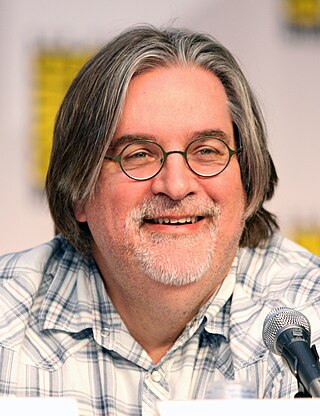
Matthew Abram Groening is an American cartoonist, writer, producer, and animator. He is the creator of the comic strip Life in Hell (1977–2012) and the television series The Simpsons (1989–present), Futurama, and Disenchantment (2018–present). The Simpsons is the longest-running U.S. primetime-television series in history and the longest-running U.S. animated series and sitcom.
Ernie Howe, English footballer and manager births
Ernie Howe is an English football manager and former player who is currently no longer managing a team after he mutually parted company with Sutton United on 30 March 2008, having failed to pull them out of the Conference South relegation zone. He was Basingstoke Town's manager for 13 years until 2006, winning the Hampshire Senior Cup and promotion during his tenure.
Lynn Whitfield, American actress and producer births

Lynn Whitfield is an American actress. She began her acting career in television and theatre before progressing to supporting roles in film. She won a Primetime Emmy Award for Outstanding Lead Actress in a Limited Series or Movie and received a Golden Globe Award nomination for her breakout performance as Josephine Baker in the HBO biographical film The Josephine Baker Story (1991).
Tomislav Nikolić, Serbian politician, 4th President of Serbia births

Tomislav Nikolić is a Serbian retired politician who served as the president of Serbia from 2012 to 2017. A former member of the far-right Serbian Radical Party (SRS), he disassociated himself with the party in 2008 and formed the Serbian Progressive Party (SNS) which he led until 2012.
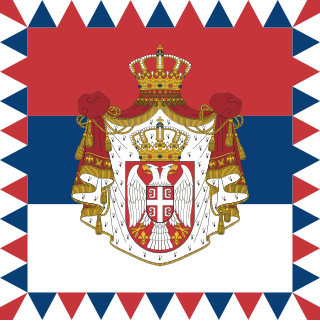
The president of Serbia, officially styled as the President of the Republic is the head of state of Serbia.
Nikolai Sorokin, Russian actor and director (d. 2013) births
Nikolai Evgenievich Sorokin was a Russian theatre and film actor, theatre director, educator, and People's Artist of Russia (1999). He was artistic director of the Rostov-on-Don academic drama theatre of a name Maxim Gorky and a deputy of the State Duma of the 3rd convocation.
Markku Alén, Finnish racing driver births

Markku Allan Alén is a Finnish former rally and race car driver. He drove for Fiat, Lancia, Subaru and Toyota in the World Rally Championship, and held the record for most stage wins (801) in the series, until Sébastien Loeb overtook it at the 2011 Rally Catalunya. Alén's phrase "now maximum attack" became well-known.
Melissa Manchester, American singer-songwriter and actress births

Melissa Manchester is an American singer, songwriter and actress. Since the 1970s, her songs have been carried by adult contemporary radio stations. She has also appeared on television, in films, and on stage.
Jane Seymour, English-American actress, producer, and jewelry designer births
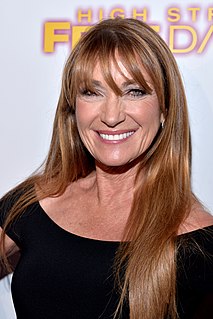
Jane Seymour is an English actress. After making her screen debut as an uncredited extra in the 1969 musical comedy Oh! What a Lovely War, Seymour transitioned to leading roles in film and television, including a leading role in the television series The Onedin Line (1972–1973) and the role of psychic Bond girl Solitaire in the James Bond film Live and Let Die (1973).
Art Spiegelman, Swedish-American cartoonist and critic births

Art Spiegelman is an American cartoonist, editor, and comics advocate best known for his graphic novel Maus. His work as co-editor on the comics magazines Arcade and Raw has been influential, and from 1992 he spent a decade as contributing artist for The New Yorker. He is married to designer and editor Françoise Mouly, and is the father of writer Nadja Spiegelman. In September 2022, the National Book Foundation announced that he would receive the Medal for Distinguished Contribution to American Letters.
John Adams, American composer births
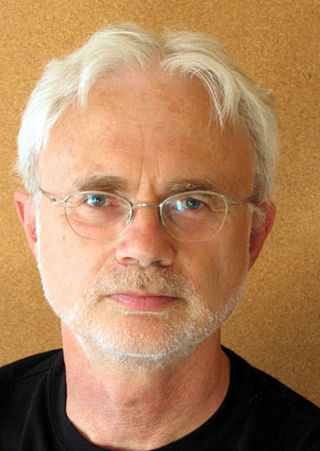
John Coolidge Adams is an American composer and conductor whose music is rooted in minimalism. Among the most regularly performed composers of contemporary classical music, he is particularly noted for his operas, which are often centered around recent historical events. Apart from opera, his oeuvre includes orchestral, concertante, vocal, choral, chamber, electroacoustic and piano music.
Marisa Berenson, American model and actress births

Vittoria Marisa Schiaparelli Berenson is an American actress and model. She appeared on the front covers of Vogue and Time, and won the National Board of Review Award for Best Supporting Actress for her role as Natalia Landauer in the 1972 film Cabaret. The role also earned her Golden Globe and BAFTA Award nominations. Her other film appearances include Death in Venice (1971), Barry Lyndon (1975), S.O.B. (1981) and I Am Love (2009).
Clare Short, English civil servant and politician, Secretary of State for International Development births
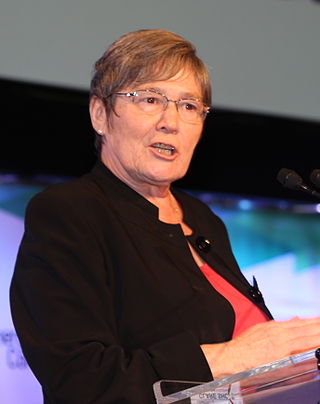
Clare Short is a British politician who served as Secretary of State for International Development under Prime Minister Tony Blair from 1997 to 2003.

The Minister of State for Development and Africa, formerly the Minister of State for Development and the Secretary of State for International Development, is a senior minister of the Crown within the Government of the United Kingdom.
Jack Dann, American-Australian author and poet births

Jack Dann is an American writer best known for his science fiction, an editor and a writing teacher, who has lived in Australia since 1994. He has published over seventy books, in the majority of cases as editor or co-editor of story anthologies in the science fiction, fantasy and horror genres. He has published nine novels, numerous shorter works of fiction, essays and poetry and his books have been translated into thirteen languages. His work, which includes fiction in the science fiction, fantasy, horror, magical realism and historical and alternative history genres, has been compared to Jorge Luis Borges, Roald Dahl, Lewis Carroll, J. G. Ballard, and Philip K. Dick.
Douglas Hofstadter, American author and academic births

Douglas Richard Hofstadter is an American scholar of cognitive science, physics, and comparative literature whose research includes concepts such as the sense of self in relation to the external world, consciousness, analogy-making, artistic creation, literary translation, and discovery in mathematics and physics. His 1979 book Gödel, Escher, Bach: An Eternal Golden Braid won both the Pulitzer Prize for general nonfiction and a National Book Award for Science. His 2007 book I Am a Strange Loop won the Los Angeles Times Book Prize for Science and Technology.
Florinda Bolkan, Brazilian actress births

Florinda Bolkan is a retired Brazilian actress and model.
Brian Holland, American songwriter and producer births
Brian Holland is an American songwriter and record producer, best known as a member of Holland–Dozier–Holland, the songwriting and production team that was responsible for much of the Motown sound, and numerous hit records by artists such as Martha and the Vandellas, The Supremes, The Four Tops, and The Isley Brothers. Holland, along with Lamont Dozier, served as the team's musical arranger and producer. He has written or co-written 145 hits in US and 78 in the UK.
İsmail Cem İpekçi, Turkish journalist and politician, 45th Turkish Minister of Foreign Affairs (d. 2007) births

İsmail Cem was a Turkish centre-leftist politician, intellectual, writer, author and journalist who served as the Minister of Culture of Turkey from July 7 to October 26, 1995, and Minister of Foreign Affairs of Turkey from June 30, 1997 to July 11, 2002.

This is a list of Ministers of Foreign Affairs of Turkey.
Hamzah Haz, Indonesian journalist and politician, 9th Vice President of Indonesia births

Hamzah Haz is an Indonesian politician who served as the ninth vice president of Indonesia from 2001 to 2004. He also chaired the United Development Party from 1998 to 2007.
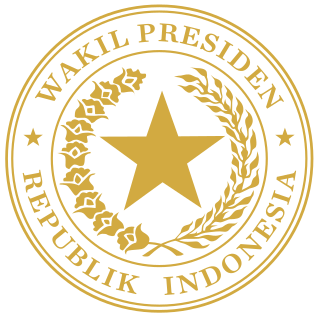
The vice president of the Republic of Indonesia is second-highest officer in the executive branch of the Indonesian government, after the president, and ranks first in the presidential line of succession. Since 2004, the president and vice president are directly elected to a five-year term.
Kuzma Petrov-Vodkin, Russian painter and author (b. 1878) deaths

Kuzma Sergeevich Petrov-Vodkin, was a Russian and Soviet painter. His early iconographic work used special creative effects based on the curve of the globe, but its images were considered blasphemous by the Russian Orthodox Church. However he went on to become the first president of the Leningrad Union of Soviet Artists. His autobiographical writings attracted much praise, and have enjoyed a later revival.
Gregory Mcdonald, American author (d. 2008) births
Gregory Mcdonald was an American mystery writer whose most famous character is the comedy investigative reporter Irwin Maurice "Fletch" Fletcher.
Coen Moulijn, Dutch footballer (d. 2011) births
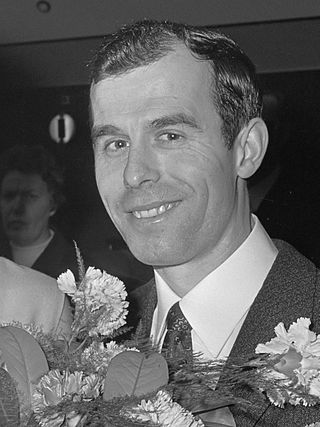
Coenraadt "Coen" Moulijn was a Dutch footballer who played for Feyenoord from 1955 to 1972 and was part of their European Cup victory in 1970.
Susan Brownmiller, American journalist and author births
Susan Brownmiller is an American journalist, author and feminist activist best known for her 1975 book Against Our Will: Men, Women, and Rape, which was selected by The New York Public Library as one of 100 most important books of the 20th century.
Roger B. Chaffee, American lieutenant, engineer, and astronaut (d. 1967) births

Roger Bruce Chaffee was an American naval officer, aviator and aeronautical engineer who was a NASA astronaut in the Apollo program.
Gene Hickerson, American football player (d. 2008) births

Robert Gene Hickerson was an American Football offensive guard who played for the Cleveland Browns of the National Football League (NFL) in a fifteen-year career from 1958 to 1960 and 1962 to 1973. Hickerson was a six-time Pro Bowler from 1965 to 1970. He was inducted to the Pro Football Hall of Fame on August 4, 2007.
Jimmy Bloomfield, English footballer and manager (d. 1983) births
James Henry Bloomfield was an English football player and manager. He made nearly 500 appearances in the Football League, including more than 300 in the First Division with Arsenal, Birmingham City and West Ham United. He was capped by England at under-23 level. He then spent 13 years in management with Orient and Leicester City.
Graham Kennedy, Australian television host and actor (d. 2005) births

Graham Cyril Kennedy AO was an Australian entertainer, comedian and variety performer, as well as a personality and star of radio, theatre, television and film. He often performed in the style of vaudevillian and radio comedy star Roy Rene and was often called "Gra Gra". Honoured as an officer of the Order of Australia, he was a six-time recipient of the Gold Logie, including the Logie Hall of Fame award, and won the Star of the Year Award in 1959. He is the most awarded star of Australian television. He was often referred to as "The King" or the "King of Australian television". He was also known for his collaborations with Australian entertainer Bert Newton and American-born television personality Don Lane.
Niklaus Wirth, Swiss computer scientist, created the Pascal programming language births

Niklaus Emil Wirth is a Swiss computer scientist. He has designed several programming languages, including Pascal, and pioneered several classic topics in software engineering. In 1984, he won the Turing Award, generally recognized as the highest distinction in computer science, for developing a sequence of innovative computer languages.

Pascal is an imperative and procedural programming language, designed by Niklaus Wirth as a small, efficient language intended to encourage good programming practices using structured programming and data structuring. It is named in honour of the French mathematician, philosopher and physicist Blaise Pascal.
Abe Woodson, American football player and minister (d. 2014) births
Abraham Benjamin Woodson was an American football cornerback and kick returner who played nine seasons in the National Football League, mainly with the San Francisco 49ers. He also spent two years with the St. Louis Cardinals.
Pat Sullivan, Australian animator and producer, co-created Felix the Cat (b. 1887) deaths

Patrick Peter Sullivan was an Australian-American cartoonist, pioneer animator, and film producer best known for producing the first Felix the Cat silent cartoons.

Felix the Cat is a cartoon character created in 1919 by Pat Sullivan and Otto Messmer during the silent film era. An anthropomorphic black cat with white eyes, a black body, and a giant grin, he was one of the most recognized cartoon characters in film history. Felix was the first animated character to attain a level of popularity sufficient to draw movie audiences.
Minnie Maddern Fiske, American actress and playwright (b. 1865) deaths
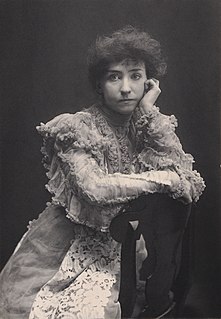
Minnie Maddern Fiske, but often billed simply as Mrs. Fiske, was one of the leading American actresses of the late 19th and early 20th century. She also spearheaded the fight against the Theatrical Syndicate for the sake of artistic freedom. She was widely considered the most important actress on the American stage in the first quarter of the 20th century. Her performances in several Henrik Ibsen plays helped introduced American audiences to the Norwegian playwright.
Claire Bloom, English actress births

Patricia Claire Bloom is an English actress. She is known for leading roles in plays such as A Streetcar Named Desire, A Doll's House, and Long Day's Journey into Night, and has starred in nearly sixty films and is one of the last surviving stars from the Golden Age of Hollywood cinema.
Jonathan Steele, English journalist and author births
Jonathan Steele is a British journalist and the author of several books on international affairs.
Bruce Dawe, Australian poet and academic (d. 2020) births
Donald Bruce Dawe was an Australian poet and academic. Some critics consider him one of the most influential Australian poets of all time.
Graham Hill, English racing driver and businessman (d. 1975) births

Norman Graham Hill was a British racing driver and team owner, who was the Formula One World Champion twice, winning in 1962 and 1968 as well as being runner up on three occasions. Despite not passing his driving test until 1953 when he was already 24 years of age, and only entering the world of motorsports a year later, Hill would go on to become one of the greatest drivers of his generation. Hill is most celebrated for being the only driver ever to win the Triple Crown of Motorsport, an achievement which he defined as winning the Indianapolis 500, the 24 Hours of Le Mans, and the Formula One World Drivers' Championship. While several of his peers have also espoused this definition, including fellow F1 World Champion Jacques Villeneuve, the achievement is today most commonly defined as including the Monaco Grand Prix rather than the Formula One World Championship. By this newer definition, Hill is still the only driver to have ever won the Triple Crown, winning at Monaco with such frequency in the 1960s that he became known as "Mr. Monaco". Hill crashed at the 1969 United States Grand Prix and was seriously injured, breaking both his legs and ending his season. Although he would recover and continue to race until 1975, Hill's career would never again reach the same heights, and the Monaco Grand Prix victory earlier in 1969 would be his last victory in Formula One.
James R. Schlesinger, American economist and politician, 12th United States Secretary of Defense (d. 2014) births

James Rodney Schlesinger was an American economist and public servant who was best known for serving as Secretary of Defense from 1973 to 1975 under Presidents Richard Nixon and Gerald Ford. Prior to becoming Secretary of Defense, he served as Chair of the Atomic Energy Commission (AEC) from 1971 to 1973, and as CIA Director for a few months in 1973. He became America's first Secretary of Energy under Jimmy Carter in 1977, serving until 1979.

The United States secretary of defense (SecDef) is the head of the United States Department of Defense, the executive department of the U.S. Armed Forces, and is a high ranking member of the federal cabinet. The secretary of defense's position of command and authority over the military is second only to that of the president of the United States, who is the commander-in-chief. This position corresponds to what is generally known as a defense minister in many other countries. The secretary of defense is appointed by the president with the advice and consent of the Senate, and is by custom a member of the Cabinet and by law a member of the National Security Council.
Joseph Willcox Jenkins, American composer, conductor, and educator (d. 2014) births

Joseph Willcox Jenkins was an American composer, professor of music, and musician. During his military service in the Korean War, he became the first arranger for the United States Army Chorus. He ended his teaching career as Professor Emeritus at the Mary Pappert School of Music, Duquesne University, where he had been a professor since 1961, and composed over 200 works.
H. H. Asquith, English lawyer and politician, Prime Minister of the United Kingdom (b. 1852) deaths

Herbert Henry Asquith, 1st Earl of Oxford and Asquith,, generally known as H. H. Asquith, was a British statesman and Liberal Party politician who served as Prime Minister of the United Kingdom from 1908 to 1916. He was the last Liberal prime minister to command a majority government, and the most recent Liberal to have served as Leader of the Opposition. He played a major role in the design and passage of major liberal legislation and a reduction of the power of the House of Lords. In August 1914, Asquith took Great Britain and the British Empire into the First World War. During 1915, his government was vigorously attacked for a shortage of munitions and the failure of the Gallipoli Campaign. He formed a coalition government with other parties but failed to satisfy critics, was forced to resign in December 1916 and never regained power.

The prime minister of the United Kingdom is the head of government of the United Kingdom. The prime minister advises the sovereign on the exercise of much of the royal prerogative, chairs the Cabinet and selects its ministers. As modern prime ministers hold office by virtue of their ability to command the confidence of the House of Commons, they sit as members of Parliament.
Frank Dunlop, English actor and director births
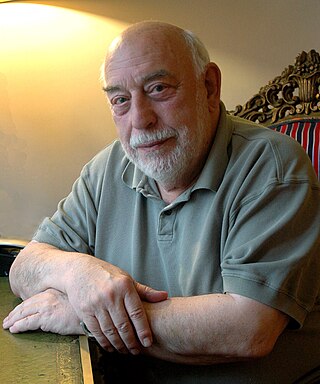
Frank Dunlop is a British theatre director.
Harvey Korman, American actor and comedian (d. 2008) births

Harvey Herschel Korman was an American actor and comedian who performed in television and film productions. His big break was being a featured performer on CBS' The Danny Kaye Show, but he is best remembered for his performances on the sketch comedy series The Carol Burnett Show, for which he won four Emmy Awards, as well as his partnership with Tim Conway. Korman also appeared in several comedy films by Mel Brooks.
Yehoshua Neuwirth, Israeli rabbi and scholar (d. 2013) births

Yehoshua Yeshaya Neuwirth was an eminent Orthodox Jewish rabbi and posek in Jerusalem. He was one of the primary students of Rabbi Shlomo Zalman Auerbach and the author of a two-volume Hebrew language treatise, Shemirat Shabbat Kehilchatah — translated into English as Shemirath Shabbath: A practical guide to the observance of Shabbath — a compendium of the laws of Shabbat which is viewed by many as an authoritative work regarding these laws.
Angella D. Ferguson, American pediatrician births
Angella Dorothea Ferguson is an American pediatrician known for her groundbreaking research on sickle cell disease.
Robert Drew, American director and producer (d. 2014) births
Robert Lincoln Drew was an American documentary filmmaker known as one of the pioneers—and sometimes called father—of cinéma vérité, or direct cinema, in the United States. Two of his films, Primary and Crisis: Behind a Presidential Commitment, have been named to the National Film Registry of the Library of Congress. The moving image collection of Robert Drew is housed at the Academy Film Archive. The Academy Film Archive has preserved a number of his films, including Faces of November, Herself: Indira Gandhi, and Bravo!/Kathy's Dance. His many awards include an International Documentary Association Career Achievement Award.
Lionel Monckton, English composer (b. 1861) deaths

Lionel John Alexander Monckton was an English composer of musical theatre. He became Britain's most popular composer of Edwardian musical comedy in the early years of the 20th century.
Yelena Bonner, Soviet-Russian activist (d. 2011) births

Yelena Georgiyevna Bonner was a human rights activist in the former Soviet Union and wife of the physicist Andrei Sakharov. During her decades as a dissident, Bonner was noted for her characteristic blunt honesty and courage.
John B. Anderson, Swedish-American lawyer and politician (d. 2017) births

John Bayard Anderson was an American lawyer and politician who served in the United States House of Representatives, representing Illinois's 16th congressional district from 1961 to 1981. A member of the Republican Party, he also served as the Chair of the House Republican Conference from 1969 until 1979. In 1980, he ran an independent campaign for president, receiving 6.6% of the popular vote.
Endicott Peabody, American soldier, lawyer, and politician, 62nd Governor of Massachusetts (d. 1997) births

Endicott Howard Peabody was an American politician from Massachusetts. A Democrat, he served a single two-year term as the 62nd Governor of Massachusetts, from 1963 to 1965. His tenure is probably best known for his categorical opposition to the death penalty and for signing into law the bill establishing the University of Massachusetts Boston. After losing the 1964 Democratic gubernatorial primary, Peabody made several more failed bids for office in Massachusetts and New Hampshire, including failed campaigns for the U.S. Senate in 1966 and 1986.

The governor of the Commonwealth of Massachusetts is the chief executive officer of the government of Massachusetts. The governor is the head of the state cabinet and the commander-in-chief of the commonwealth's military forces.
Eio Sakata, Japanese Go player (d. 2010) births

Eio Sakata was a 9-dan Japanese professional Go player.

Go is an abstract strategy board game for two players in which the aim is to surround more territory than the opponent. The game was invented in China more than 2,500 years ago and is believed to be the oldest board game continuously played to the present day. A 2016 survey by the International Go Federation's 75 member nations found that there are over 46 million people worldwide who know how to play Go and over 20 million current players, the majority of whom live in East Asia.
Ducky Detweiler, American baseball player and manager (d. 2013) births

Robert Sterling "Ducky" Detweiler was an American professional baseball infielder and manager. Listed at 5 feet 11 inches (1.80 m) tall and 178 pounds (81 kg), he batted and threw right handed.
Allan Arbus, American actor and photographer (d. 2013) births

Allan Franklin Arbus was an American actor and photographer. He was the former husband of photographer Diane Arbus. He is known for his role as psychiatrist Dr. Sidney Freedman on the CBS television series M*A*S*H.
Hank Locklin, American singer-songwriter and guitarist (d. 2009) births

Hank Locklin was an American country music singer-songwriter. He had 70 chart singles, including two number one hits on Billboard's country chart. His biggest hits included "Send Me the Pillow You Dream On" and his signature "Please Help Me, I'm Falling". The latter also went to number eight on the Billboard Hot 100 pop music chart. Billboard's 100th anniversary issue listed it as the second most successful country single of the rock and roll era. It sold over one million copies, and was awarded a gold disc by the RIAA.
Mary Jane Croft, American actress (d. 1999) births
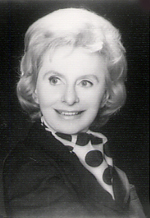
Mary Jane Croft was an American actress best known for her roles as Betty Ramsey on I Love Lucy, Miss Daisy Enright on the radio and television versions of Our Miss Brooks, Mary Jane Lewis on The Lucy Show and Here's Lucy, and Clara Randolph on The Adventures of Ozzie and Harriet.
Hale Boggs, American lawyer and politician (d. 1972) births

Thomas Hale Boggs Sr. was an American Democratic politician and a member of the U.S. House of Representatives from New Orleans, Louisiana. He was the House majority leader and a member of the Warren Commission.
Kevin McCarthy, American actor (d. 2010) births
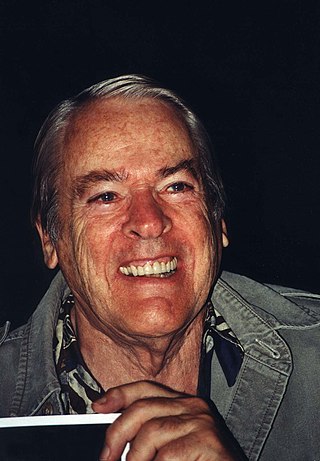
Kevin McCarthy was an American stage, film and television actor remembered as the male lead in the horror science fiction film Invasion of the Body Snatchers (1956).
Erich Eliskases, Austrian chess player (d. 1997) births

Erich Gottlieb Eliskases was a chess player who represented Austria, Germany and Argentina in international competition. In the late 1930s he was considered a potential contender for the World Championship. Eliskases was granted the title of grandmaster by FIDE in 1952.
George Mikes, Hungarian-English journalist and author (d. 1987) births
George Mikes was a Hungarian-born British journalist, humorist and writer, best known for his humorous commentaries on various countries.
Theodor Escherich, German-Austrian pediatrician and academic (b. 1859) deaths

Theodor Escherich was a German-Austrian pediatrician and a professor at universities in Graz and Vienna. He discovered and described the bacterium Escherichia coli.
Irena Sendler, Polish nurse and humanitarian, Righteous Gentile (d. 2008) births

Irena Stanisława Sendler, also referred to as Irena Sendlerowa in Poland, nom de guerre Jolanta, was a Polish humanitarian, social worker, and nurse who served in the Polish Underground Resistance during World War II in German-occupied Warsaw. From October 1943 she was head of the children's section of Żegota, the Polish Council to Aid Jews.
Ger toshav is a halakhic term used in Judaism to designate the legal status of a Gentile (non-Jew) living in the Land of Israel who does not want to convert to Judaism but agrees to observe the Seven Laws of Noah, a set of imperatives which, according to the Talmud, were given by God as a binding set of universal moral laws for the "sons of Noah"—that is, all of humanity. A ger toshav, especially one who decides to follow the Noahic covenant out of religious belief rather than ethical reasoning, is commonly deemed a "Righteous Gentile", and is assured of a place in the World to Come .
Miep Gies, Austrian-Dutch humanitarian, helped hide Anne Frank and her family (d. 2010) births
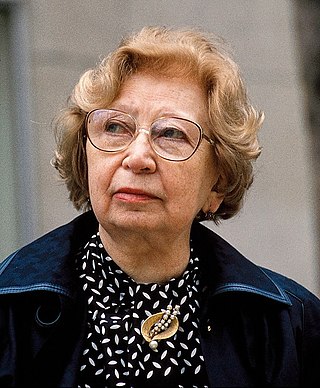
Hermine "Miep" Gies was one of the Dutch citizens who hid Anne Frank, her family and four other Dutch Jews from the Nazis in an annex above Otto Frank's business premises during World War II. She was Austrian by birth, but in 1920, at the age of eleven, she was taken in as a foster child by a Dutch family in Leiden to whom she became very attached. Although she was initially only to stay for six months, this stay was extended to one year because of frail health, after which Gies chose to remain with them, living the rest of her life in the Netherlands. She died in 2010 at age 100, a month before her 101st birthday.
Anne Frank was a German-born Jewish girl who, along with her family and four other people, hid in the second and third floor rooms at the back of her father's Amsterdam company during the Nazi occupation of the Netherlands. Helped by several trusted employees of the company, the group of eight survived in the achterhuis for more than two years before they were betrayed, and arrested. Anne kept a diary from 12 June 1942 until 1 August 1944, three days before the residents of the annex were arrested. Anne mentioned several times in her writings that her sister Margot Frank also kept a diary, but no trace of Margot's diary was ever found.
Sarto Fournier, Canadian lawyer and politician, 38th Mayor of Montreal (d. 1980) births
Sarto Fournier was a Canadian politician. He served as mayor of Montreal from 1957 to 1960.

The mayor of Montreal is head of the executive branch of the Montreal City Council. The current mayor is Valérie Plante, who was elected into office on November 5, 2017, and sworn in on November 16. The office of the mayor administers all city services, public property, police and fire protection, most public agencies, and enforces all city and provincial laws within Montreal, Quebec. The mayor is directly elected by citizens, by a plurality of votes, for a four-year term. The mayor's office is located in Montreal City Hall.
Jean Langlais, French organist and composer (d. 1991) births
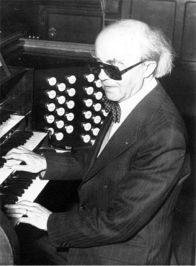
Jean François-Hyacinthe Langlais III was a French composer of modern classical music, organist, and improviser. He described himself as "Breton, de foi Catholique".
Cesar Romero, American actor (d. 1994) births

Cesar Julio Romero Jr. was an American actor and activist. He was active in film, radio, and television for almost sixty years.
Harold Arlen, American composer (d. 1986) births

Harold Arlen was an American composer of popular music, who composed over 500 songs, a number of which have become known worldwide. In addition to composing the songs for the 1939 film The Wizard of Oz, including "Over the Rainbow", Arlen is a highly regarded contributor to the Great American Songbook. "Over the Rainbow" was voted the 20th century's No. 1 song by the RIAA and the NEA.
Lew Wallace, American author, general, and politician, 11th Governor of New Mexico Territory (b. 1827) deaths

Lewis Wallace was an American lawyer, Union general in the American Civil War, governor of the New Mexico Territory, politician, diplomat, and author from Indiana. Among his novels and biographies, Wallace is best known for his historical adventure story, Ben-Hur: A Tale of the Christ (1880), a bestselling novel that has been called "the most influential Christian book of the nineteenth century."

The following is a list of the governors of the State of New Mexico and Territory of New Mexico.
Mary Adshead, English painter (d. 1995) births

Mary Adshead was an English painter, muralist, illustrator and designer.
Antonin Magne, French cyclist and manager (d. 1983) births
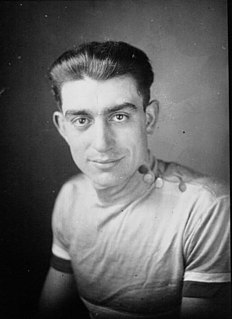
Antonin Magne was a French cyclist who won the Tour de France in 1931 and 1934. He raced as a professional from 1927 to 1939 and then became a team manager. The French rider and then journalist, Jean Bobet, described him in Sporting Cyclist as "a most uninterviewable character" and "a man who withdraws into a shell as soon as he meets a journalist." His taciturn character earned him the nickname of The Monk when he was racing.
Georges Auric, French composer (d. 1983) births

Georges Auric was a French composer, born in Lodève, Hérault, France. He was considered one of Les Six, a group of artists informally associated with Jean Cocteau and Erik Satie. Before he turned 20 he had orchestrated and written incidental music for several ballets and stage productions. He also had a long and distinguished career as a film composer.
Gale Sondergaard, Danish-American actress (d. 1985) births
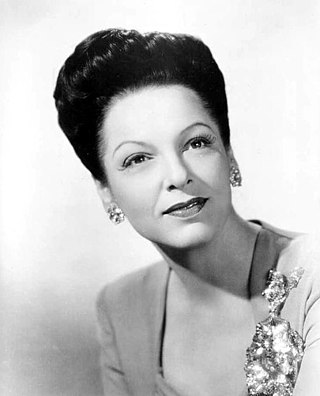
Gale Sondergaard was an American actress.
Totò, Italian actor, singer, and screenwriter (d. 1967) births

Antonio Griffo Focas Flavio Angelo Ducas Comneno Porfirogenito Gagliardi de Curtis di Bisanzio, best known by his stage name Totò, or simply as Antonio de Curtis, and nicknamed il Principe della risata, was an Italian actor, comedian, screenwriter, dramatist, poet, singer and lyricist. He was commonly referred to as one of the most popular Italian performers of all time. He is best known for his funny and sometimes cynical character as a comedian in theatre and then in many successful films shot from the 1940s to the 1960s, but he also worked with many iconic Italian film directors in dramatic/poetic roles.
Gerrit Kleerekoper, Dutch gymnast and coach (d. 1943) births

Gerrit Kleerekoper was a Jewish-Dutch gymnastics coach. He was married with two children and worked as a diamond cutter.
Dimitrie Ghica, Romanian lawyer and politician, 10th Prime Minister of Romania (b. 1816) deaths

Dimitrie Ghica or Ghika was a Romanian politician. A prominent member of the Conservative Party, he served as Prime Minister between 1868 and 1870.

The prime minister of Romania, officially the prime minister of the Government of Romania, is the head of the Government of Romania. Initially, the office was styled President of the Council of Ministers, when the term "Government" included more than the Cabinet, and the Cabinet was called the Council of Ministers. The title was officially changed to Prime Minister by the 1965 Constitution of Romania during the communist regime.
Roman Najuch, Polish professional tennis player (d. 1967) births

Roman Najuch was a professional tennis player and teacher based in Germany. He was born in a location of today's Poland belonging to the Russian Empire at that time. His family moved to Germany, caused by revolutions and wars, and settled in Berlin. One of his first teachers was Georg Kerr who left Germany in 1910. Later he got German citizenship. He took part in the first German Pro Championships 1911, still with Russian citizenship, and reached the final, but the winner was Karel Koželuh. He won the German Championships in 1913 and 1914. He was teaching at the LTTC Rot-Weiss Tennis Club in Berlin. In October 1925 he became German Champion for the seventh time. In 1928 and 1929 he won German Pro Championships. He was defeated in 1931 by his student Hans Nüsslein after getting the title for eleven times. With Hans Nüsslein, who was 17 years younger, he played in the doubles event. Najuch was the coach of Poland's Davis Cup team and became president of the International Pro Tennis Federation. His life career was presented on German TV in the series Wie ich angefangen habe (1957–1958). Marshall Jon Fisher called him "one of the world's best players at the time" around the year 1925.
James Forrestal, American lieutenant and politician, 1st United States Secretary of Defense (d. 1949) births

James Vincent Forrestal was the last Cabinet-level United States Secretary of the Navy and the first United States Secretary of Defense.

The United States secretary of defense (SecDef) is the head of the United States Department of Defense, the executive department of the U.S. Armed Forces, and is a high ranking member of the federal cabinet. The secretary of defense's position of command and authority over the military is second only to that of the president of the United States, who is the commander-in-chief. This position corresponds to what is generally known as a defense minister in many other countries. The secretary of defense is appointed by the president with the advice and consent of the Senate, and is by custom a member of the Cabinet and by law a member of the National Security Council.
Robert Ley, German politician (d. 1945) births

Robert Ley was a German politician during the Nazi era; Ley headed the German Labour Front from 1933 to 1945. He also held many other high positions in the Party, including Gauleiter, Reichsleiter and Reichsorganisationsleiter. He committed suicide while awaiting trial at Nuremberg for crimes against humanity and war crimes.
Gregor von Helmersen, Estonian-Russian geologist and engineer (b. 1803) deaths

Gregor von Helmersen or Grigory Petrovich Helmersen was a Baltic German geologist.
Leopold Damrosch, German-American composer and conductor (b. 1832) deaths

Leopold Damrosch was a German American orchestral conductor and composer.
Sax Rohmer, English-American author (d. 1959) births
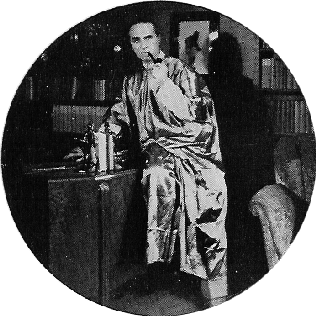
Arthur Henry "Sarsfield" Ward, better known as Sax Rohmer, was an English novelist. He is best remembered for his series of novels featuring the master criminal Dr. Fu Manchu.
Ernest Shackleton, Anglo-Irish captain and explorer (d. 1922) births

Sir Ernest Henry Shackleton was an Anglo-Irish Antarctic explorer who led three British expeditions to the Antarctic. He was one of the principal figures of the period known as the Heroic Age of Antarctic Exploration.
Hans von Euler-Chelpin, German-Swedish biochemist and academic, Nobel Prize laureate (d. 1964) births
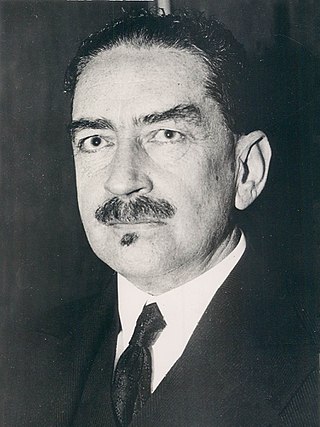
Hans Karl August Simon von Euler-Chelpin was a German-born Swedish biochemist. He won the Nobel Prize in Chemistry in 1929 with Arthur Harden for their investigations on the fermentation of sugar and enzymes. He was a professor of general and organic chemistry at Stockholm University (1906–1941) and the director of its Institute for organic-chemical research (1938–1948). Euler-Chelpin was distantly related to Leonhard Euler. He married chemist Astrid Cleve, the daughter of the Uppsala chemist Per Teodor Cleve. In 1970, their son Ulf von Euler, was awarded the Nobel Prize in Physiology or Medicine.

The Nobel Prize in Chemistry is awarded annually by the Royal Swedish Academy of Sciences to scientists in the various fields of chemistry. It is one of the five Nobel Prizes established by the will of Alfred Nobel in 1895, awarded for outstanding contributions in chemistry, physics, literature, peace, and physiology or medicine. This award is administered by the Nobel Foundation, and awarded by the Royal Swedish Academy of Sciences on proposal of the Nobel Committee for Chemistry which consists of five members elected by the Academy. The award is presented in Stockholm at an annual ceremony on 10 December, the anniversary of Nobel's death.
Ghalib, Indian poet and educator (b. 1796) deaths
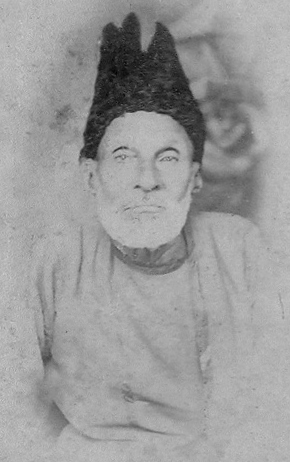
Mirza Beg Asadullah Khan also known as Mirza Ghalib was an Urdu and Persian poet of the 19th century Mughal and British era in the Subcontinent. He was popularly known by the pen names Ghalib (غالب) and Asad (اسد). His honorific was Dabir-ul-Mulk, Najm-ud-Daula. He is one of the most popular poets in Pakistan and quite well known amongst Urdu-speaking people in India. During his lifetime, the already declining Mughal Empire was eclipsed and displaced by the British East India Company Rule and finally deposed following the defeat of the 1857 Rebellion; these are described through his work.
Charles Édouard Guillaume, Swiss-French physicist and academic, Nobel Prize laureate (d. 1938) births

Charles Édouard Guillaume was a Swiss physicist who received the Nobel Prize in Physics in 1920 in recognition of the service he had rendered to precision measurements in physics by his discovery of anomalies in nickel steel alloys. In 1919, he gave the fifth Guthrie Lecture at the Institute of Physics in London with the title "The Anomaly of the Nickel-Steels".

The Nobel Prize in Physics is a yearly award given by the Royal Swedish Academy of Sciences for those who have made the most outstanding contributions for humankind in the field of physics. It is one of the five Nobel Prizes established by the will of Alfred Nobel in 1895 and awarded since 1901, the others being the Nobel Prize in Chemistry, Nobel Prize in Literature, Nobel Peace Prize, and Nobel Prize in Physiology or Medicine. Physics is traditionally the first award presented in the Nobel Prize ceremony.
Alfred North Whitehead, English mathematician and philosopher (d. 1947) births

Alfred North Whitehead was an English mathematician and philosopher. He is best known as the defining figure of the philosophical school known as process philosophy, which today has found application to a wide variety of disciplines, including ecology, theology, education, physics, biology, economics, and psychology, among other areas.
Mikhail Glinka, Russian composer (b. 1804) deaths
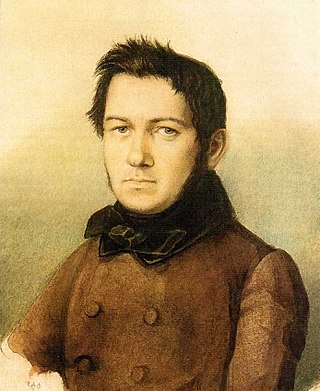
Mikhail Ivanovich Glinka was the first Russian composer to gain wide recognition within his own country and is often regarded as the fountainhead of Russian classical music. His compositions were an important influence on Russian composers, notably the members of The Five, who produced a distinctive Russian style of music.
Emil Kraepelin, German psychiatrist and academic (d. 1926) births

Emil Wilhelm Georg Magnus Kraepelin was a German psychiatrist.
Spiru Haret, Romanian mathematician, astronomer, and politician, 55th Romanian Minister of Internal Affairs (d. 1912) births

Spiru C. Haret was a Romanian mathematician, astronomer, and politician. He made a fundamental contribution to the n-body problem in celestial mechanics by proving that using a third degree approximation for the disturbing forces implies instability of the major axes of the orbits, and by introducing the concept of secular perturbations in relation to this.

The Ministry of Internal Affairs of Romania is one of the eighteen ministries of the Government of Romania.
Sophie Bryant, Irish mathematician, academic and activist (d. 1922) births

Sophie Willock Bryant was an Anglo-Irish mathematician, educator, feminist and activist.
Rickman Godlee, English surgeon and academic (d. 1925) births
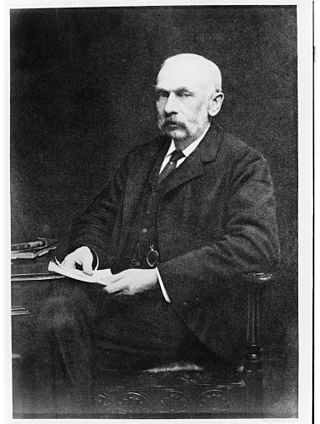
Sir Rickman John Godlee, 1st Baronet was an English surgeon. In 1884 he became one of the first doctors to surgically remove a brain tumor, founding modern brain surgery.
Pierre François Verhulst, Belgian mathematician and theorist (b. 1804) deaths

Pierre François Verhulst was a Belgian mathematician and a doctor in number theory from the University of Ghent in 1825. He is best known for the logistic growth model.
Hermann von Boyen, Prussian general and politician, Prussian Minister of War (b. 1771) deaths
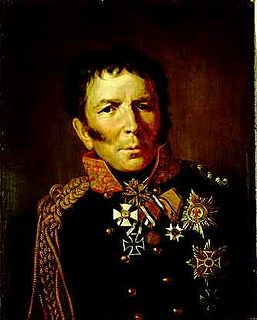
Leopold Hermann Ludwig von Boyen was a Prussian army officer who helped to reform the Prussian Army in the early 19th century. He also served as minister of war of Prussia in the period 1810-1813 and later again from 1 March 1841 – 6 October 1847.

The Prussian War Ministry was gradually established between 1808 and 1809 as part of a series of reforms initiated by the Military Reorganization Commission created after the disastrous Treaties of Tilsit. The War Ministry was to help bring the Army under constitutional review, and, along with the General Staff systematize the conduct of warfare. Gerhard von Scharnhorst, the most prominent and influential of the reformers, served as acting war minister from roughly 1808 until 1810.
Robert Fuchs, Austrian composer and educator (d. 1927) births
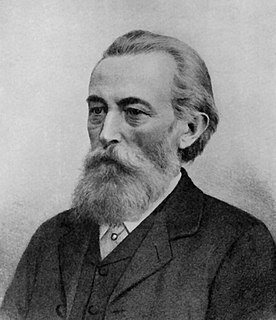
Robert Fuchs was an Austrian composer and music teacher. As Professor of music theory at the Vienna Conservatory, Fuchs taught many notable composers, while he was himself a highly regarded composer in his lifetime.
Germinal Pierre Dandelin, Belgian mathematician and engineer (b. 1794) deaths

Germinal Pierre Dandelin was a French mathematician, soldier, and professor of engineering.
Elihu Root, American lawyer and politician, 38th United States Secretary of State, Nobel Prize laureate (d. 1937) births

Elihu Root was an American lawyer, Republican politician, and statesman who served as Secretary of State and Secretary of War in the early twentieth century. He also served as United States Senator from New York and received the 1912 Nobel Peace Prize. Root is sometimes considered the prototype of the 20th century political "wise man," advising presidents on a range of foreign and domestic issues.

The United States secretary of state is a member of the executive branch of the federal government of the United States and the head of the U.S. Department of State. The office holder is one of the highest ranking members of the president's Cabinet, and ranks the first in the U.S. presidential line of succession among Cabinet secretaries.
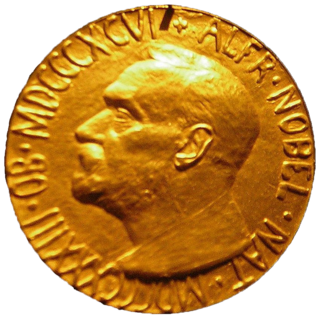
The Nobel Peace Prize is one of the five Nobel Prizes established by the will of Swedish industrialist, inventor and armaments manufacturer Alfred Nobel, along with the prizes in Chemistry, Physics, Physiology or Medicine and Literature. Since March 1901, it has been awarded annually to those who have "done the most or the best work for fraternity between nations, for the abolition or reduction of standing armies and for the holding and promotion of peace congresses".
Henry Addington, 1st Viscount Sidmouth, English politician, Prime Minister of the United Kingdom (b. 1757) deaths

Henry Addington, 1st Viscount Sidmouth, was an English Tory statesman who served as Prime Minister of the United Kingdom from 1801 to 1804.

The prime minister of the United Kingdom is the head of government of the United Kingdom. The prime minister advises the sovereign on the exercise of much of the royal prerogative, chairs the Cabinet and selects its ministers. As modern prime ministers hold office by virtue of their ability to command the confidence of the House of Commons, they sit as members of Parliament.
Archibald Menzies, Scottish surgeon and botanist (b. 1754) deaths

Archibald Menzies was a Scottish surgeon, botanist and naturalist. He spent many years at sea, serving with the Royal Navy, private merchants, and the Vancouver Expedition. He was the first recorded European to reach the summit of the Hawaiian volcano Mauna Loa and introduced the Monkey Puzzle tree to England.
Manuel Ferraz de Campos Sales, Brazilian lawyer and politician, 4th President of Brazil (d. 1913) births

Manoel Ferraz de Campos Salles was a Brazilian lawyer, coffee farmer, and politician who served as the fourth president of Brazil. He was born in the city of Campinas, São Paulo. He graduated as a lawyer from the Faculdade de Direito do Largo de São Francisco, São Paulo, in 1863. He served as a provincial deputy three times, general-deputy once, and also as minister of justice (1889-1891), senator and governor of São Paulo (1896–1897). The pinnacle of his political career was his election as president of Brazil, an office he held between 1898 and 1902. Austere financial reforms were adopted during his tenure.
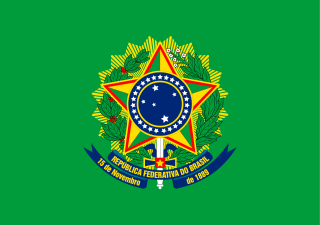
The president of Brazil, officially the president of the Federative Republic of Brazil or simply the President of the Republic, is the head of state and head of government of Brazil. The president leads the executive branch of the federal government and is the commander-in-chief of the Brazilian Armed Forces. The presidential system was established in 1889, upon the proclamation of the republic in a military coup d'état against Emperor Pedro II. Since then, Brazil has had six constitutions, three dictatorships, and three democratic periods. During the democratic periods, voting has always been compulsory. The Constitution of Brazil, along with several constitutional amendments, establishes the requirements, powers, and responsibilities of the president, their term of office and the method of election.
Titu Maiorescu, Romanian philosopher, academic, and politician, 23rd Prime Minister of Romania (d. 1917) births
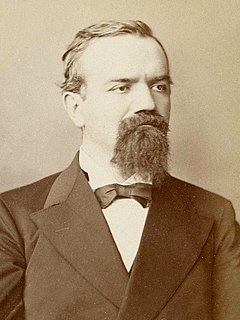
Titu Liviu Maiorescu was a Romanian literary critic and politician, founder of the Junimea Society. As a literary critic, he was instrumental in the development of Romanian culture in the second half of the 19th century.

The prime minister of Romania, officially the prime minister of the Government of Romania, is the head of the Government of Romania. Initially, the office was styled President of the Council of Ministers, when the term "Government" included more than the Cabinet, and the Cabinet was called the Council of Ministers. The title was officially changed to Prime Minister by the 1965 Constitution of Romania during the communist regime.
François-Marie-Thomas Chevalier de Lorimier, Canadian rebel (b. 1803) deaths

François-Marie-Thomas Chevalier de Lorimier, also known under shorter names such as François-Marie-Thomas de Lorimier, Marie-Thomas Chevalier de Lorimier or Chevalier de Lorimier, was a notary who fought as a Patriote and Frère chasseur for the independence of Lower Canada in the Lower Canada Rebellion. For these actions, he was incarcerated at the Montreal Pied-du-Courant Prison and was hanged at the site by the British authorities.
Demetrius Vikelas, Greek businessman and philanthropist (d. 1908) births

Demetrios Vikelas was a Greek businessman and writer; he was the first President of the International Olympic Committee (IOC), from 1894 to 1896.
Henry Hunt, English farmer and politician (b. 1773) deaths

Henry "Orator" Hunt was a British radical speaker and agitator remembered as a pioneer of working-class radicalism and an important influence on the later Chartist movement. He advocated parliamentary reform and the repeal of the Corn Laws. He was the first member of parliament to advocate for women's suffrage; in 1832 he presented a petition to parliament from a woman asking for the right to vote.
V. A. Urechia, Moldavian-Romanian historian, author, and playwright (d. 1901) births

V. A. Urechia was a Moldavian, later Romanian historian, Romantic author of historical fiction and plays, academic and politician. The author of Romanian history syntheses, a noted bibliographer, heraldist, ethnographer and folklorist, he founded and managed a private school, later holding teaching positions at the University of Iași and University of Bucharest. Urechia was also one of the founding members of the Romanian Academy and, as frequent traveler to Spain and fluent speaker of Spanish, a corresponding member of the Royal Spanish Academy. He was the father of satirist Alceu Urechia.
Carter Harrison, Sr., American lawyer and politician, 29th Mayor of Chicago (d. 1893) births
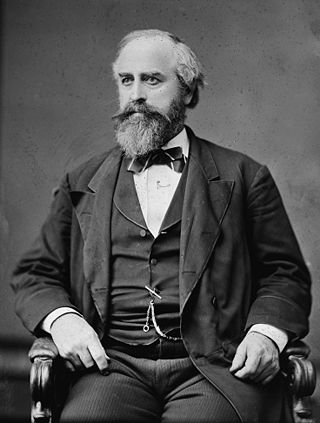
Carter Henry Harrison Sr. was an American politician who served as mayor of Chicago, Illinois, from 1879 until 1887; he was subsequently elected to a fifth term in 1893 but was assassinated before completing the term. He previously served two terms in the United States House of Representatives. Harrison was the first cousin twice removed of President William Henry Harrison, whose grandson, Benjamin Harrison, had also been president until just months prior to the assassination. He was also the father of Carter Harrison Jr., who would follow in his father's footsteps, and would serve five terms as the mayor of Chicago himself.

The mayor of Chicago is the chief executive of city government in Chicago, Illinois, the third-largest city in the United States. The mayor is responsible for the administration and management of various city departments, submits proposals and recommendations to the Chicago City Council, is active in the enforcement of the city's ordinances, submits the city's annual budget and appoints city officers, department commissioners or directors, and members of city boards and commissions.
Susan B. Anthony, American suffragist and activist (d. 1906) births
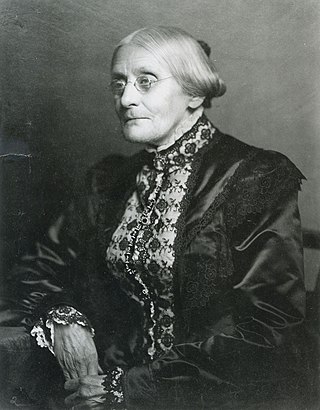
Susan B. Anthony was an American social reformer and women's rights activist who played a pivotal role in the women's suffrage movement. Born into a Quaker family committed to social equality, she collected anti-slavery petitions at the age of 17. In 1856, she became the New York state agent for the American Anti-Slavery Society.
Frederick Louis, Prince of Hohenlohe-Ingelfingen (b. 1746) deaths

Frederick Louis, Prince of Hohenlohe-Ingelfingen was a Prussian general.
Charles Lewis Tiffany, American businessman, founded Tiffany & Co. (d. 1902) births

Charles Lewis Tiffany was an American businessman and jeweler who founded New York City's Tiffany & Co. in 1837. Known for his jewelry expertise, Tiffany created the country's first retail catalog and introduced the English standard of sterling silver in imported jewelry in 1851.

Tiffany & Co. is a high-end luxury jewelry and specialty retailer, headquartered on Fifth Avenue in Manhattan. It sells jewelry, sterling silver, porcelain, crystal, stationery, fragrances, water bottles, watches, personal accessories, and leather goods. Tiffany is known for its luxury goods, particularly its diamond and sterling silver jewelry. These goods are sold at Tiffany stores, online, and corporate merchandising. Its name and branding are licensed to Coty for fragrances and to Luxottica for eyewear.
Domingo Faustino Sarmiento, Argentinian journalist and politician, 7th President of Argentina (d. 1888) births

Domingo Faustino Sarmiento was an Argentine activist, intellectual, writer, statesman and the second President of Argentina. His writing spanned a wide range of genres and topics, from journalism to autobiography, to political philosophy and history. He was a member of a group of intellectuals, known as the Generation of 1837, who had a great influence on 19th-century Argentina. He was particularly concerned with educational issues and was also an important influence on the region's literature.

The president of Argentina, officially known as the president of the Argentine Nation, is both head of state and head of government of Argentina. Under the national constitution, the president is also the chief executive of the federal government and commander-in-chief of the armed forces.
Mary S. B. Shindler, American poet, writer, and editor (d. 1883) births

Mary S. B. Shindler was an American poet, writer, and editor of the southern United States. She was a frequent contributor to popular periodicals, and a successful hymnwriter of the mid-19th century.
André Dumont, Belgian geologist and academic (d. 1857) births

André Hubert Dumont was a Belgian geologist.
Cyrus McCormick, American journalist and businessman, co-founded International Harvester (d. 1884) births

Cyrus Hall McCormick was an American inventor and businessman who founded the McCormick Harvesting Machine Company, which later became part of the International Harvester Company in 1902. Originally from the Blue Ridge Mountains of Virginia, he and many members of the McCormick family became prominent residents of Chicago. McCormick has been simplistically credited as the single inventor of the mechanical reaper. He was, however, one of several designing engineers who produced successful models in the 1830s. His efforts built on more than two decades of work by his father Robert McCormick Jr., with the aid of Jo Anderson, who was enslaved by the family. He also successfully developed a modern company, with manufacturing, marketing, and a sales force to market his products.

The International Harvester Company was an American manufacturer of agricultural and construction equipment, automobiles, commercial trucks, lawn and garden products, household equipment, and more. It was formed from the 1902 merger of McCormick Harvesting Machine Company and Deering Harvester Company and three smaller manufactures: Milwaukee; Plano; and Warder, Bushnell, and Glessner. In the 1980s all divisions were sold off except for International Trucks, which changed its parent company name to Navistar International. Its brands included McCormick, Deering, and later McCormick-Deering, as well as International. Along with the Farmall and Cub Cadet tractors, International was also known for the Scout and Travelall vehicle nameplates.
Gotthold Ephraim Lessing, German philosopher, author, and critic (b. 1729) deaths

Gotthold Ephraim Lessing was a philosopher, dramatist, publicist and art critic, and a representative of the Enlightenment era. His plays and theoretical writings substantially influenced the development of German literature. He is widely considered by theatre historians to be the first dramaturg in his role at Abel Seyler's Hamburg National Theatre.
Jean-François Le Sueur, French composer and educator (d. 1837) births
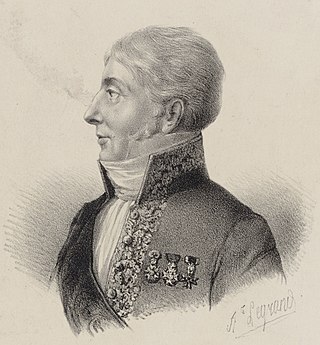
Jean-François Le Sueur was a French composer, best known for his oratorios and operas.
Friedrich August Wolf, German philologist and critic (d. 1824) births

Friedrich August Wolf was a German classicist and is considered the founder of modern philology.
Jeremy Bentham, English jurist and philosopher (d. 1832) births

Jeremy Bentham was an English philosopher, jurist, and social reformer regarded as the founder of modern utilitarianism.
Alexandre-Théodore Brongniart, French architect, designed the Paris Bourse (d. 1813) births

Alexandre-Théodore Brongniart was a prominent French architect.

Euronext Paris is France's securities market, formerly known as the Paris Bourse, which merged with the Amsterdam, Lisbon, and Brussels exchanges in September 2000 to form Euronext NV. As of 2022, the 795 companies listed had a combined market capitalization of over US$4.5 trillion. Euronext Paris, the French branch of Euronext, was previously Europe's second-largest stock exchange market, behind the London Stock Exchange, but is now the most valued stock exchange in Europe.
Matthias Braun, Czech sculptor (b. 1684) deaths

Matthias Bernard Braun was a sculptor and carver active in the Czech lands, one of the most prominent late baroque style sculptors in the area.
William Stacy, American colonel (d. 1802) births
William Stacy was an officer of the Continental Army during the American Revolutionary War, and a pioneer to the Ohio Country. Published histories describe Colonel William Stacy's involvement in a variety of events during the war, such as rallying the militia on a village common in Massachusetts, participating in the Siege of Boston, being captured by Loyalists and American Indians at the Cherry Valley massacre, narrowly escaping a death by burning at the stake, General George Washington's efforts to obtain Stacy's release from captivity, and Washington's gift of a gold snuff box to Stacy at the end of the war.
Abraham Clark, American surveyor, lawyer, and politician (d. 1794) births

Abraham Clark was an American Founding Father, politician, and Revolutionary War figure. He was a delegate for New Jersey to the Continental Congress where he signed the Declaration of Independence and later served in the United States House of Representatives in both the Second and Third United States Congress, from March 4, 1791, until his death in 1794.
Louis XV of France (d. 1774) births

Louis XV, known as Louis the Beloved, was King of France from 1 September 1715 until his death in 1774. He succeeded his great-grandfather Louis XIV at the age of five. Until he reached maturity on 15 February 1723, the kingdom was ruled by his grand-uncle Philippe II, Duke of Orléans, as Regent of France. Cardinal Fleury was chief minister from 1726 until his death in 1743, at which time the king took sole control of the kingdom.
Charles-André van Loo, French painter (d. 1765) births

Carle or Charles-André van Loo was a French painter, son of the painter Louis-Abraham van Loo, a younger brother of Jean-Baptiste van Loo and grandson of Jacob van Loo. He was the most famous member of a successful dynasty of painters of Dutch origin. His oeuvre includes every category: religion, history painting, mythology, portraiture, allegory, and genre scenes.
Zeb-un-Nissa, Mughal princess and poet (d. 1702) births
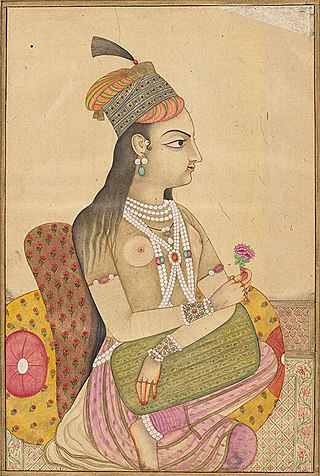
Zeb-un-Nissa was a Mughal princess and the eldest child of Emperor Aurangzeb and his chief consort, Dilras Banu Begum. She was also a poet, who wrote under the pseudonym of "Makhfi".
Ferdinand II, Holy Roman Emperor (b. 1578) deaths

Ferdinand II was Holy Roman Emperor, King of Bohemia, Hungary, and Croatia from 1619 until his death in 1637. He was the son of Archduke Charles II of Inner Austria and Maria of Bavaria. His parents were devout Catholics, and, in 1590, they sent him to study at the Jesuits' college in Ingolstadt because they wanted to isolate him from the Lutheran nobles. In July that same year (1590), when Ferdinand was 12 years old, his father died, and he inherited Inner Austria–Styria, Carinthia, Carniola and smaller provinces. His cousin, the childless Rudolf II, Holy Roman Emperor, who was the head of the Habsburg family, appointed regents to administer these lands.
Charles Morton, Cornish nonconformist minister (d. 1698) births
Charles Morton was a Cornish nonconformist minister and founder of an early dissenting academy, later in life associated in New England with Harvard College. Morton was raised with strong Puritan influences in England and attended Oxford (1649-1652). As a result of the English Revolution, he was arrested and excommunicated for promoting progressive education, forcing his immigration to relative safety in Massachusetts Bay Colony (1685-1686), although he was soon arrested for sedition in Boston.
Michael Praetorius, German organist and composer (b. 1571) deaths

Michael Praetorius was a German composer, organist, and music theorist. He was one of the most versatile composers of his age, being particularly significant in the development of musical forms based on Protestant hymns.
Paul de Chomedey, Sieur de Maisonneuve, French soldier, founded Montreal (d. 1676) births

Paul de Chomedey, sieur de Maisonneuve was a French military officer and the founder of Fort Ville-Marie in New France.

Montreal is the second-most populous city in Canada and most populous city in the Canadian province of Quebec. Founded in 1642 as Ville-Marie, or "City of Mary", it is named after Mount Royal, the triple-peaked hill around which the early city of Ville-Marie is built. The city is centred on the Island of Montreal, which obtained its name from the same origin as the city, and a few much smaller peripheral islands, the largest of which is Île Bizard. The city is 196 km (122 mi) east of the national capital Ottawa, and 258 km (160 mi) southwest of the provincial capital, Quebec City.
José de Acosta, Spanish Jesuit missionary and naturalist (b. 1540) deaths

José de Acosta was a sixteenth-century Spanish Jesuit missionary and naturalist in Latin America. His deductions regarding the ill effects of crossing over the Andes in 1570 related to the atmosphere being too thin for human needs; a variety of altitude sickness is now referred to as Acosta's disease.
Galileo Galilei, Italian astronomer, physicist, and mathematician (d. 1642) births

Galileo di Vincenzo Bonaiuti de' Galilei was an Italian astronomer, physicist and engineer, sometimes described as a polymath. Commonly referred to as Galileo, his name was pronounced. He was born in the city of Pisa, then part of the Duchy of Florence. Galileo has been called the "father" of observational astronomy, modern physics, the scientific method, and modern science.
Alfonso Fontanelli, Italian composer (d. 1622) births
Alfonso Fontanelli was an Italian composer, writer, diplomat, courtier, and nobleman of the late Renaissance. He was one of the leading figures in the musically progressive Ferrara school in the late 16th century, and one of the earliest composers in the seconda pratica style at the transition to the Baroque era.
Pedro Menéndez de Avilés, first Spanish Governor of Florida (d. 1574) births

Pedro Menéndez de Avilés was a Spanish admiral, explorer and conquistador from Avilés, in Asturias, Spain. He is notable for planning the first regular trans-oceanic convoys, which became known as the Spanish treasure fleet, and for founding St. Augustine, Florida, in 1565. This was the first successful European settlement in La Florida and the most significant city in the region for nearly three centuries. St. Augustine is the oldest continuously inhabited, European-established settlement in the continental United States. Menéndez de Avilés was the first governor of La Florida (1565–74). By his contract, or asiento, with Philip II, Menéndez was appointed adelantado and was responsible for implementing royal policies to build fortifications for the defense of conquered territories in La Florida and to establish Castilian governmental institutions in desirable areas.
Giovanni II Bentivoglio, tyrant of Bologna (b. 1443) deaths
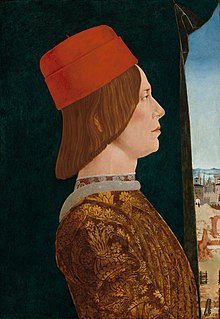
Giovanni II Bentivoglio was an Italian nobleman who ruled as tyrant of Bologna from 1463 until 1506. He had no formal position, but held power as the city's "first citizen." The Bentivoglio family ruled over Bologna from 1443, and repeatedly attempted to consolidate their hold of the Signoria of the city.
Juliana of Stolberg, German countess (d. 1580) births

Juliana, Countess of Stolberg-Wernigerode was the mother of William the Silent, the leader of the successful Dutch Revolt against the Spanish in the 16th century.
Piero the Unfortunate, Italian ruler (d. 1503) births

Piero di Lorenzo de' Medici, called Piero the Fatuous or Piero the Unfortunate, was the lord of Florence from 1492 until his exile in 1494.
Ivan the Young, son of Ivan III of Russia (d. 1490) births
Ivan Ivanovich, was the eldest son and heir of Ivan III of Russia from his first marriage to Maria of Tver.

Ivan III Vasilyevich, also known as Ivan the Great, was a Grand Prince of Moscow and Grand Prince of all Rus'. Ivan served as the co-ruler and regent for his blind father Vasily II from the mid-1450s before he officially ascended the throne in 1462.
Richard de Vere, 11th Earl of Oxford, English commander (b. 1385) deaths

Richard de Vere, 11th Earl of Oxford KG was the son and heir of Aubrey de Vere, 10th Earl of Oxford. He took part in the trial of Richard, Earl of Cambridge, and Lord Scrope for their part in the Southampton Plot, and was one of the commanders at Agincourt in 1415.
William de Ufford, 2nd Earl of Suffolk (b. c. 1339) deaths

William Ufford, 2nd Earl of Suffolk was an English nobleman in the reigns of Edward III and Richard II. He was the son of Robert Ufford, who was created Earl of Suffolk by Edward III in 1337. William had three older brothers who all predeceased him, and in 1369 he succeeded his father.
Ladislaus of Naples (d. 1414) births

Ladislaus the Magnanimous was King of Naples from 1386 until his death and an unsuccessful claimant to the kingdoms of Hungary and Croatia. Ladislaus was a skilled political and military leader, protector and controller of Pope Innocent VII; however, he earned a bad reputation concerning his personal life. He profited from disorder throughout Italy to greatly expand his kingdom and his power, appropriating much of the Papal States to his own use. He was the last male of the Capetian House of Anjou.
Conrad III, king of Germany (b. 1093) deaths
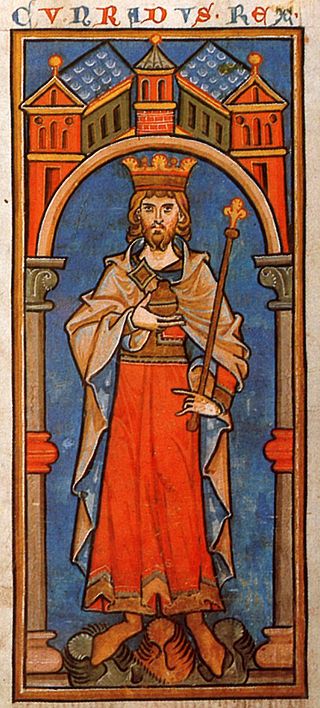
Conrad III of the Hohenstaufen dynasty was from 1116 to 1120 Duke of Franconia, from 1127 to 1135 anti-king of his predecessor Lothair III and from 1138 until his death in 1152 king in the Holy Roman Empire. He was the son of Duke Frederick I of Swabia and Agnes, a daughter of the Salian Emperor Henry IV.
Lucius II, pope of the Catholic Church deaths
Pope Lucius II, born Gherardo Caccianemici dal Orso, was head of the Catholic Church and ruler of the Papal States from 9 March 1144 to his death in 1145. His pontificate was notable for the unrest in Rome associated with the Commune of Rome and its attempts to wrest control of the city from the papacy. He supported Empress Matilda's claim to England in the Anarchy, and had a tense relationship with King Roger II of Sicily.
Gisela of Swabia, Holy Roman Empress (b. 990) deaths

Gisela of Swabia, was queen of Germany from 1024 to 1039 and empress of the Holy Roman Empire from 1027 to 1039 by her third marriage with Emperor Conrad II. She was the mother of Emperor Henry III. She was regent of Swabia for her minor son Duke Ernest II of Swabia in 1015, although it seems at that time her husband Conrad was the one who held the reins of government, leading to the enmity between stepfather and stepson.
Su Yugui, Chinese chancellor (b. 895) deaths
Su Yugui (蘇禹珪), courtesy name Yuanxi (元錫), formally the Duke of Ju (莒國公), was an official during the Chinese Five Dynasties and Ten Kingdoms Period states Later Jin, Later Han, and Later Zhou, serving as a chancellor during Later Han and Later Zhou.
Ibn Tabataba, Zaydi anti-caliph deaths
Abū ʿAbdallāh Muḥammad ibn Ibrāhīm ibn Ismāʿīl al-Dībāj ibn Ibrāhīm al-Ghamr ibn al-Ḥasan al-Muthannā, better known as Ibn Ṭabāṭabā, was a Hasanid who was the figurehead of an unsuccessful Zaydi uprising against the Abbasid Caliphate in 814–815, during the Fourth Fitna.
Leontios, Byzantine emperor deaths

Leontius, was Byzantine emperor from 695 to 698. Little is known of his early life, other than that he was born in Isauria in Asia Minor. He was given the title of patrikios, and made strategos of the Anatolic Theme under Emperor Constantine IV. He led forces against the Umayyads during the early years of Justinian II's reign, securing victory and forcing the Umayyad caliph, Abd al-Malik ibn Marwan, to sue for peace.
Tiberios III, Byzantine emperor deaths

Tiberius III, born Apsimar, was Byzantine emperor from 698 to 705 AD. Little is known about his early life, other than that he was droungarios, a mid-level commander, of the Cibyrrhaeots, and that his birth name was Apsimar. In 696, Tiberius was part of an army led by John the Patrician sent by Byzantine Emperor Leontius to retake the city of Carthage in the Exarchate of Africa, which had been captured by the Arab Umayyads. After seizing the city, this army was pushed back by Umayyad reinforcements and retreated to the island of Crete; some of the officers, fearing the wrath of Leontius, killed John and declared Tiberius emperor. Tiberius swiftly gathered a fleet, sailed for Constantinople, and deposed Leontius. Tiberius did not attempt to retake Byzantine Africa from the Umayyads, but campaigned against them along the eastern border with some success. In 705 former Emperor Justinian II, who had been deposed by Leontius, led an army of Slavs and Bulgars to Constantinople, and after entering the city secretly, deposed Tiberius. Tiberius fled to Bithynia, but was captured several months later and beheaded between August 705 and February 706. His body was initially thrown into the sea, but was later recovered and buried in a church on the island of Prote.
Oswiu, king of Northumbria (b. c. 612) deaths
Oswiu, also known as Oswy or Oswig, was King of Bernicia from 642 and of Northumbria from 654 until his death. He is notable for his role at the Synod of Whitby in 664, which ultimately brought the church in Northumbria into conformity with the wider Catholic Church.
Christian feast day: Blessed Michał Sopoćko

Beatification is a recognition accorded by the Catholic Church of a deceased person's entrance into Heaven and capacity to intercede on behalf of individuals who pray in their name. Beati is the plural form, referring to those who have undergone the process of beatification; they possess the title of "Blessed" before their names and are often referred to in English as "a Blessed" or, plurally, "Blesseds".

Michael Sopoćko was a Polish Roman Catholic priest and professor at Vilnius University. He is best known as the spiritual director of Faustina Kowalska. He was beatified by Pope Benedict XVI in 2008.
Christian feast day: Claude de la Colombière

Claude La Colombière, SJ was a Jesuit priest and the confessor of Margaret Mary Alacoque. He is venerated as a saint in the Catholic Church.
Christian feast day: Faustinus and Jovita

Saints Jovita and Faustinus were said to be Christian martyrs under Hadrian. Their traditional date of death is 120. They are patron saints of Brescia.
Christian feast day: Oswiu
Oswiu, also known as Oswy or Oswig, was King of Bernicia from 642 and of Northumbria from 654 until his death. He is notable for his role at the Synod of Whitby in 664, which ultimately brought the church in Northumbria into conformity with the wider Catholic Church.
Christian feast day: Quinidius
Quinidius was a French hermit, deacon, and bishop, who acquired the reputation of being a saint. He was born at Vaison-la-Romaine to a noble Christian family. As a young man, he became a hermit near Toulon and then at Lérins Abbey to devote himself to a life of prayer and asceticism.
Christian feast day: Sigfrid of Sweden

Saint Sigfrid of Sweden (Swedish: Sigfrid, Latin: Sigafridus, Old Norse: Sigurðr, Old English: Sigefrið/Sigeferð) was a missionary-bishop in Scandinavia during the first half of the 11th century. Originally from England, Saint Sigfrid is credited in late medieval king-lists and hagiography with performing the baptism of the first monarch of Sweden, Olof Skötkonung. He most likely arrived in Sweden soon after the year 1000 and conducted extensive missions in Götaland and Svealand. For some years after 1014, following his return to England, Sigfrid was based in Trondheim, Norway. However, his position there became untenable after the defeat of Olaf Haraldsson.
Christian feast day: Thomas Bray (Episcopal Church)

Thomas Bray was an English clergyman and abolitionist who helped formally establish the Church of England in Maryland, as well as the Society for the Propagation of Christian Knowledge and Society for the Propagation of the Gospel in Foreign Parts.
The veneration of saints in the Episcopal Church is a continuation of an ancient tradition from the early Church which honors important and influential people of the Christian faith. The usage of the term saint is similar to Roman Catholic and Orthodox traditions. Episcopalians believe in the communion of saints in prayer and as such the Episcopal liturgical calendar accommodates feasts for saints.
Christian feast day: Walfrid
Walfrid, or Galfrido della Gherardesca, was an eighth-century saint from Pisa, Italy.
Christian feast day: February 15 (Eastern Orthodox liturgics)

February 14 - Eastern Orthodox liturgical calendar - February 16
Earliest day on which Family Day can fall, while February 21 is the latest; celebrated on the third Monday in February. (parts of Canada)
In most provinces of Canada, the third Monday in February is observed as a regional statutory holiday, typically known in general as Family Day —though some provinces use their own names, as they celebrate the day for different reasons. The third Monday of February is observed as "Family Day" in the provinces of Alberta, British Columbia (BC), New Brunswick, Ontario, and Saskatchewan; as Louis Riel Day in Manitoba; as Nova Scotia Heritage Day in Nova Scotia; and as Islander Day in Prince Edward Island.
Earliest day on which Washington's Birthday can fall, while February 21 is the latest; celebrated on the third Monday in February. (United States)

Presidents' Day, also called Washington's Birthday at the federal governmental level, is a holiday in the United States celebrated on the third Monday of February to honor all persons who served as presidents of the United States and, since 1879, has been the federal holiday honoring George Washington, who led the Continental Army to victory in the American Revolutionary War, presided at the Constitutional Convention of 1787, and was the first U.S. president.
International Duties Memorial Day (Russia, regional)

The following is the list of official public holidays recognized by the Government of Russia. On these days, government offices, embassies and some shops, are closed. If the date of observance falls on a weekend, the following Monday will be a day off in lieu of the holiday.
John Frum Day (Vanuatu)

John Frum is a mythic figure associated with cargo cults on the island of Tanna in Vanuatu. He is often depicted as an American World War II serviceman who will bring wealth and prosperity to the people if they follow him. Quoting David Attenborough's report of an encounter: "'E look like you. 'E got white face. 'E tall man. 'E live 'long South America."
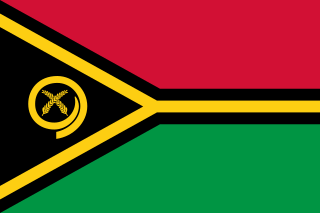
Vanuatu, officially the Republic of Vanuatu, is an island country located in the South Pacific Ocean. The archipelago, which is of volcanic origin, is 1,750 km (1,090 mi) east of northern Australia, 540 km (340 mi) northeast of New Caledonia, east of New Guinea, southeast of the Solomon Islands, and west of Fiji.
Liberation Day (Afghanistan)
Afghan Liberation Day is celebrated each year on February 15 in Afghanistan. It marks the country's liberation from the Soviet Union with the final departure on February 15, 1989 of Soviet troops from Afghanistan. The Soviet Army had been present in Afghanistan since the Soviet invasion of December 24, 1979.
National Flag of Canada Day (Canada)

National Flag of Canada Day, commonly shortened to Flag Day, is observed annually on February 15 to commemorate the inauguration of the flag of Canada on that date in 1965. The day is marked by flying the flag, occasional public ceremonies and educational programs in schools. It is not a public holiday, although there has been discussion about creating one.
Parinirvana Day, also celebrated on February 8. (Mahayana Buddhism)
Parinirvana Day, or Nirvana Day is a Mahayana Buddhist holiday celebrated in East Asia, Vietnam and the Philippines. By some it is celebrated on 8 February, but by most on the 15 February. In Bhutan, it is celebrated on the fifteenth day of the fourth month of the Bhutanese calendar. It celebrates the day when the Buddha is said to have achieved Parinirvana, or complete Nirvana, upon the death of his physical body.
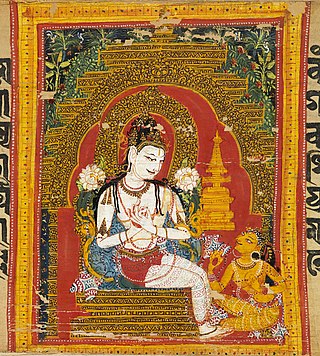
Mahāyāna is a term for a broad group of Buddhist traditions, texts, philosophies, and practices. Mahāyāna Buddhism developed in India and is considered one of the two main existing branches of Buddhism. Mahāyāna accepts the main scriptures and teachings of early Buddhism, but also recognizes various doctrines and texts which are not accepted by Theravada Buddhism as original. These include the Mahāyāna Sūtras and its emphasis on the bodhisattva path and Prajñāpāramitā. Vajrayāna or Mantra traditions are a subset of Mahāyāna, which make use of numerous tantric methods considered to be faster and more powerful at achieving Buddhahood by Vajrayānists.
Singles Awareness Day
Singles Awareness Day is celebrated on February 15 each year. It is an unofficial holiday celebrated by single people. It serves as a complement to Valentine's Day for people who are single, and not married or in a romantic relationship. It is a celebration of love in all forms recognizing the love between friends, family and loving yourself. Some people who observe Singles Awareness Day do so out of spite for Valentine's Day, as a Hallmark holiday, or for other reasons.
Statehood Day (Serbia)

Statehood Day or National Day is a holiday celebrated every 15 February in Serbia to commemorate the outbreak of the First Serbian Uprising in 1804, which evolved into the Serbian Revolution against Ottoman rule. The revolution ultimately resulted in the recognition of Serbia's National by the Ottoman Empire.
Susan B. Anthony Day (Florida, United States)

Susan B. Anthony Day is a commemorative holiday to celebrate the birth of Susan B. Anthony and women's suffrage in the United States. The holiday is February 15—Anthony's birthday.
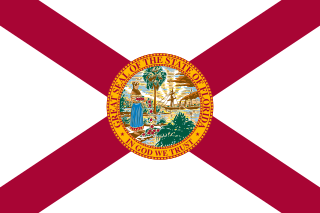
Florida is a state located in the Southeastern region of the United States. Florida is bordered to the west by the Gulf of Mexico, to the northwest by Alabama, to the north by Georgia, to the east by the Bahamas and Atlantic Ocean, and to the south by the Straits of Florida and Cuba; it is the only state that borders both the Gulf of Mexico and the Atlantic Ocean. Spanning 65,758 square miles (170,310 km2), Florida ranks 22nd in area among the 50 states, and with a population of over 21 million, is the third-most populous. The state capital is Tallahassee and the most populous city is Jacksonville. The Miami metropolitan area, with a population of almost 6.2 million, is the most populous urban area in Florida and the ninth-most populous in the United States; other urban conurbations with over one million people are Tampa Bay, Orlando, and Jacksonville.
The ENIAC Day (Philadelphia, United States)

ENIAC Day or the World’s First Computer Day is celebrated on February 15.

Philadelphia, often called Philly, is the largest city in the Commonwealth of Pennsylvania, the sixth-largest city in the U.S., the second-largest city in both the Northeast megalopolis and Mid-Atlantic regions after New York City. Since 1854, the city has been coextensive with Philadelphia County, the most populous county in Pennsylvania and the urban core of the Delaware Valley, the nation's seventh-largest and one of world's largest metropolitan regions, with 6.245 million residents as of 2020. The city's population as of the 2020 census was 1,603,797, and over 56 million people live within 250 mi (400 km) of Philadelphia.
Total Defence Day (Singapore)

Total Defence is Singapore's whole-of-society national defence concept, based on the premise that every aspect of society contributes to the collective defence of the state. The strategy was first introduced in 1984 and adopted from the national defence strategies of Sweden and Switzerland. It initially consisted of five key tenets; military, civil, economic, social, and psychological, with the sixth, digital, being introduced in 2019. The strategy was amplified by the government slogan: There's A Part For Everyone, with a corresponding national song named after it when first introduced.

Singapore, officially the Republic of Singapore, is a sovereign island country and city-state in maritime Southeast Asia. It lies about one degree of latitude north of the equator, off the southern tip of the Malay Peninsula, bordering the Strait of Malacca to the west, the Singapore Strait to the south, the South China Sea to the east, and the Straits of Johor to the north. The country's territory is composed of one main island, 63 satellite islands and islets, and one outlying islet; the combined area of these has increased by 25% since the country's independence as a result of extensive land reclamation projects. It has the third highest population density in the world. With a multicultural population and recognising the need to respect cultural identities of the major ethnic groups within the nation, Singapore has four official languages: English, Malay, Mandarin, and Tamil. English is the lingua franca and numerous public services are available only in English. Multiracialism is enshrined in the constitution and continues to shape national policies in education, housing, and politics.